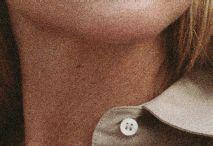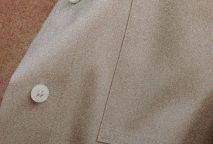K EENELAND

celebrating bluegrass traditions
















SHADAYID STUD 839±acres,bothsidesofLeestownRoad



◆ 6 identical 14 stall concrete block horse barns.
◆ 2—18-stall concrete block horse barns.
◆ Rehab barn with 8 stalls and offices.
◆ Showbarn,calvingbarn,3haybarns,turn-outbarn, shop and equipment building.
◆ Manager house, 4 employee houses, and office.
◆ South Elkhorn Creek on rear boundary.
◆ 35 miles of fencing and over five miles of paved roads.
ERHAAB STUD 525± acres on Georgetown Road
◆ 9 concrete block horse barns with 105 stalls
◆ 6 run-in sheds—each measuring 20’ x 100’
◆ Shop/paint building and equipment shed
◆ A c.1870s 5,900 SF home (currently used as an office)
◆ 4 employee houses
◆ 41 paddocks
◆ Bordered by the South Elkhorn Creek
◆ 22± miles of fencing and nearly 4 miles of paved roads





WINCHESTER FARM—Location! Location! Turn key 268 acre horse farm on highly desirable Mt. Horeb Pike and adjoining Castleton Lyons. Improvements include 6 horse barns with 78 stalls & 3 employee houses. Overlooking the Elkhorn Creek, in a park like setting you'll discover the wonderful 4 bedroom 3.5 bath home whose lower level serves as the farm office- suitable for gracious living area.
STONEY POINT FARM—Across the road from worldrenown Stone Farm and adjoining Machmer Hall and in a quadrant known for producing superior race horses sits this 204 acre turn-key horse farm with recently renovated 2 story 4000 sq ft home, renovated guest house, and employee homes. 9 stall Amish built barn with 50’ x 64’ indoor arena; 14 stall barn with loft. 5 stall hay barn, 2 equipment sheds, 16 run in sheds, and 11 bent tobacco barn.




MILLENNIUM FARMS—The former Buckland Farm consists of 317± acres, 8 horse barns, & 128 stalls. The 6,150 SF main residence includes 7 bd, 6 full & 2.5 baths. The farm is further complemented with 5 employee houses, yearling complex with a 31 stall Charlie Parker built barn, adjoining covered 70’ round pen, & 6 horse walker. A 3030 SF office was built & designed to convert to a guest house. Maintenance area with shop and 2 open equipment sheds. Mature tree lined driveways!



BUCKSTONE FARM—LocatedonthecornerofJackstown and Blacks Cross Roads, this highly desirable 96 acre farm is in the immediate area of Adena Springs, Sparks View and Brandywine Farms. Gated entrances on each road lead you to its three horse barns with 34 stalls. The farm has primarily V-mesh fencing and offers city and well water. You will discover several wonderful building sites on this truly picturesque farm.

Priced BELOW current market value!
FORT BLACKBURN—Purchased by Will Farish as 264 acres of raw land in 1999, Mr. Farish has developed this land into an exceptional horse farm. Adjoining a division of Stone-street Farm, Fort Blackburn boasts anunparalleledlocationonOldFrankfortPike.Horse improvements include 12+ miles of plank fencing, 3 world-class 20-stall horse barns, a covered walker, equipment/shop building. Renovated historic 2,650 SF home.


The Adelphi Hotel team is excited to announce the addition of 13 new guest rooms & suites, perfectly situated within the historic Rip Van Dam. The iconic victorian style of The Adelphi Hotel takes center stage from the moment you open the door to your breathtaking home away from home. Our new guest rooms & suites will be available for booking beginning July 1, 2023.

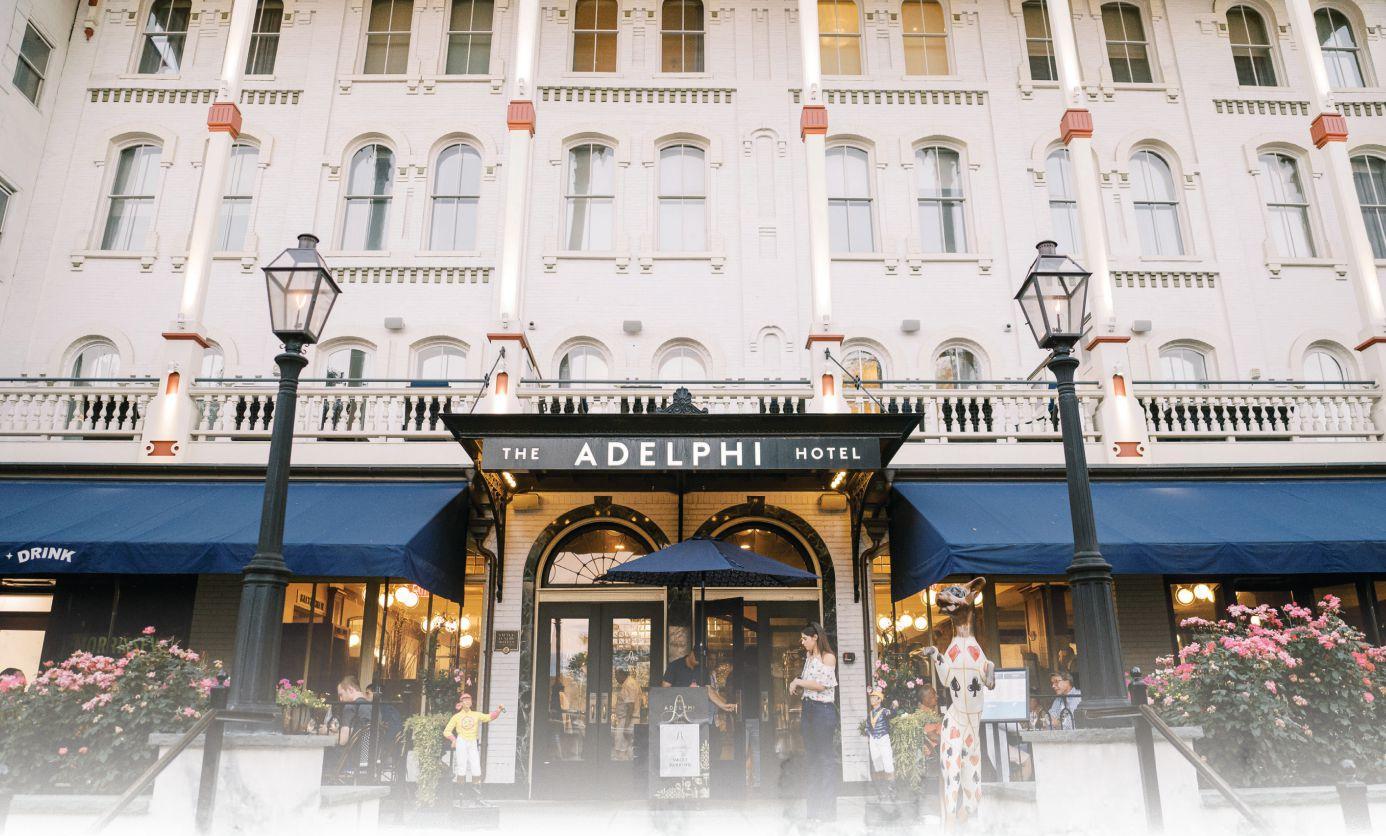

CALL (518) 678-6000 TO BOOK YOUR NEXT STAY OR MAKE A RESERVATION!

Beautiful, exceptionally spacious residences complemented by round-the-clock concierge, housekeeping, a spacious ftness center, in-room and on-site dining, and more!




Indulge yourself with a home at The Adelphi Residences, where understated elegance is understood, and living well never goes out of style.

All photographs portrayed in this advertisement are artist renderings. This advertisement is not an offering. It is a solicitation of interest in the advertised property. No offering of the advertised units can be made, and no deposits can be accepted, or reservations, binding or non-binding, can be made until an offering plan is fled with the New York State Department of Law. This advertisement is made pursuant to Cooperative Policy Statement No. 1, issued by the New York State Department of Law. File No. CP22-0055. Sponsor: RVD Holding LLC, 353
NY
 by Lenny Shulman
by Lenny Shulman
RonWinchell andWinchellThoroughbreds enjoyed an outstanding 2022 campaigning 3-year-old champion Epicenter and offspring of stallion sensationsTapit and Gun Runner to rank among leading owners.
Horse of theYear and undefeated phenom Flightline settles into his new life as a stallion at Lane’s End Farm.
This three-part series examines how James Ben Ali Haggin created a farm whose acreage produced generations of important horses through a succession of owners.

The Ashland Stakes, a centerpiece of the Keeneland spring race meet, boasts a long history as a showcase of star fillies that become exceptional producers.

 by Maryjean Wall
by Maryjean Wall
Kentucky native Garrett A. Morgan made lasting contributions to public safety as an inventor and entrepreneur.
The boutique Stuarto’s Olive Oil Company enhances its brand with its popular cooking class series.
Prep, Mitchell Murrill up Oil on panel, 30 x 24 by Joe Bonomo
Joe Bonomo is an artistic spirit. Making his way to the Bluegrass from the Rocky Mountains, Bonomo has found his artistic inspiration in horse racing. Bonomo now claims Lexington and Keeneland as his home.
Racing’s color and the movement create an energy that Bonomo translates into his paintings. At the easel, Bonomo looks to interpret what he sees and not simply make a visual copy of what’s going on. His vision and interpretation offer a new perspective of the sport of horse racing.


for over fifty years








The McLean family has owned and operated their full service, 1,000 acre Crestwood Farm since 1970.
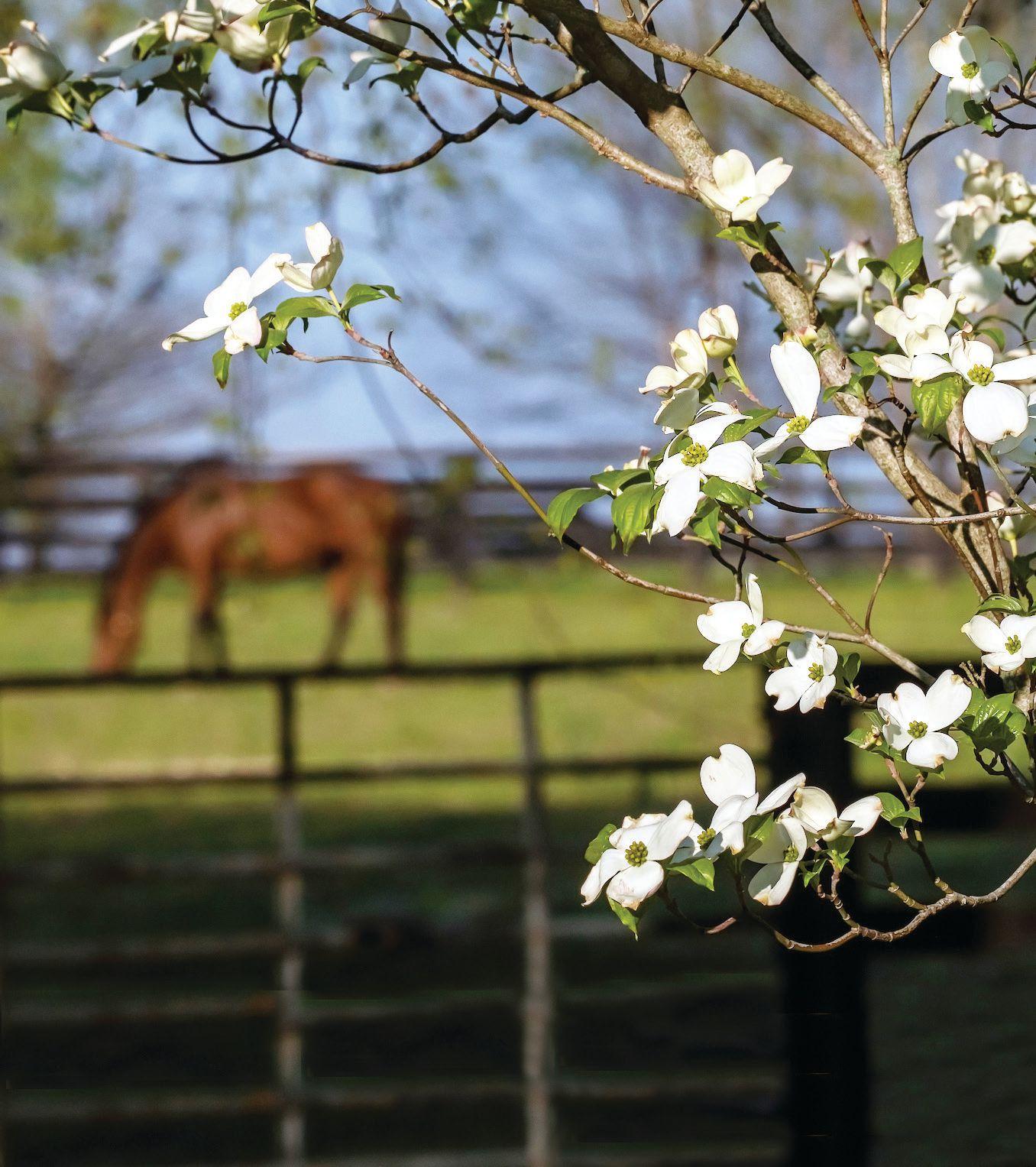
Since then, Crestwood has bred and/or raised multiple Hall-of-Fame inductees, multiple Champions and over 285 stakes horses.


 by Rena Baer
by Rena Baer
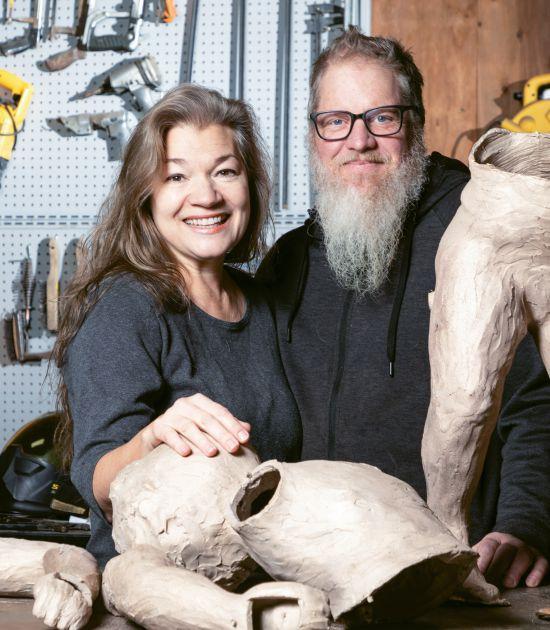


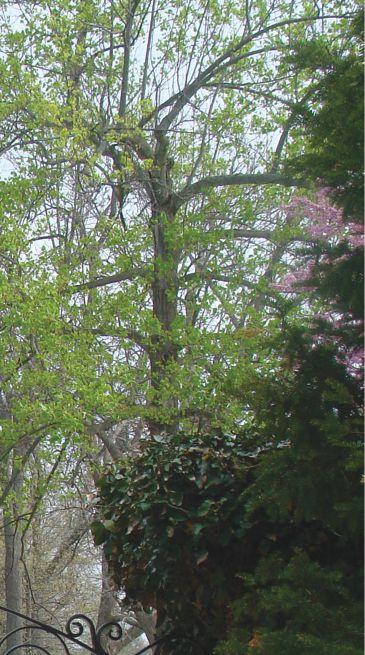


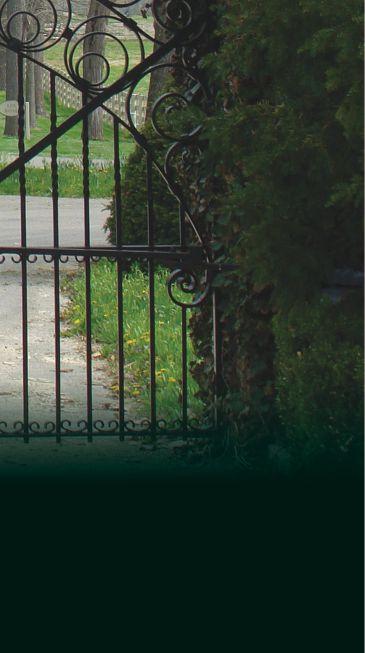









celebrating bluegrass traditions
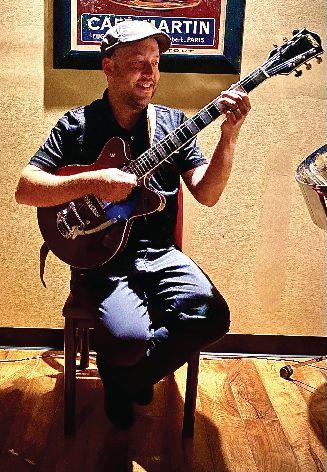
The offcial magazine of Keeneland Association, Inc. published by Blood-Horse LLC
821 Corporate Dr., Lexington, KY 40503 (859) 278-2361/FAX (859) 276-4450
KeenelandMagazine.com
BloodHorse.com
Editor: Jacqueline Duke
Artists: Catherine Nichols (Art Director), PhilipTruman
Copy Editor: Rena Baer
10 minutes From Keeneland
29 years Lexington’s Fine Italian
Reservations on Open Table or (859) 272-4269
Dinner nightly at 4 pm 4456 Nicholasville Rd Lexington
Visuals Director: Anne M. Eberhardt
Creative Services: Jennifer Singleton (Director), Forrest Begley
Account Executive: Amanda Ramey Masters

Sales Support: Catherine Johnston
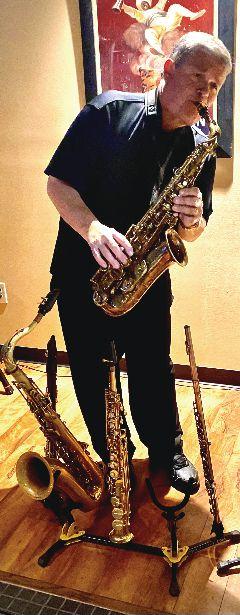
CORPORATE OPERATIONS
Circulation Accounting Manager: Lauren Glover
General Manager: Scott Carling
PUBLISHED BY Blood-Horse LLC


BOARD OF DIRECTORS
James L. Gagliano, Carl Hamilton, Ian D. Highet, Stuart S. Janney III, Brant Laue, Dan Metzger, Rosendo Parra
KEENELAND ASSOCIATION, INC.
KEENELAND INC.
4201Versailles Road
P.O. Box 1690
U.S.A. 40588-1690
Lexington, Kentucky, U.S.A. 40588-1690
Tel: 254-3412 456-3412
Tel: (859) 254-3412
(800) 456-3412
Keeneland.com
© 2023 Keeneland Inc.
© 2023 Keeneland Association, Inc.
To order Keeneland magazine and additional copies, call 1-800-582-5604
TO SUBSCRIBE OR TO SEND A GIFT SUBSCRIPTION to Keeneland magazine, visit BloodHorse.com/KeenelandOffer

FRIDAY, APRIL 7
$600,000 Central Bank Ashland (G1)
3-year-old fllies, 1 1/16 miles | $100,000 KTDF Contribution*
$400,000 Kentucky Utilities Transylvania (G3)
3-year-olds, 1 1/16 miles (turf) | $100,000 KTDF Contribution*
$400,000 Lafayette
3-year-olds, 7 furlongs | $100,000 KTDF Contribution*
SATURDAY, APRIL 8
$1 Million Toyota Blue Grass (G1)
3-year-olds, 1 1/8 miles | $150,000 KTDF Contribution*
$600,000 Madison (G1)
4-year-olds and up, fllies & mares, 7 furlongs | $100,000 KTDF Contribution*
$400,000 Appalachian (G2)
Presented by Japan Racing Association
3-year-old fllies, 1 mile (turf) | $100,000 KTDF Contribution*
$350,000 Shakertown (G2)
3-year-olds and up, 5 ½ furlongs (turf) | $50,000 KTDF Contribution*

$300,000 Commonwealth (G3)
4-year-olds and up, 7 furlongs | $50,000 KTDF Contribution*
FRIDAY, APRIL 14
$600,000 Maker’s Mark Mile (G1)
4-year-olds and up, 1 mile (turf) | $100,000 KTDF Contribution*
$250,000 FanDuel Limestone (L)
3-year-old fllies, 5 ½ furlongs (turf) | $50,000 KTDF Contribution*
SATURDAY, APRIL 15
$600,000 Jenny Wiley (G1)
4-year-olds and up, fllies & mares, 1 1/16 miles (turf) | $100,000 KTDF Contribution*
$400,000 Stonestreet Lexington (G3)
3-year-olds, 1 1/16 miles | $100,000 KTDF Contribution*
$250,000 Giant’s Causeway (L)
3-year-olds and up, fllies & mares, 5 ½ furlongs (turf) | $50,000 KTDF Contribution*
SUNDAY, APRIL 16
$400,000 Beaumont S. (G2) Presented by Keeneland Select
3-year-old fllies, 7 furlongs & 184 feet | $100,000 KTDF Contribution*

$250,000 Palisades (L)
3-year-olds, 5 ½ furlongs (turf) | $50,000 KTDF Contribution*
FRIDAY, APRIL 21
$300,000 Baird Doubledogdare (G3)
4-year-olds and up, fllies & mares, 1 1/16 miles | $50,000 KTDF Contribution*
SATURDAY, APRIL 22
$350,000 Elkhorn (G2)
4-year-olds and up, 1 ½ miles (turf) | $50,000 KTDF Contribution*
$300,000 Ben Ali (G3)
4-year-olds and up, 1 3/16th miles | $50,000 KTDF Contribution*
FRIDAY, APRIL 29
$300,000 Bewitch (G3)
4-year-olds and up, fllies & mares, 1 ½ miles (turf) | $50,000 KTDF Contribution*
Yogi Berra said, “If you don’t know where you are going, you’ll end up someplace else.” At Keeneland, we have been deeply engaged in planning for the years to come and have been discussing how our grounds should evolve to meet the needs of our horsemen for racing, training, and sales; for our patrons and fans; and for our community. Since 1936, there has not been a haphazard decision about the placement of a brick, the color of a shutter, or the planting of a tree. Tat level of attention to detail will not change.
Te 1930s could not have been an easy time to generate support to build a racetrack. Following World War I, amid the Great Depression, I would imagine there were a number of naysayers. Te founders must have known that as well, and they made their case in the Keeneland prospectus, which outlined their vision of creating a model racetrack not just for one sector of the population or another but for the betterment of everyone in the equine and local communities. Te Keeneland prospectus pledged the creation of a model racetrack and the perpetuation of the best traditions of our sport: “A commitment to our founding, these words guide the actions of our employees and allow us to pass on our rich traditions to future generations. It’s a promise to our founders, our industry, our local community, and each other.”
To renew that promise to our founders, our industry, our local community, and each other today as we contemplate appropriate updates to our facilities and the addition of iconic properties such as Manchester Farm, we have stepped back for a gut check that we all still believe in the viability of a model racetrack; in perpetuating the best of our traditions; in creating a place where people come from near and far to celebrate the horse and in the sport of horse racing. Hal Price Headley said, “We want a place where those who love horses can come and picnic with us and thrill to the sport of the Bluegrass. We are
not running a race plant to hear the click of the mutuel machines. We want them to come out here to enjoy God’s sunshine, fresh air, and to watch horses race.”
Te world is a diferent place now than it was in 1936. Where is our place? Before we asked the question, we knew our answers. Yes, we believe. We believe in the sport of horse racing and in the many people who work to enhance all aspects of integrity related to our sport. We believe in the power of sports to bring people together. We believe in the strength of the people who make working with horses their life’s work. We believe in the rhythm of counting on the same weeks each April and October to come together with our friends — rain, snow, or shine — and intentionally celebrate life. We believe in the importance of perpetuating the best of the traditions of the Turf. We believe in the horse and will pass on the best of Keeneland’s traditions to future generations.
SHANNON ARVIN President and CEO
I have long admired Keeneland’s neighbor, Manchester Farm. Mike Rutherford did a masterful job building one of the most photographed and beautiful barns in the Commonwealth. Brad Kelley purchased the property from Mr. Rutherford, and I continued to covet the land and dream about what such a property could add to Keeneland and our mission. As we have been working through planning for Keeneland’s future, it became clear that Manchester Farm has to be part of it. We don’t yet know the details of how Manchester Farm will enhance your experiences at Keeneland, but rest assured we are working on it with the same careful attention to mission and detail you expect from Keeneland. We don’t think you will be disappointed. And we know, as Warren Bufet said, “Someone’s sitting in the shade today because someone planted a tree a long time ago.” I’m thankful for the many trees planted by our founders and those who came before me, and we’ll keep planting those trees.
Cheers to blue skies ahead. KM


TTTTTTTTTTTTTTTTTTTTTTTTTTTTTTTTTTTTT


TTTTTTTTTTTTTTTTTTTTTTTTTTTTTTTTT45TTTTTTT—T TTTTTTTTTTTTTTTTTTTTTTTTTTTTTTTTTTTTTTTTTTTT


























TTTTTTTTTTTTTTTTTTTTTTTTTTTTTTTTT

SPRING 2023
RENA BAER
(Racing’s Pioneers) is a writer and an editor whose work frequently appears in Keeneland magazine and several other Lexingtonbased and national publications.

EDWARD L. BOWEN
(Land of Plenty) is the former president of the GraysonJockey Club Research Foundation. He is a former editor-in-chief of BloodHorse and has authored 22 books aboutThoroughbred racing and breeding. His latest book is “DoingThe Usual Unusually Well: A History of Claiborne Farm.”


JACALYN CARFAGNO
(All-Encompassing Perspective) is a professional writer and an editor based in Lexington. She has covered the equine industry and written restaurant reviews and commentary for the Lexington Herald Leader in addition to work for a wide range of clients.





LIANE CROSSLEY
(Champion Maker) has spent her career inThoroughbred racing-related jobs in barns, press boxes, and offces. A seasonal member of Keeneland’s media team, she has had her work appear in BloodHorse, Daily Racing Form,Thoroughbred Daily News, Breeders’ Cup website, Horse Illustrated, European Bloodstock News, andYoung Rider.


CYNTHIA GRISOLIA
(Smooth Landing) Originally from NewYork, Cynthia Grisolia is a freelance editor and journalist living inVersailles, Kentucky. Her articles have appeared in Keeneland, BloodHorse, Kentucky Monthly, Equestrian Quarterly, and others.
VICKIE MITCHELL
(Branching Out) writes for regional and national publications as well as for small businesses and nonproft organizations. She lives and works in Lexington.






AMY OWENS
(Keeneland News/ Connections) is Keeneland Communications Associate.


LENNY SHULMAN
(Reaping the Rewards) is a senior correspondent for BloodHorse magazine and the author of “Head to Head: Conversations with a Generation of Horse Racing Legends,” “Justify: 111 Days toTriple Crown Glory,” and “Ride ofTheir Lives:TheTrials andTurmoil ofToday’sTop Jockeys.”

(Ahead of HisTime) won multiple Eclipse Awards during her 35 years asTurf writer for the Lexington Herald Leader. In addition to “Madam Belle: Sex, Money, and Infuence in a Southern Brothel,” she is the author of “How Kentucky Became Southern: ATale of Outlaws, HorseThieves, Gamblers, and Breeders.” She holds a doctorate from the University of Kentucky.







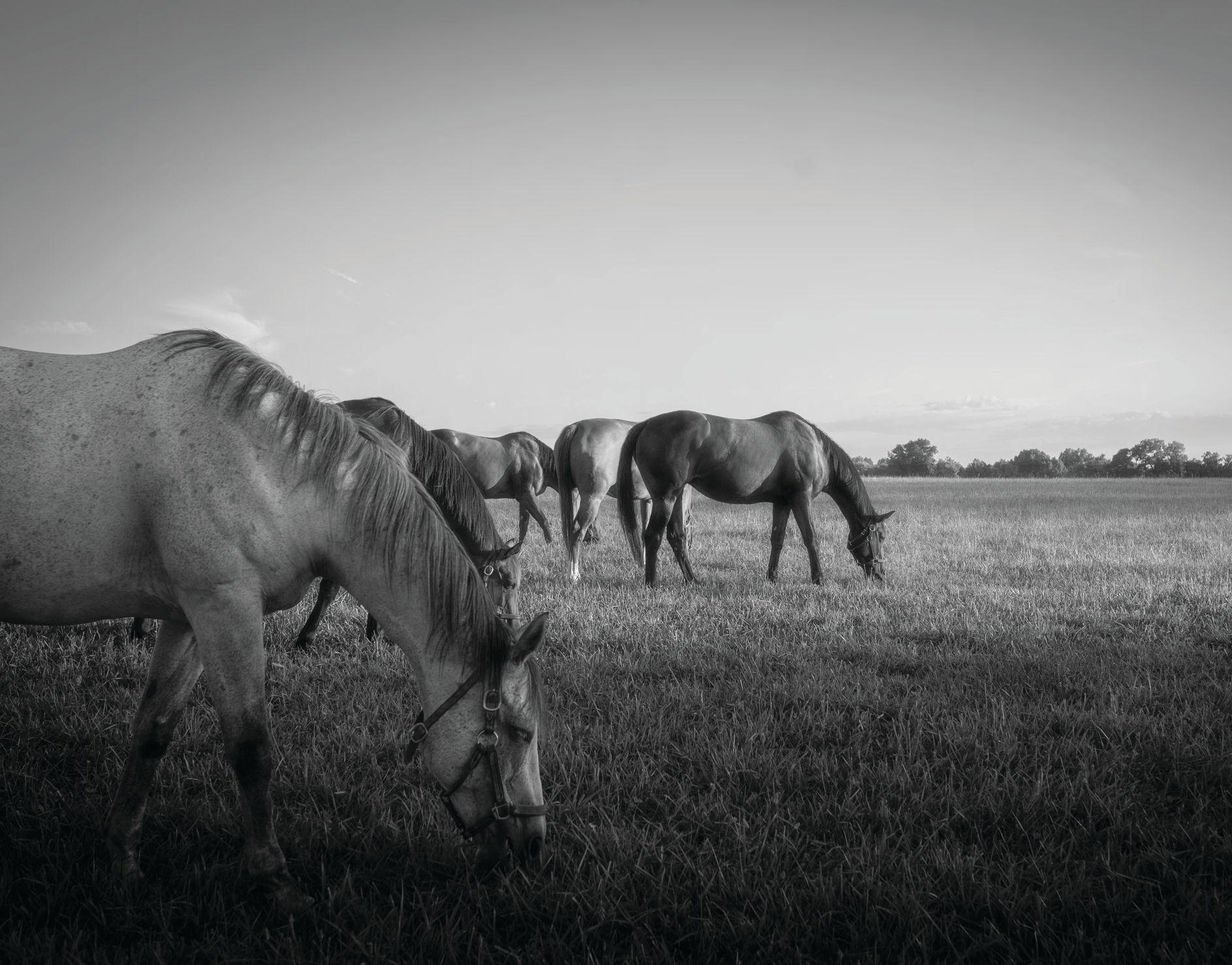

Keeneland will award a season record $8.05 million for 19 stakes to be run during its 2023 spring meet, which will cover 15 days from April 7-28. Leading the schedule are the 99th running of the $1 million Toyota Blue Grass (G1) and 86th running of the $600,000 Central Bank Ashland (G1), both major targets of the nation’s top 3-year-olds. Keeneland also has increased the purses of two grade 1
and the popularity of hosting our third Breeders’ Cup World Championships,” Keeneland Vice President of Racing Gatewood Bell said. “We are grateful for the interest in Keeneland racing from our horsemen, horseplayers, and fans, and their enthusiasm creates momentum for the future.

“We are excited to further strengthen this year’s spring meet stakes schedule so purses of all grade 1 races are at least $600,000, while all grade 2 races are a minimum of $350,000 and all grade 3 events are a minimum of $300,000.”
In addition to being important springtime races for talented sophomores, the Toyota Blue Grass and Central Bank Ashland both are worth 200 points on the Road to the Kentucky Derby and Road to the Kentucky Oaks, respectively. Winners of each stakes will earn 100 qualifying points to the respective classic.
Keeneland has purchased neighboring Manchester Farm, whose rolling hills and iconic barn with distinctive blue-and-white cupolas have provided a stunning backdrop for countless photographs and make it one of the most recognizable farms in Kentucky.

stakes for older females — the Madison (G1) and the Jenny Wiley (G1T) — by $100,000 apiece to $600,000 and has raised the purses of three listed turf stakes — the FanDuel Limestone, the Giant’s Causeway, and the Palisades — by $50,000 each to $250,000. Fifeen stakes are graded, with the Beaumont (G2) Presented by Keeneland Select featuring an upgrade for 2023.
Contributing to the spring meet stakes purses is a total of $1.5 million available from the Kentucky Toroughbred Development Fund (KTDF), pending approval from the Kentucky Horse Racing Commission.
“Keeneland enjoyed arguably its most successful racing year ever in 2022, thanks to a stellar lineup of equine stars and racing stables competing for record purses and the historic wagering that followed at the spring and fall meets
Te Central Bank Ashland, at 11⁄16 miles for fllies, anchors the card for the April 7 opening day for the second consecutive year and is the richest of three stakes for sophomores that day. Te other stakes, worth $400,000 each, are the Kentucky Utilities Transylvania (G3T), a 11⁄16-mile turf race, and the Lafayette, a 7-furlong dirt race.
Te following day, the Toyota Blue Grass, for 3-year-olds at 11⁄8 miles, leads fve stakes. Also on the card are the $600,000 Madison (G1), for fllies and mares at 7 furlongs; the $400,000 Appalachian (G2T) Presented by Japan Racing Association, for 3-year-old fllies at 1 mile on the grass; the $350,000 Shakertown (G2T), for 3-year-olds and up at 5½ furlongs on the turf; and the $300,000 Commonwealth (G3), for older horses at 7 furlongs.
Post time for the frst race each day is 1 p.m., except for April 8 (12:30 p.m.).
Keeneland will be closed for racing on Easter Sunday, April 9.
Originally named Manchester Springs Plantation afer a creek that runs through the property, the farm dates back to the 1700s. In 1804, Francis Keen (frst generation of the Keene family) passed 200 acres of Manchester Springs Plantation to his son. Te land remained in the Keen/Keene family for fve generations until 1935, when J.O. “Jack” Keene sold 147.6 acres to Keeneland Association for the creation of a model racetrack.
“Te history of Manchester Farm and Keeneland are intertwined,” Keeneland President and CEO Shannon Arvin said. “We were thrilled to have the opportunity to purchase the farm and plan to celebrate this Central Kentucky treasure for generations.”
Keeneland purchased the nearly 200-acre farm from Calumet Farm, owned by Brad Kelley. He purchased Manchester Farm in 2016 from noted breeder and owner Mike G. Rutherford, who bought the farm in 1976 from Duval Headley (nephew of Hal Price Headley, a Keeneland founder and the track’s frst president).
“Over the course of Keeneland’s history, we have acquired adjacent properties to preserve the track’s picturesque setting and to further our mission to perpetuate the best of Toroughbred racing and sales,” Arvin said. “While we do not have immediate plans for the future of the property, Lexington and the Toroughbred community can trust that Keeneland will use the land to strengthen our industry, enhance the Central Kentucky region, and always do what is best for the horse.”
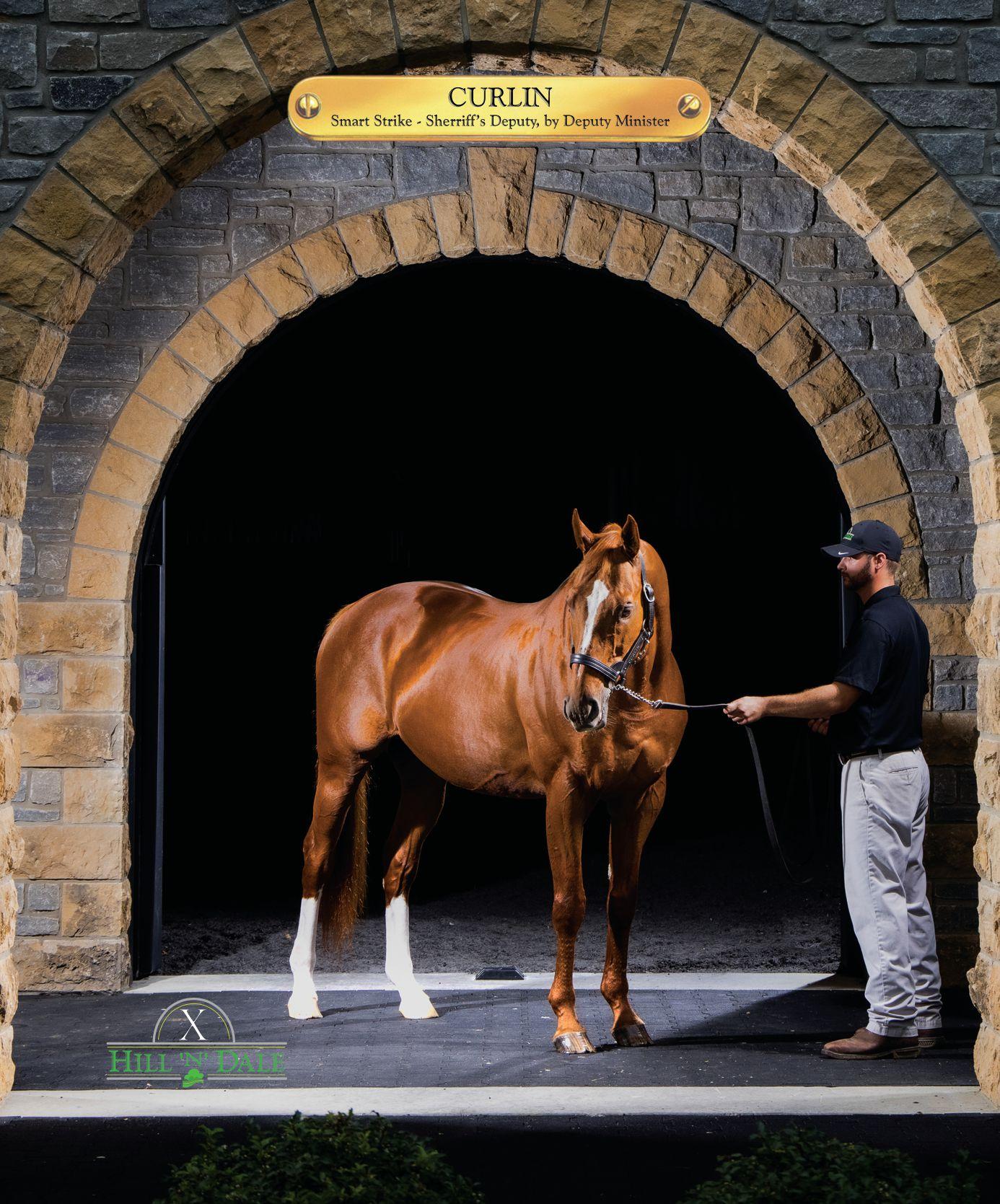

Keeneland’s Toroughbred auctions in November 2022 and January 2023 completed the sales season with a number of positive results. At the 10-session November breeding stock sale, which began the Monday afer Keeneland hosted the Breeders’ Cup World Championships for the third time, bullish results refected positive market trends:
• Robust commerce among the world’s deepest buying bench;
• Exceptional oferings that yielded 13 lots sold for seven fgures, led by champion Midnight Bisou for $5.5 million and a fractional interest in Breeders’ Cup Classic (G1) winner and eventual Horse of the Year Flightline for $4.6 million; and
• Continued demand for quality foals that produced North America’s highest-priced weanling for the ninth time in the past 10 years.
At the auction, Keeneland sold 2,329 horses for $216.4 million, for an average of $92,928 and a median of $35,000.
Keeneland in 2022 created a stand-alone auction for horses of racing age that in

Keeneland Mercantile, the unique retail destination in downtown Lexington, and Keeneland magazine have announced the second Masters of Craf Awards, an annual competition to highlight regional artisans and makers across multiple disciplines while celebrating crafsmen and businesses that manufacture and produce products in the U.S. Te overall grand prize winner will receive $5,000, a physical award, and featured product placement in Keeneland Mercantile and KeenelandMercantile.com.
Te competition ofers four categories (food & drink, home goods, wears, handmade), which will have three fnalists apiece. Tose 12 fnalists will be eligible
previous years had been included in the November breeding stock sale. At the horses of racing sale on Nov. 17, the day afer the breeding stock sale, Mick Wallace, agent for Ghandarvi, paid $1 million for a 2-year-old colt by Into Mischief who is from the family of multiple Grade 2 winner and successful sire Munnings. Te colt was named Extortion.
A total of 172 horses sold for $11.8 million,

for an average of $68,648 and a median of $36,000.
Solid trade and an emphasis on quality oferings marked the four-day January horses of all ages sale, which was led by the sale of recent Santa Anita Park winner Ancient Peace for $650,000 to Travis Boersma’s Boardshorts Stables. A total of 1,000 horses sold for nearly $47.3 million, for an average of $47,279 and a median of $19,000.
who owns Gathered Mercantile and Amsden Cofee Club in Versailles, Kentucky.
• Lawrence Weeks, chef at North of Bourbon in Louisville, Kentucky, who started LocalsOnly, a pop-up focused on local people, products, and food.
for the Patrons’ Pick Award, which is decided by an online public vote. Te entry deadline was Feb. 5. Te winner is to be announced March 20 and will receive $1,000 and a physical award.
Judging the competition are:
• Beth Lewis, owner of Olde Tyme Marketplace in Madison, Indiana.
• Darren K. Moore, licensed jeweler of the Kentucky Derby and Breeders’ Cup.
• Emily Riddle, designer and blogger
• Heather Wibbels, the “Cocktail Contessa,” an author, columnist, award-winning mixologist, and managing director of Bourbon Women.
Winners and fnalists will be announced in the summer issue of Keeneland magazine.
In 2022, the overall winner of the frst Masters of Craf Awards competition was “Te 42 Twin” Tree Swing produced by Southern Pine Swing Company of Jacksonville, Florida.

Keeneland sold seven horses who received 2022 Eclipse Awards as North American champions: Elite Power, Epicenter, Forte, Malathaat, Nest, Regal Glory, and Wonder Wheel. Forte (right), who won the Claiborne Breeders’ Futurity and Breeders’ Cup Juvenile at Keeneland, is the early favorite for this year’s Kentucky Derby.


The 2022 Sporting Art Auction, which Keeneland holds in November with Cross Gate Gallery of Lexington, was the most successful in its 10-year history with more than 90% of lots sold. The event in Keeneland’s sales pavilion attracted 300 buyers from nearly a dozen countries and grossed over $2.5 million. Top sellers were Henry Faulkner’s “Floral” at $123,375 (right) and Sir Alfred Munnings’ “Hop Pickers at Hampshire” at $120,000.
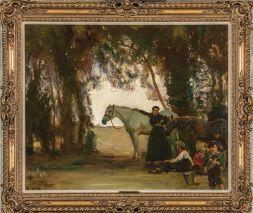
Popular Keeneland bid spotter Pete McCormick died Jan. 26 in North Carolina at age 75. McCormick, who spent 40 years at Keeneland, was a boy when he received his frst job in the auction business from Tom Caldwell, the legendary head auctioneer at Keeneland.
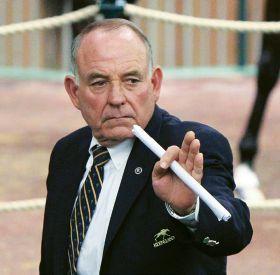
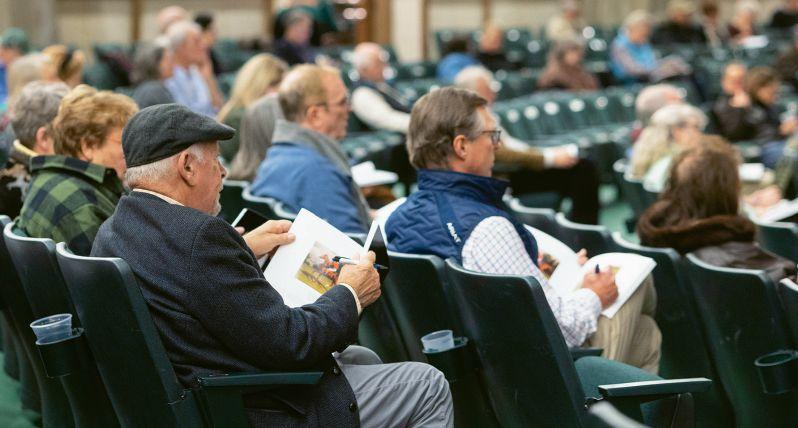
A successful Thoroughbred breeder who participated in Keeneland racing and sales, Virginia Kraft Payson died Jan. 9 in Lexington at age 92. Payson campaigned two homebred Keeneland stakes winners: Lac Ouimet, who won the 1990 Fayette (G2), and Rutherienne, who took the 2008 Jenny Wiley (now a Grade 1 race). She sold champion Farda Amiga at Keeneland’s 2000 September yearling sale.
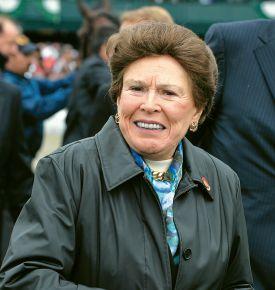
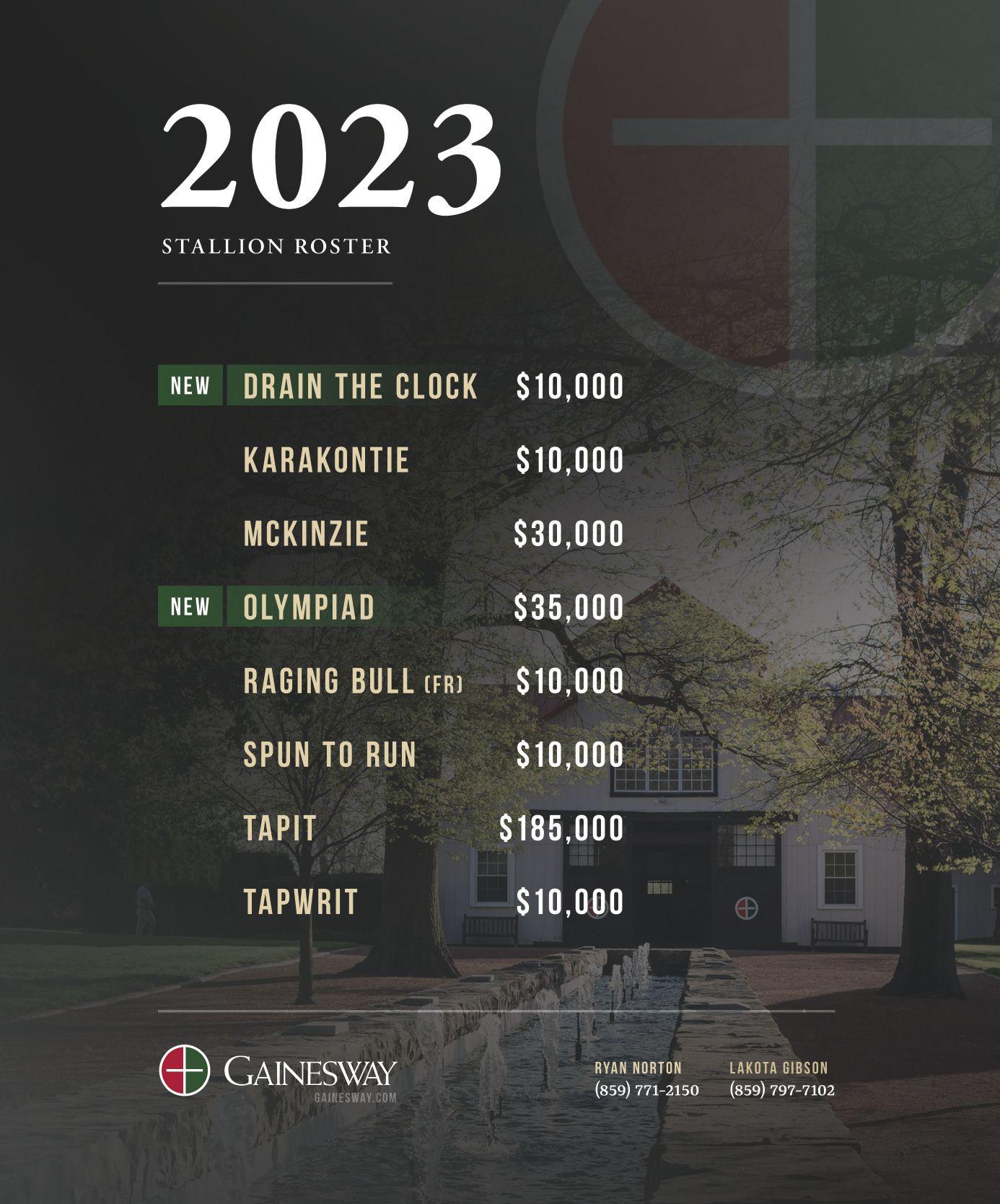











 136+/- 80+/- Acres, NW Ocala, 8 Miles to WEC, 4 BR, 3 BA Estate, 4 stables, 104 stalls, 3/4+/- mile track, residence, and guest/employee housing $4,495,000
38+/- Acres in NW Ocala - 4/3.5 Owners residence, 4/2 guest home 12-Stable with 1/1 apartment, 3 bay equipment building, RV hook-up
Via Paradisus 155 +/Trails plus close to the Florida Horse Park - Deed Restricted- Gated $38,500 per acre
Equine Enthusiasts! 30+/- Acre property located close to WEC & HITS Residence, 2-Guest homes, 5-Stall Stable, 10 Paddocks, Equipment room $3,750,000
Equestrian Oaks -19+/- Acres with 4/3 home featuring open living room, Chef’s kitchen, delightful outdoor area, fenced backyard, and privacy. $1,445,000
Acre estate with State-of-the-Art-Equine Facilities in NW Marion County. 30 Stalls, 5/8+/- track, Home, Guest home, Inn with 8 ensuite bedrooms. Call for Options
acres with access to the Florida Greenways and $3,950,000
136+/- 80+/- Acres, NW Ocala, 8 Miles to WEC, 4 BR, 3 BA Estate, 4 stables, 104 stalls, 3/4+/- mile track, residence, and guest/employee housing $4,495,000
38+/- Acres in NW Ocala - 4/3.5 Owners residence, 4/2 guest home 12-Stable with 1/1 apartment, 3 bay equipment building, RV hook-up
Via Paradisus 155 +/Trails plus close to the Florida Horse Park - Deed Restricted- Gated $38,500 per acre
Equine Enthusiasts! 30+/- Acre property located close to WEC & HITS Residence, 2-Guest homes, 5-Stall Stable, 10 Paddocks, Equipment room $3,750,000
Equestrian Oaks -19+/- Acres with 4/3 home featuring open living room, Chef’s kitchen, delightful outdoor area, fenced backyard, and privacy. $1,445,000
Acre estate with State-of-the-Art-Equine Facilities in NW Marion County. 30 Stalls, 5/8+/- track, Home, Guest home, Inn with 8 ensuite bedrooms. Call for Options
acres with access to the Florida Greenways and $3,950,000
French Country Estate! Professionally sculpted and architecturally designed residence sits on 1,968+/- private acres with shared ownership of private Lake Ledwith (1,774 +/-acres). Incredible, custom designed home combines the best of elegance, style, craftsmanship and ofers gorgeous, expansive views of the surrounding Granddaddy Live Oaks and grounds. 5 Bedrooms and 5.5 baths, 5 freplaces, ofce, exercise room, wine cellar, and abundance of storage areas spread across the 7,918+/- SF of living area. This home ofers unique luxury for a large family and abundance of outdoor space to entertain a crowd. Foyer opens to a grand staircase, formal dining and large living room with carved marble stone freplace. Chef’s kitchen with expansive center island, butler’s area, oversized family room opening onto the large, covered porch with outdoor dining & summer kitchen serve as the gathering hub for entertaining on a large scale. Spacious owner’s bedroom ofers seating area, dual closets, & access to pool. Upper-level features 3 en-suite bedrooms, bonus room & storage room. Travertine foors, soaring architectural ceilings, impressive beam work, 5 freplaces and intricate moldings make this French home, elegant and warm, a pleasure to call home. 4-Car garage. For the sporting and hunting enthusiast there is an expansive game room with full bar, raised seating, granite countertop, freplace, plenty of space to watch your favorite game on TV, talk of largemouth bass caught in your own lake, plan your next duck, turkey & deer hunts. Residence and 1,280 +/- acres are perimeter fenced with 6 miles of 8 feet high game fencing. In terms of privacy and security, this resort-like property is unsurpassed. 15 Minutes from your gate is the Williston Municipal Airport with a 5,00 and a 7,000 SF runway.

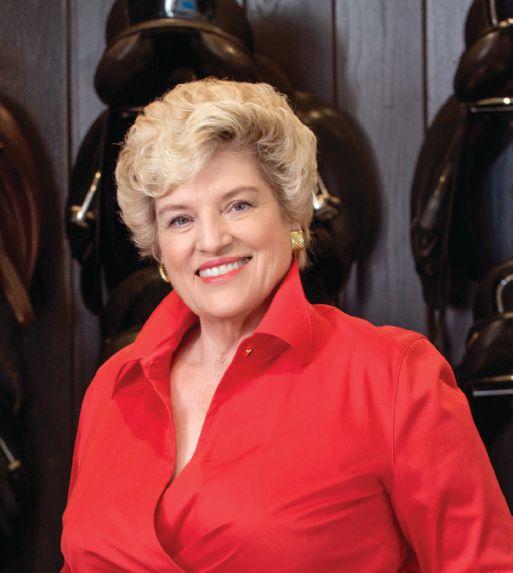



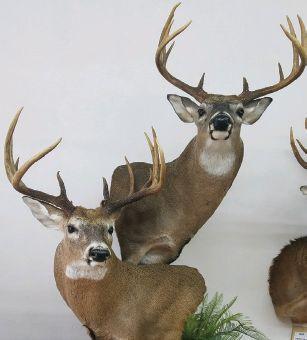

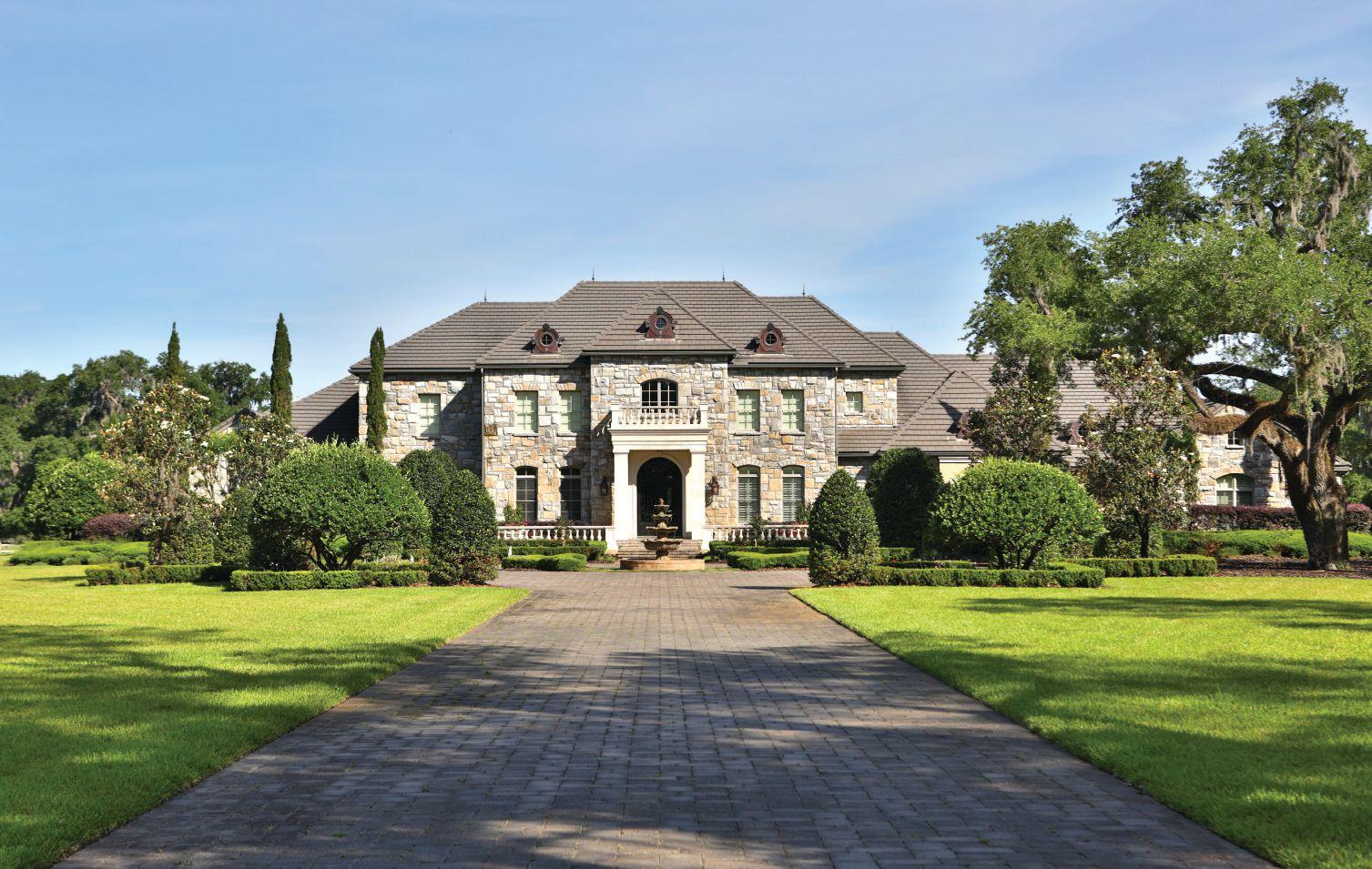
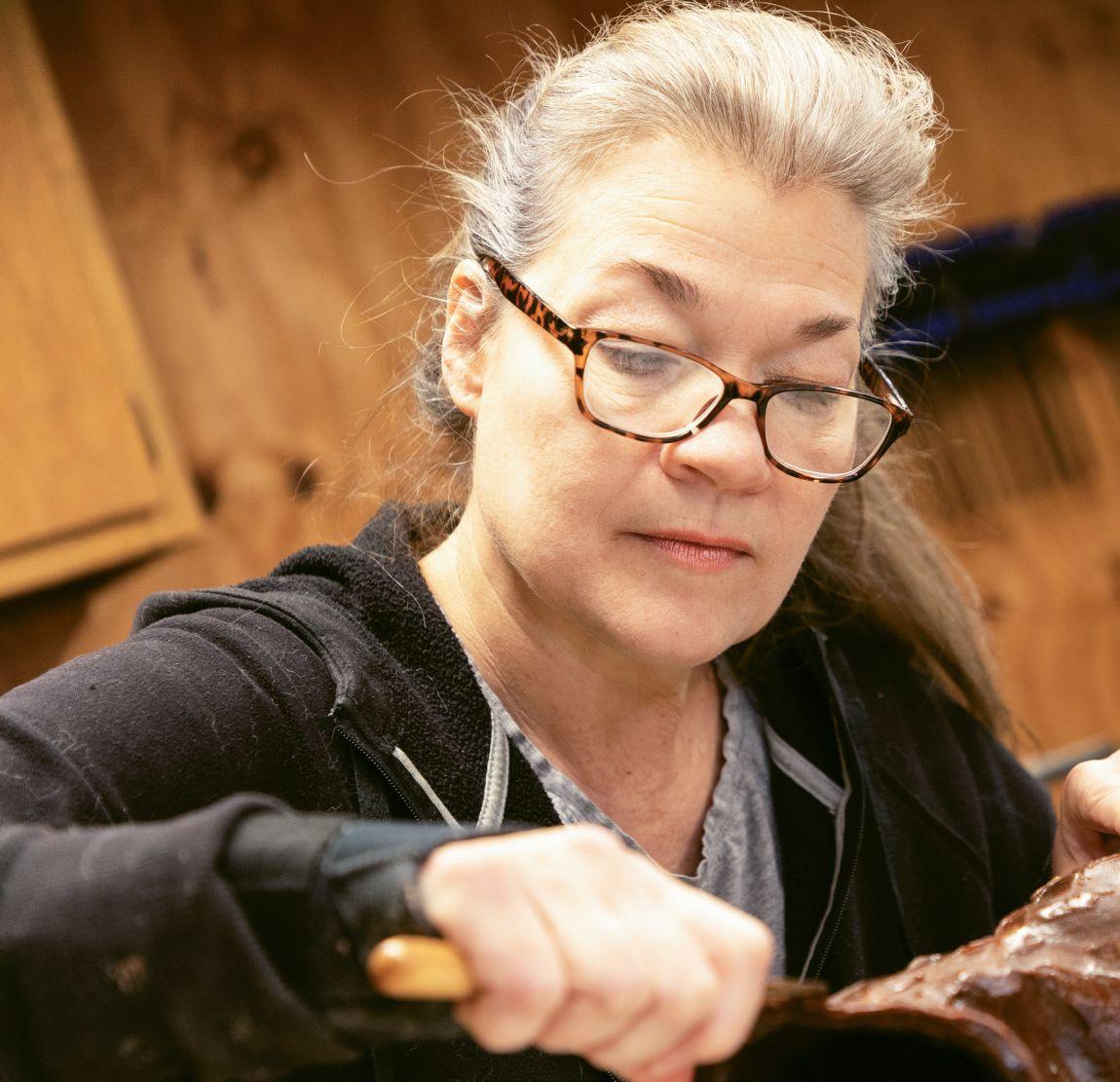
Prometheus Art’s Amanda Matthews and Brad Connell approach sculpting as a way to connect public art, the environment, and the community

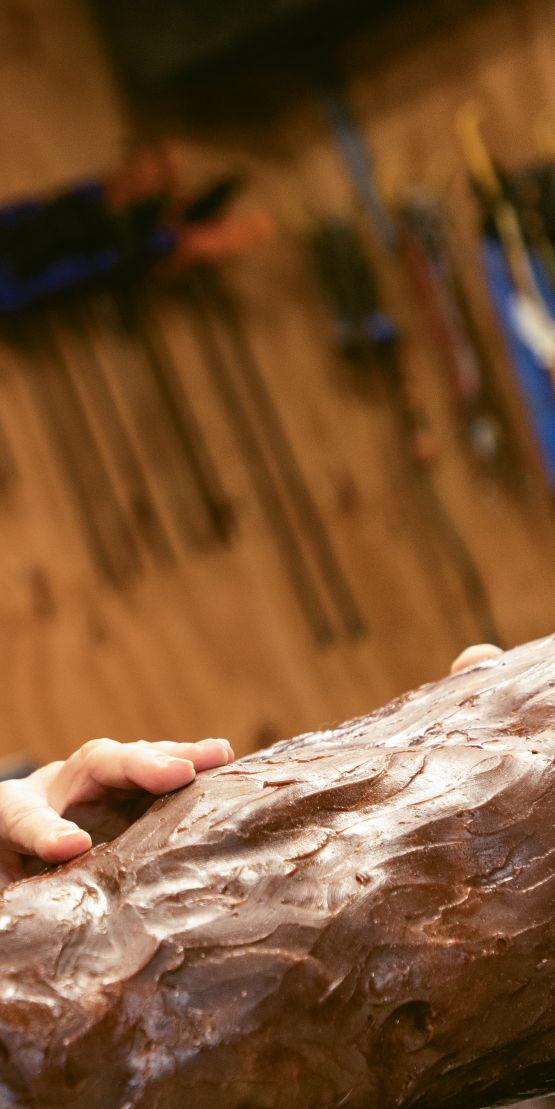 By Jacalyn Carfagno
By Jacalyn Carfagno
Growing up in a large, busy family, Amanda Matthews ofen sought refuge in “the untouched rolling Kentucky hills” behind her home.
Tose forays into nature stirred her creativity, and she began forming landscapes of her own imagination. “I was creating natural installations, even though I didn’t know it at the time,” she said.
Tose installations have taken her from Mt. Washington, Kentucky (“It was a tiny, tiny town then; now it’s just a tiny town.”) to Roosevelt Island in Manhattan, where her bronze sculpture, “Te Girl Puzzle,” has drawn visitors and recognition from around the world since it was dedicated in December 2021. Matthews won the competition to create the monument, an ode to pioneering 19th-century investigative journalist Nellie Bly, who went undercover to write about conditions at an insane asylum on the island. “Te Girl Puzzle” depicts a group of fve massive female bronze faces and three refective spheres and is named for one of Bly’s frst published works.
But Matthews has barely had time to take a long breath since that installation. In November, her larger-than-life statue of Nettie Depp, an education reformer and sufragette who was elected superintendent of the Barren County Schools in 1913, was dedicated as the frst permanent large-scale monument of a woman in the Kentucky State Capitol.
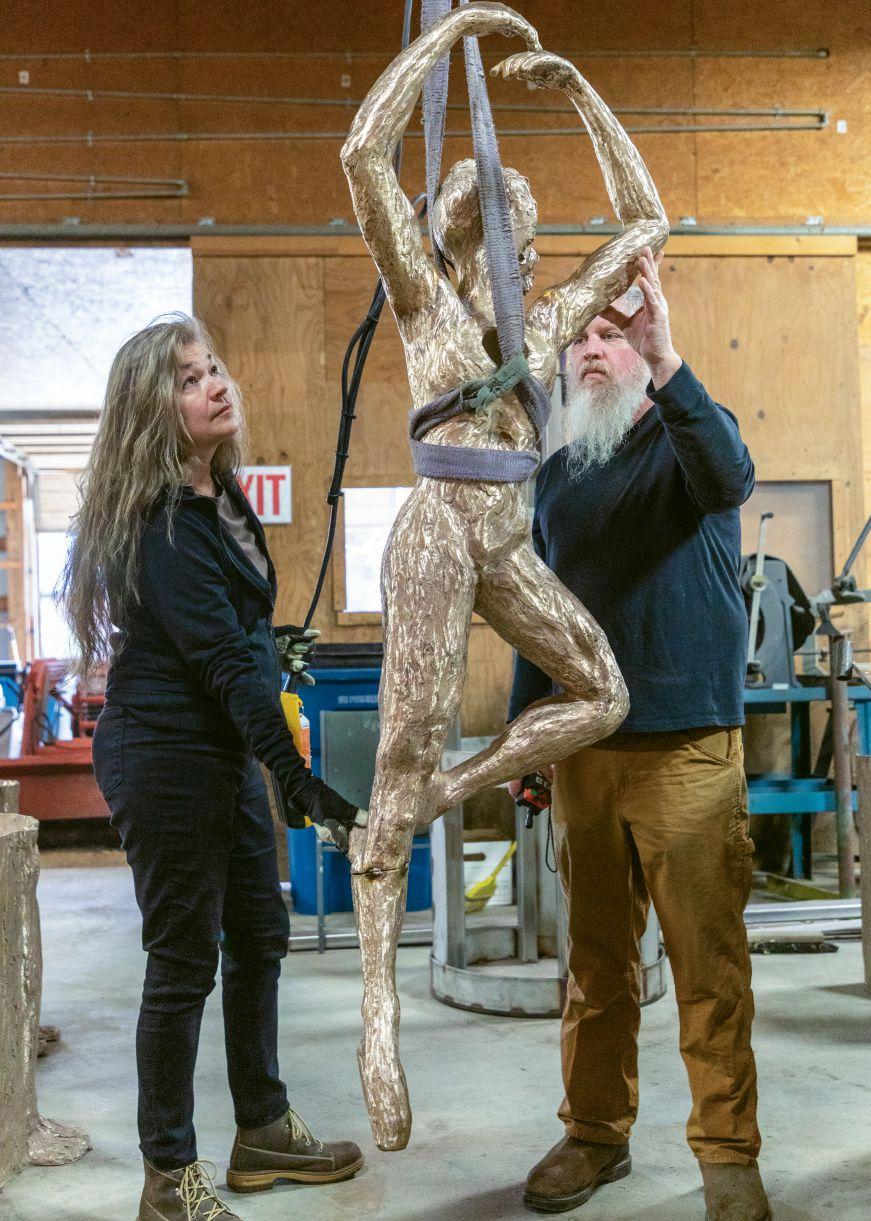





Over the winter she and her husband and partner, Brad Connell, have been working furiously to complete Kentucky’s Covid-19 Memorial monument in time for an installation in late spring on the State Capitol grounds.


Realizing at a young age she wanted to be an artist, Matthews graduated from the University of Louisville in the early ’90s with a degree in studio art and philosophy, then worked in “the corporate world” for years until she migrated back to the arts and became a successful and established painter and teacher.
A couple of decades ago, she began to add more texture to her canvasses until they













wilted under the weight. Finally, she thought, “Tis is crazy; why does one side have to be fat?” and exploded beyond two dimensions.

An early result was a female head whose wild hair is actually the root system of an uprooted honeysuckle bush. “Rhiza,” as she called the piece, was the frst of her Messengers series that uses wood and other natural objects to create mythical female fgures known as dryads. In her 30s, Matthews had found her artistic calling: “Te challenge of three dimensions, 360-degree perspective … really changed the way I saw things.”
Tat all-encompassing perspective melds with Matthews’ wide-ranging intellectual curiosity. In college she explored subjects
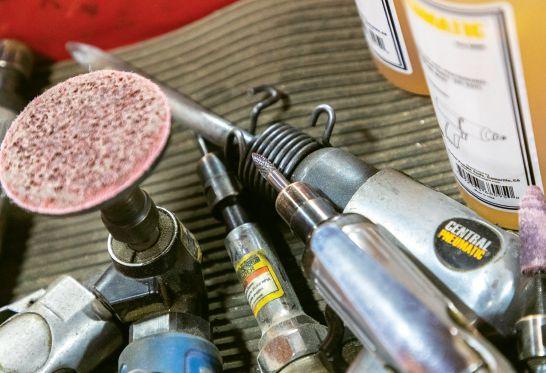
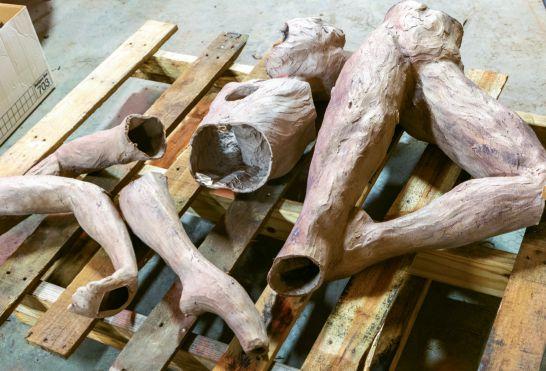
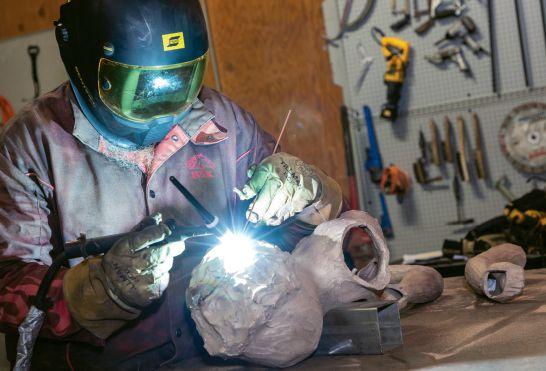
from philosophy to history to metaphysics to logic and comparative religions but was put of by the need to categorize felds of study. She saw instead “so many subjects that seem like they are dissimilar but overlap in so many ways.”
Tat explains the cardinal that will sit in the hands of a female fgure at the entry to the Covid-19 Memorial. Te cardinal is, of course, the Kentucky state bird, and Matthews herself is a University of Louisville Cardinal. But there’s a deeper meaning that makes it appropriate for a memorial to the more than 18,000 Kentuckians the virus has claimed. “People throughout the world associate the cardinal with a visit from a loved
one who has passed on,” she said.
Her dedication to research was evident in her work on a monument to Alice Allison Dunnigan, a Russellville, Kentucky, native who became the frst African American female correspondent to receive White House credentials. Te statue toured for several months before its fnal installation in Russellville in August 2019. At one of the stops, the Harry Truman Library in Independence, Missouri, Matthews read several passages from Dunnigan’s autobiography to explain decisions she made on how to present her clothing, including the scufs on her shoes, and her persistence in fnding and getting permission to use the edi-
April Selected Horses of Racing Age Sale
Apr. 30
September Yearling Sale
Sept. 11-23

November Breeding Stock Sale
Nov. 7-16
November Horses of Racing Age Sale

Nov. 17
Make plans for these key dates at Keeneland sales in the upcoming year. Learn
tion of the Washington Post Dunnigan holds in her hand.
Tat attention to both the big picture and the small details that bring a subject to life has impressed competition jurors. “Te nuance of symbolism, historical framework, levels of meaning and detail that she brings to her proposals are second to none,” wrote Carol Mitchell who, as Kentucky’s director of historic properties/state curator, is working with Matthews on the Covid-19 Memorial and was involved in the selection process.
Te two met when Mitchell became the state curator. Matthews had been on a mission since she’d learned that one of the few females represented in public sculpture in Kentucky was a general’s horse. “It was clear from our frst meeting that she was inspired and determined to change what she called an ‘obstinate norm’ of leaving out incredible stories of marginalized people,” Mitchell wrote. Tat led the two of them to found the Monumental Women of Kentucky committee.


Afer years of work involving three diferent governors, Matthews’ Nettie Depp became the trailblazing woman to earn a permanent spot in the Kentucky State Capitol.
Matthews vividly recalls scrolling through her phone one day when “this call in New York City just popped up” for the Nellie Bly memorial. “Honestly a little

‘‘
THE CHALLENGE OF THREE DIMENSIONS… REALLY CHANGED THE WAY I SAW THINGS.”
— AMANDA MATTHEWS


When Brad Connell and Amanda Matthews bought their 12 acres of Bluegrass farmland in late 2009, they knew they wanted to build a home there.

Connell had almost fnished a degree in architecture before he changed paths, and Matthews had grown up helping in her parents’ residential building company, getting her hands dirty working on foundations, erecting structures, installing lighting, and doing whatever else needed to be done. As sculptors who also install their massive works, they are both certifed to operate construction equipment.
They had lots of skills and ideas but, being artists, not that much money. For nine years they lived in an apartment in a horse barn on their property, and with plenty of storage space in other barns, began collecting materials.They haunted the Habitat ReStore in Lexington, fnding bargains on new windows and doors, and discovering a whole pallet of unfnished maple plywood and giant foor tiles left over from a construction job in a retail shop in a mall. A friend also called to say a tile and marble shop had thrown out a lot of material, and “we literally went dumpster diving” to retrieve boxes of slate and travertine, Matthews said. Her father told them about a neighbor who had picked up 24 new I-beams in Orlando and would sell them for $50 each.

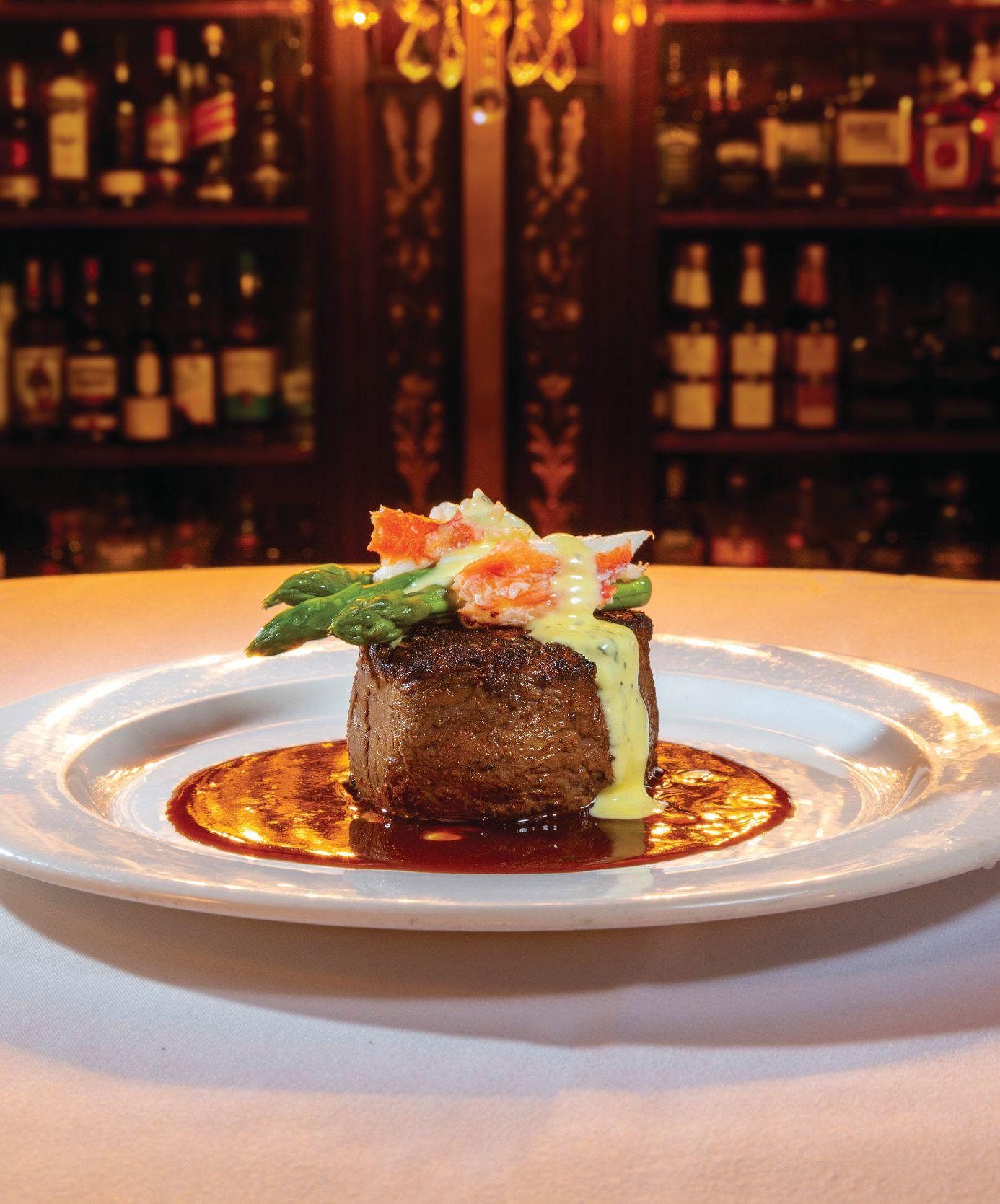


In the end, it was the I-beams that decided the form of the house, which they believe recalls the tall barns in Scotland and Ireland, where both their families come from. “We sort of designed the house around the materials we’d been acquiring,” Connell said.
In September 2016 the concrete was poured for the foundation and basement walls, and then Connell and Matthews got to work.They erected the I-beams themselves and designed and installed the electrical, plumbing, and HVAC systems. Con-

tractors did the framing and roofng, but they did all the carpentry — exterior siding and interior fnishes — and, of course, all the custom railings and the staircase.
The house they fnally moved into has a net-zero carbon impact thanks to the aggressive insulation they installed, the solar panels on an adjacent barn, the bank of south-facing windows that collect winter sun, the sun-protected windows on the west side, and the stair that acts as a fue for heat from a pellet stove in the basement.
While they were collecting materials and working on the house, Matthews and Connell also worked on the natural setting, eliminating pesticides to get organic certifcation for their land, rebuilding the pond, and planting over 300 trees and, last spring, 450,000 wildfower seeds in three meadows.
When they spent their frst night in the house in 2020, Matthews said, they sat up in bed, looked out the bank of windows, “and saw a million frefies. I think I was already in love with this space but that sealed the deal.”
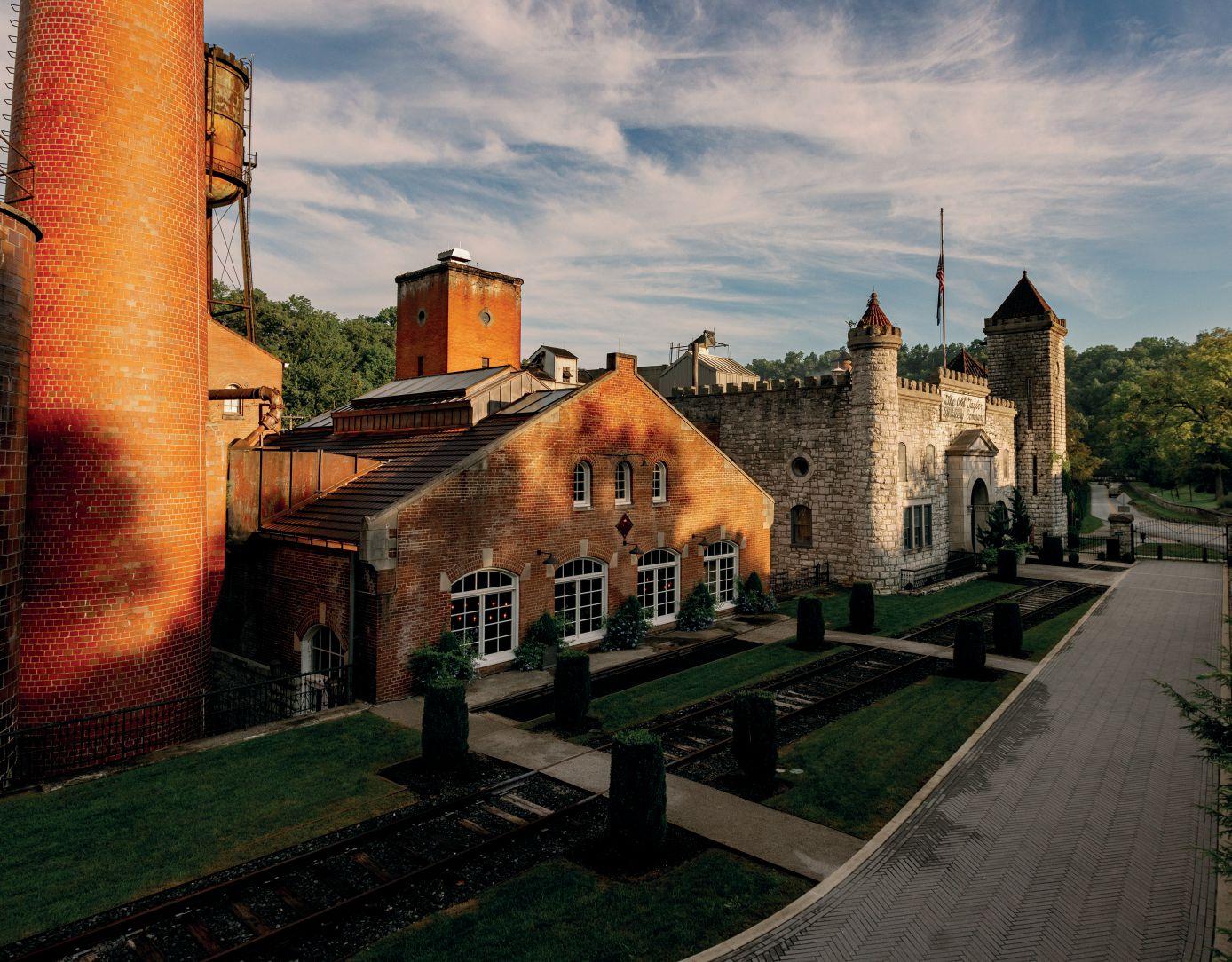


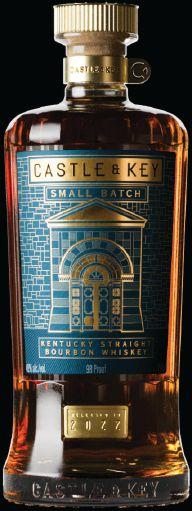
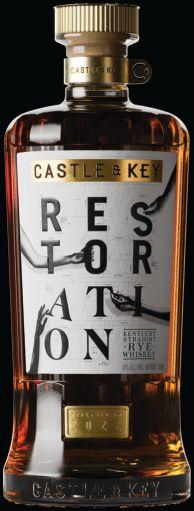

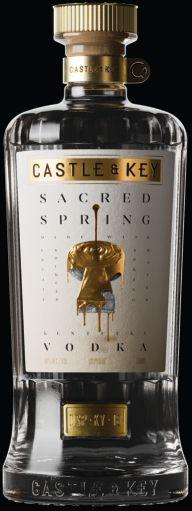
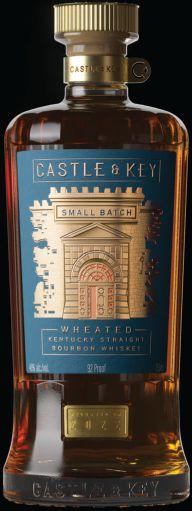
lightning bolt went through my body when I saw it.”
She had just failed in the competition for a commission she’d thought she had a good shot at landing and was a little down. Matthews was intrigued but thought her chances were slim and worried about expending the efort and expense to prepare a submission. When she asked her family what they thought, her younger daughter, Audrey, then in her teens, said, “You need a good rebound project.” So she gave it a go.
Bly, of course, spoke to Matthews. “She was a woman who transcended her time and place.” In addition to her journalistic achievements, Bly (her pen name; she was born Elizabeth Jane Cochrane) made a record-breaking trip around the world in 72 days, matching Jules Verne’s fctional accomplishment, and held several patents. But it was her work advocating for women’s rights and pulling back the curtain on conditions in the insane asylum that inspired Matthews.
What she conceived was the fve massive female heads, each modeled on a real woman — Bly and four women Matthews knows personally, including both her daughters — to tell a story of female struggle and survival, brokenness, and healing.


Lynne Strong-Shinozaki, a longtime resident of Roosevelt Island and at the time chair of the area’s community board, was on the jury that reviewed the
presentations. Te number was “whittled down” from dozens to seven and then to three. For the fnal review, the artists brought in storyboards illustrating their concepts. “I want to be very clear that the competition was stif,” Strong-Shinozaki said. Te other two fnalists presented what she called “traditional” concepts.
“Ten Amanda brought in her pieces,” Strong-Shinozaki said, “and I remember thinking ‘what the hell is that?’ ” But then Matthews started talking and “just mesmerized the room.” As she talked, “it was clear she had done an unbelievable amount of background work,” discovering not just who Nellie Bly was “but the essence of who she was as a human being.”
Strong-Shinozaki was prepared to fght for Matthews to get the commission but the efort wasn’t necessary. “Te minute the door closed I screamed ‘that’s it,’ and everybody went ‘yea, yea, yea.’ ” She says the installation did not get the launch it deserved, thanks to New York politics, the time of year (between Tanksgiving and Christmas), and the lingering pandemic, but it has still drawn thousands of people to Roosevelt Island. Tey come to show their daughters these huge images of Asian, Black, gay, young, and old women; to learn about the remarkable Nellie Bly; and to see themselves represented in sculpture, at last.
Matthews is not done telling the story. KM

Shop in-store or online at KeenelandShop.com

A. KEENELAND 16OZ. SILICONE PINT GLASS

100% unbreakable food-grade silicone that is BPA-free Microwave, freezer and dishwasher safe. Safe for hot & cold
$16
B. THE BEAUFORT BONNET COMPANY | CHOMPING AT THE BIT COLLECTION
C. KEENELAND+ UNIVERSITY OF KENTUCKY COLLECTION

D. KEENELAND+ UNIVERSITY OF KENTUCKY COLLECTION
Four-way stretch, moisturewicking, quick-dry and UPF 50+ sun protection. Style: BLK Popcorn
$144
stretch, moisture-






and The for the littlest of
The Keeneland Shop and The Beaufort Bonnet Company have teamed up to bring cute and comfy pieces for the littlest of racing fans!

$45
E. & F. KEENELAND NECKWEAR
Style: E. Blue Pindot, F. Powder Blue



$48
Quarter-zip with banded cufs and hem, Four-way stretch, moisturewicking. Style: Maritime


$140
G. KEENELAND GATEPOST STATUE
The iconic Keeneland Gatepost Statue is the perfect fgurine for your home or ofce desk.

$24

$800
Shop in-store or online at KeenelandMercantile.com


Bourbon Barrel Cocktail Mix is made with our Bourbon Barrel Worcestershire and Bourbon Smoked lemon
Bourbon Barrel Foods Bloody Mary Cocktail Mix is made with our vegetarian, Bourbon Barrel Aged Worcestershire and Bourbon Smoked Spices along with coldpressed lemon and lime juices.
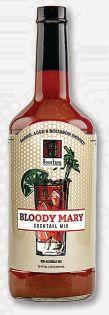
$14


Enjoy your favorite hot beverage in this University of Kentucky mug.


$28
hot in
Show your Kentucky pride with our new Kentucky Camp Flag.


Dimensions: 28” x 6”
$48
A large platter, with sloped edges evokes the shape of Rupp Arena with fans cheering from their seats.

Arena with fans from their seats.
$135


Made of mirror-fnish pewter, these tarnish free stirrup cups are sure turn heads.
$129
 BOURBON BARREL FOODS BLOOD MARY MIX
A. KAYLA WEBER HAND PAINTED BARREL HEADS
Custom painted bourbon barrel heads by Kayla Weber Nord
STONEWARE & CO. UNIVERSITY OF KENTUCKY BASKETBALL CHIP & DIP SET
KENTUCKY CAMP FELT FLAG
STONEWARE & CO. UK 14OZ MUG
BOURBON BARREL FOODS BLOOD MARY MIX
A. KAYLA WEBER HAND PAINTED BARREL HEADS
Custom painted bourbon barrel heads by Kayla Weber Nord
STONEWARE & CO. UNIVERSITY OF KENTUCKY BASKETBALL CHIP & DIP SET
KENTUCKY CAMP FELT FLAG
STONEWARE & CO. UK 14OZ MUG






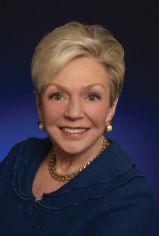

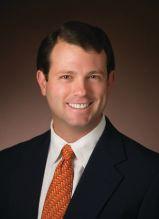




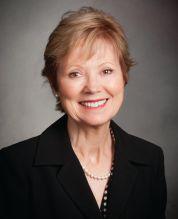

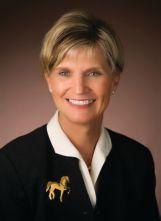

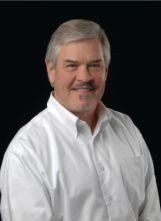


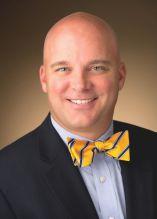


























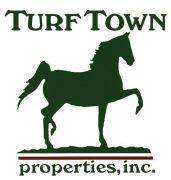












Although the lifetime chance of being struck by lightning is only one in 15,300, lightning ofen does strike the same place twice. Tat fact, courtesy of the National Weather Service, not only puts to rest a long-believed myth but also provides a metaphorical explanation for Ron Winchell’s success in the Toroughbred world.
By Lenny Shulman Lenny ShulmanAny horse owner hopes to campaign a runner that becomes a top stallion, which is where the “real” money is made in Toroughbreds. Winchell has realized that dream not once but twice. First came Tapit, an accomplished though not spectacular racehorse who proved to be a prepotent sire. Tapit has led the North American stallion standings three times, and his sons and daughters will cross the $200 million markinearningssometimein2023.Winchellhadthe foresight to maintain a 50% interest in Tapit in a partnership with Antony Beck’s Gainesway, where Tapit has stood his entire stallion career.
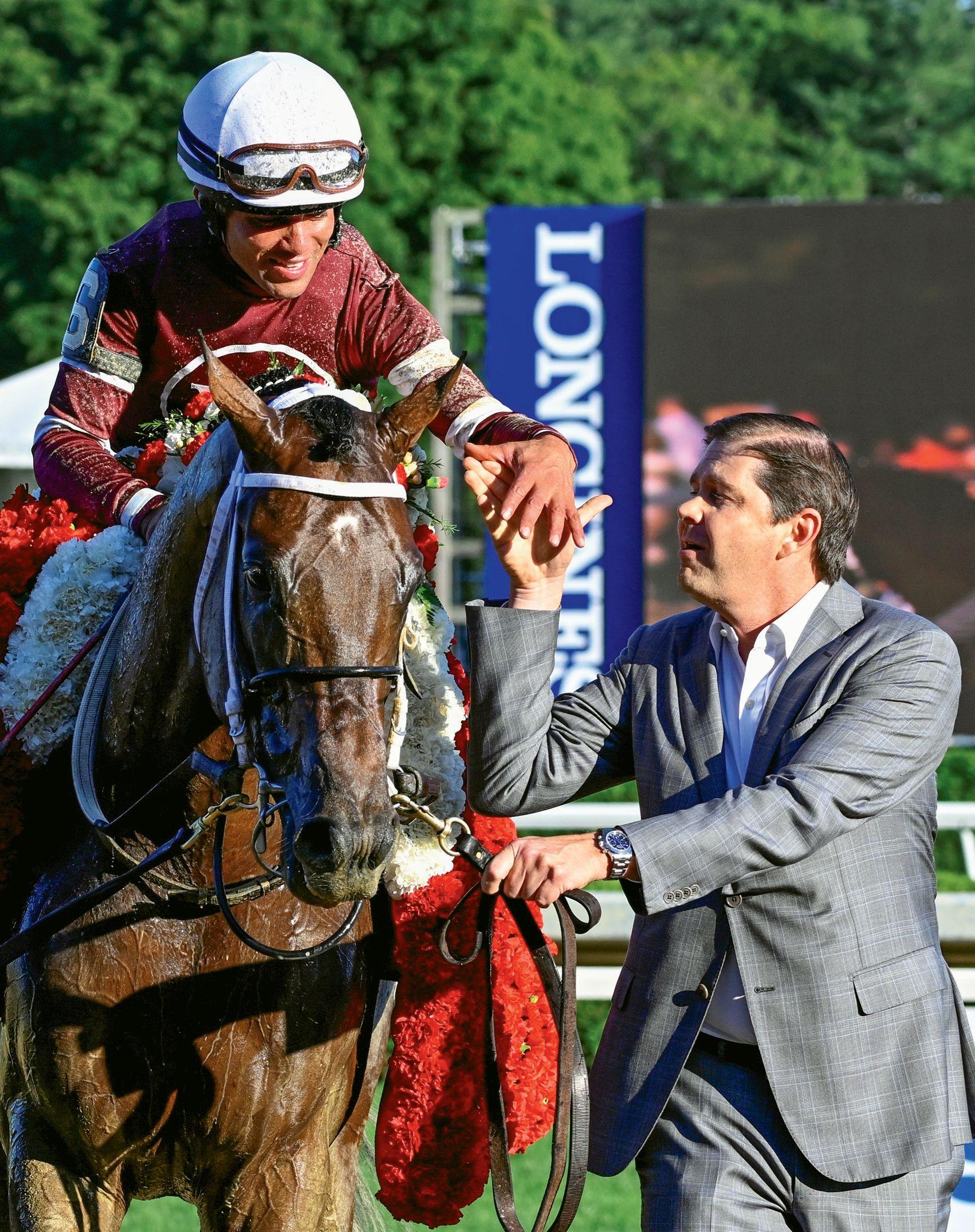
Winchell, though, was not through striking the top of the sire standings. When Goncalo Torrealba’s Tree Chimneys Farm decided it wanted to hold onto a 2-year-old Candy Ride colt rather than run him through an auction, it approached Winchell to come in as a 50% partner. Tus, Winchell became co-owner of Gun Runner, 2017 Horse of the Year and a six-time grade 1 winner of nearly $16 million on the track. Retired to stud at Tree Chimneys, Gun Runner has shot from the gate as a stallion, siring a remarkable six grade 1 winners from his frst crop, three of which were bred and are owned by … wait for it … Winchell.
For 2022, Gun Runner, with just two crops of progeny racing, fnished in ffh position on the leading sires list, an unprecedented achievement. Tapit landed

just behind him in seventh place. Another feather in Tapit’s cap is the fact he is the sire of 2022’s Horse of the Year, the magnifcent and undefeated Breeders’ Cup Classic winner Flightline.
Sires such as Tapit and Gun Runner commandsix-fgurestudfees,andintheir prime can breed, conservatively, between 100 and 200 mares per season. Tat math brings with it a lot of commas and zeroes and the dulcet tones of a busy cash register. It’s lightning striking the same place twice. So, one would think Winchell, a Las Vegas-based casino entrepreneur, has earned the right to sit back and be satisfed with having smacked a pair of grand slams. Not exactly.

“Since Gun Runner has hit, we’re searching for the next one,” Winchell said matter-of-factly. “I’m looking for light-
ning to strike a third time.”
It’s not braggadocio. Although his is a medium-size operation by today’s standards, Winchell’s pipeline continues to overfow, with promising performers pouring from its ranks with the consistency of a metronome. Travers Stakes (G1) winner Epicenter is to begin his stallion career at Ashford Stud. Copper Bullet, a grade 2 winner at Saratoga who stands at Darby Dan Farm, will see his frst runners hit the track in 2023. Gunite, a graded stakes winner at Saratoga (including the grade 1 Hopeful) each of the past two seasons, will one day follow his sire, Gun Runner, to a stallion paddock. And Extra Anejo, an eye-popping debut winner at Keeneland by a whopping 9½ lengths in 2022, is just revving up his racetrack career carrying Winchell’s
We’re obsessed with the details, from the quality of materials to the quality of service, to design homes that serve everyday needs with steadfast style.
As high-end custom builders, we carry on a commitment to creative design and forwardthinking construction. Put simply, our estates are built to last.
 Architect: Gibson Taylor Thompson Architecture & Design
Designer: Dovetail Design Studio
Photography: Matt Peel Photography
Architect: Gibson Taylor Thompson Architecture & Design
Designer: Dovetail Design Studio
Photography: Matt Peel Photography
maroon silks with an encircled white “W.”
Winchell, 50, is not the type of owner to fst-pump, backslap, and scream his way from the clubhouse to the winner’s circle, calling attention to himself at every turn. He’s as quiet as a teenager tiptoeing in two hours afer curfew. He’d rather defect credit to his team of advisers than claim it for himself. Winchell calls it achieving success in his own way, learned at the elbow of his father.

Verne Winchell in 1948 opened a doughnut shop in Southern California carrying the family name, and the chain eventually grew to 170 stores in six states. He turned his prowess with dough into a thriving Toroughbred stable, campaigning outstanding runners such as Olympio, Sea Cadet, Fleet Renee, Mira Femme, On Target, and, of course, Donut King. Te elder Winchell began Mira Loma Farm in the Golden State but soon moved his operation to the Bluegrass State, eventually
buying a farm on Russell Cave Pike that is still in the family and now known as Corinthia.


Ron received what you’d call an early education on the racetrack. “We have winner’s circle photos where my mother is pregnant carrying me, so you could say I’ve been around this all my life,” he noted. More importantly, he learned from his father the value of keeping a small circle of trusted advisers and giving weight to their opinions. It is a template employed successfully to this day by Winchell Toroughbreds because Verne Winchell had the foresight to elevate his son to the partnership level.
“Te horses were the thing my father and I did together,” said Ron. “We’d always go to the Keeneland September sale together, always bought and sold horses together, always talked about the upcoming 2-year-olds. I wasn’t just his son that he was bringing along; he would treat me like a partner. He valued my opinions,







and we worked extremely well together.”
Today, Ron Winchell keeps a tight band of long-standing cohorts who aid him in decision-making. Included are David Fiske, who has managed Corinthia for more than 40 years, for both Verne and Ron; Dr. David Lambert, who performs heart scans on potential equine purchases; Keith Asmussen, who gives early training to Winchell’s horses at his Texas training center; and Asmussen’s son Steve, who conditions them at the racetrack. Tis stability of personnel brings many rewards.


“When you maintain the same cohesive team, you tend to really learn from your mistakes and your successes,” Winchell said. “We’ve done a good job collectively learning and building upon our experience, and we’re certainly way more refned today. I can tell you that Steve is a better trainer than he was 10 years ago. Dave Lambert is better today. I’m better at what I do. Te operation of the farm under David Fiske is better today. When you put all that together, it tends to become more powerful. We’re having far more frequent success today.”
Chris Baker, the chief operating ofcer of Tree Chimneys, works closely with Winchell Toroughbreds through their mutual interest in Gun Runner and confrms the importance of depth and talent. “Ron himself is a terrifc partner who understands the business thoroughly and is a pleasure to work with,” Baker noted. “And the bonus is, when you’re partnering with him, you’re partnering with his entire program — the horses he breeds and buys, his farm, the Asmussen family — all things that add value to future breeding stock through performance.
“Ron’s nature is to go about his business quietly and let the horses do the talking, but the discipline with which he conducts his afairs and the program he’s created over time are huge pluses.”
Tere are many in the Toroughbred business who do the right things and meticulously plot their matings and purchases, work hard, have a sound business plan, and yet don’t get near the results

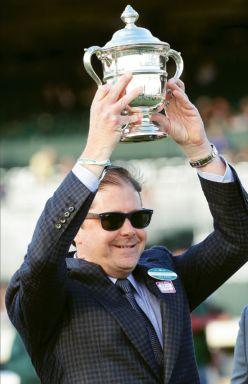

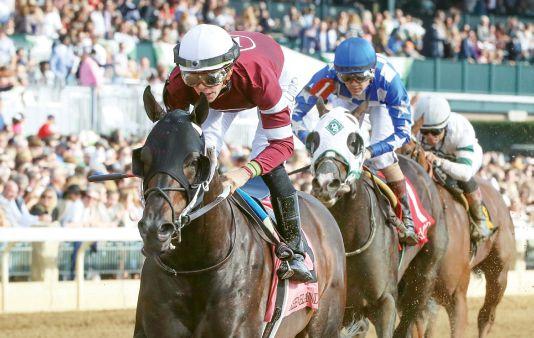
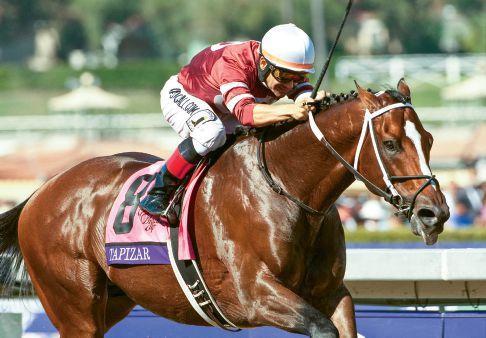
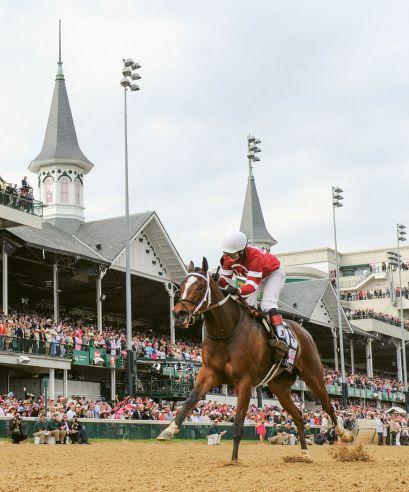
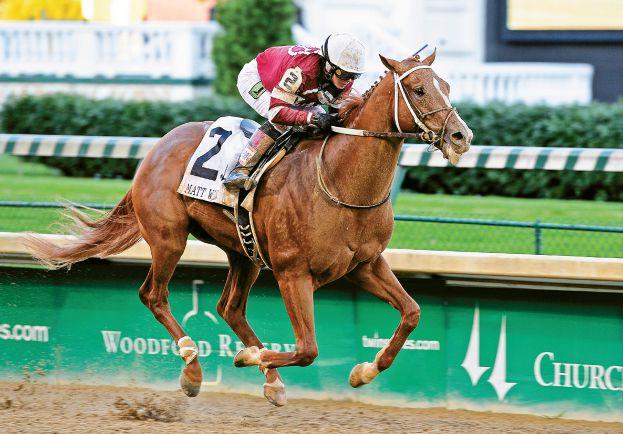


















enjoyed by two generations of the Winchell family. And that is because another essential ingredient is necessary to get people and horses to the winner’s circle.
“Everyone matches up pedigrees and everyone works hard, and most horses that go to stud have some degree of black type [stakes victories] and strong speed fgures on their resumes,” allowed Fiske, who oversees the Winchell broodmares at Corinthia. “So, I have to attribute it to luck. Ron’s father was one of the luckiest guys I’ve ever known, and Ron may be even luckier.”
Doug
Cauthen, vice chairman ofTree Chimneys, added, “Ron has earned his luck through hard work, a solid plan, and good people. As a breeder, he really pulled his weight making sure Gun Runner got of to a fast start and is successful.”
One’s luck defnitely improves when you have the access to breed multiple mares each season to a sire such as Tapit. A steady stream of graded stakes winners sired by the gray son of Pulpit has been bred and raced by Winchell over the past decade. Tapizar won the Breeders’ Cup Dirt Mile (G1) in 2012. Te following season, Untapable took the grade 1 Hollywood Starlet and returned in 2014
to capture the Cotillion, the Kentucky Oaks, the Breeders’ Cup Distaf, and the Mother Goose Stakes (all grade 1). Also in 2014, Tapiture won the West Virginia Derby (G2) and another pair of graded stakes. In 2015, Untapable won another grade 1, the Apple Blossom.
“Tapit was the last yearling purchased by Verne Winchell,” recalled Antony Beck, CEO of Gainesway. “Horse racing is a passion that Ron has shared with both his parents, and he became obsessed with it, both the track and breeding end. His knowledge is truly immense, and he’s constantly wanting to learn even more.

Wager from anywhere with Keeneland Select, the mobile betting app that gives back to the sport.

New Keeneland Select accounts receive a special $100 back after you wager $200 on Keeneland racing this April. Wager a total of $300 in the frst 30 days, and earn another $100 back with the standard sign-up bonus!
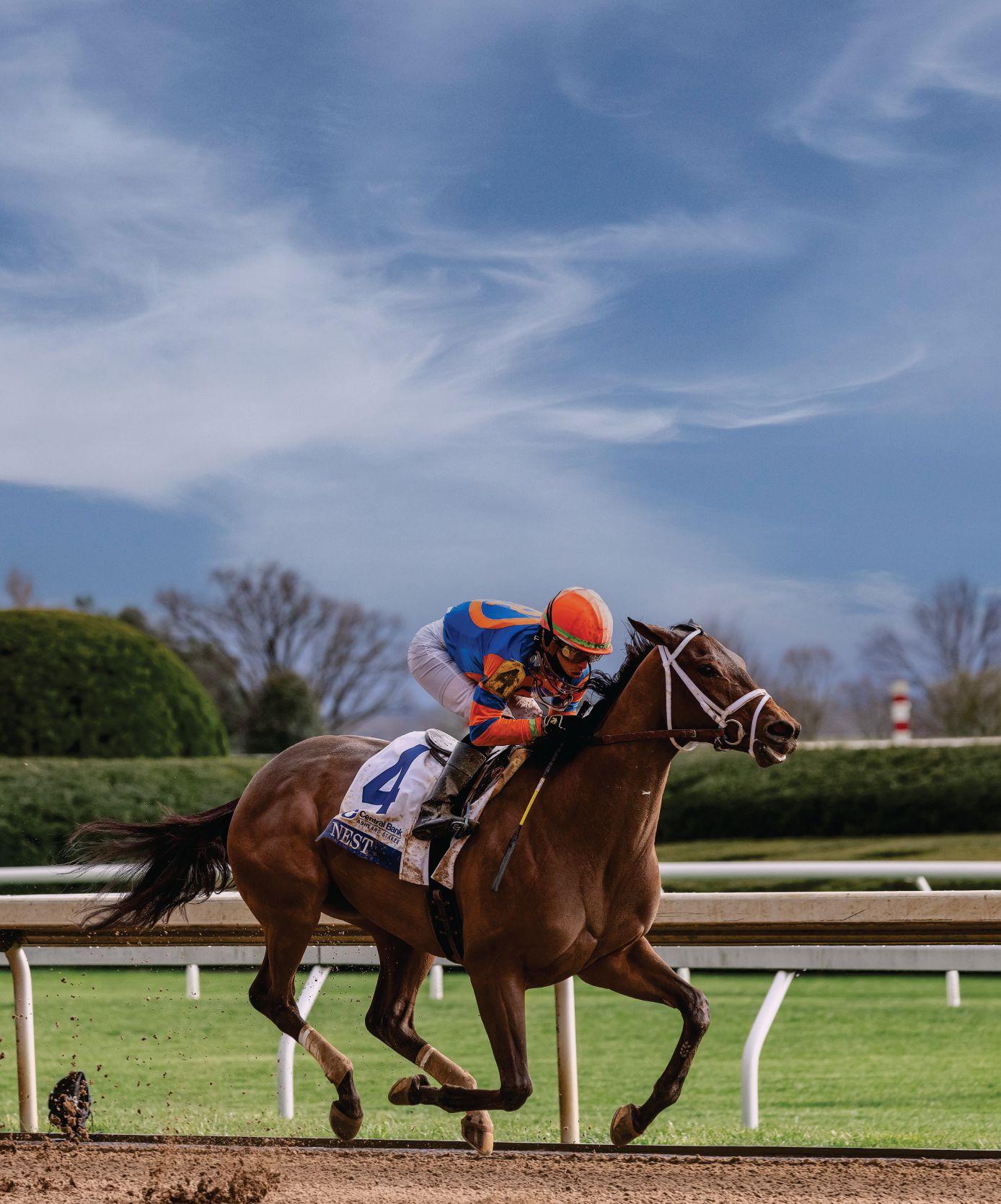
He and I developed a strong and lasting friendship and have had a few nice winners and a lot of fun together.”
As a gif that keeps on giving, the Tapit fllies bred, raced, and then retained by Winchell for his broodmare band happen to match up well with Gun Runner. And that has meant perpetuating the racetrack triumphs enjoyed by the Winchell operation. Winchell sent his Tapit mare Just Wicked to Gun Runner and named the resultant flly Wicked Halo. Wicked Halo won the Adirondack Stakes at Saratoga in 2021 and the Prioress Stakes and the Lexus Raven Run Stakes (at Keeneland) in 2022, all grade 2 afairs. She has banked $870,200 to date.
Simplify, a daughter of Pulpit, produced Optionality, a multiple stakes-winning flly by Gun Runner, for Winchell. And his broodmare Simple Surprise, who is by the modest stallion Cowboy Cal, was sent to Gun Runner and produced Gunite. In addition to winning the Hopeful in 2021, Gunite returned in 2022 to take the Amsterdam at Saratoga and the Perryville at Keeneland, and is already a millionaire. It is no secret now that Gun Runner improves the vast majority of mares that are sent his way and that Winchell has yet another avenue along which to produce and race talented runners.
Winchell’s discipline is such that he refuses to allow his success to infuence the size of his broodmare band or racing stable. In fact, he jokes he only really needs fve racehorses, if he could only fgure
out which fve to keep. As trial and error necessarily plays a role, as does attrition through injury, the stable still can swell to about 50 when the 2-year-olds make it to the races in spring/summer. With the Tapits and Gun Runners fueling the way, the quality of Winchell’s homebreds is getting better and better. He augments these with sales purchases.
the January 2022 horses of all ages sale, Keeneland sold a Gun Runner season donated by Winchell and partners to beneft Western Kentucky tornado victims. Te season sold for $130,000.) If the price isn’t right Winchell is happy enough to race them himself.
Te broodmare population at Corinthia has remained steady at between 25 and 30; although with an eye toward supplying Epicenter, Winchell added fve mare purchases this past November. “We have more stallions to support, and we try to give them as much chance at success as we can when launching their stallion careers,” Winchell said. “Te farm operation exists to support the stallions.” As Cauthen alluded, more than half of Winchell’s broodmares were sent to Gun Runner his frst year at stud, an unusual gamble that has paid of.
“Our purchase program doesn’t come from a philosophy of needing ‘X’ number of horses but rather on what we end up fnding,” said Winchell. “If we happen to fnd fve at the sale that we like, great. If we fnd 10, great. We’re keeping a few more homebreds than we used to because the product today is better.”
Typically, Winchell will ofer about 10 yearlings at auction per year while keeping a like number to race. Some of the better stock has come to market recently because the team thinks it is important to bring outstanding-looking progeny of Gun Runner to the public’s attention. (At
Another gambling venture that has paid of both for Winchell and the Toroughbred industry in Kentucky is the proliferation of his primary business in the Bluegrass State. Winchell owns and manages a string of 35 small casinos around Nevada, many of which are branded as Jackpot Joanie’s, in honor of his mother, Joan. Since Kentucky legalized Historical Horse Racing (HHR) machines that use past races as a slot machine-like gambling vehicle, Winchell has expanded to Kentucky under the Mint Gaming Hall banner. He now operates the casino at Kentucky Downs, a racetrack in southern Kentucky owned by Winchell and partners. Additional Mint Gaming Halls




are up and running in Bowling Green and in Williamsburg. He is building a fourth Kentucky site in Corbin, where Winchell has acquired a license to operate a Standardbred racetrack.

A percentage of profts from these casinos is earmarked for the Kentucky Toroughbred Development Fund, helping to fund purses at racetracks across the state as well as returning awards to breeders. Tese monies have helped lif Kentucky racing and make it competitive with states such as New York and Arkansas, which have enhanced purse money through casino profts. Te Kentucky racing circuit today is healthier than it has been for several decades because of this added money.
“Kentucky Downs was an opportunity as a horse racing and gaming crossroads, if you will,” said Winchell. “Te Historical Horse Racing platform was on the verge of exploding, and we were able to recognize that. It’s enabled Kentucky to remain the leader of the Toroughbred industry in-
stead of it falling far behind other states, so it’s been crucial for horse racing.
“It’s a great business, and it provides entertainment — instant entertainment, which is what people want today. Horse racing has fallen behind because people don’t want to wait 30 minutes between races. Tese HHR machines aren’t much diferent from going to a teller at the track and hitting the Pick Six quick pick. Tat’s all it really is — hitting the quick pick button, and the wheel turns and
provides that instant action.”
Winchell’sorganizationhasa75%stake in the Mint Gaming Halls in Kentucky and operates the facilities. Keeneland is one of the minority owners of Mint.
Ron Winchell’s wheel has come up three cherries in casinos and in Toroughbred racing and breeding, bringing dual jackpots to the quiet entrepreneur. Tere remains, however, at least one unchecked item on his agenda — Epicenter losing to the out-of-the-clouds longshot Rich Strike in last year’s Kentucky Derby lef Winchell still seeking his frst victory in the Run for the Roses. And there is also one unattainable dream he wishes he could bring about.
Asked what his late father’s reaction would be to today’s Winchell Toroughbreds, Ron said, “I’d give anything for him to come back for a day so we could show him where we are. He’d be foored because it’s defnitely gone to a diferent level. I’d love to talk to him about everything. Unfortunately, we can’t do that.” KM
SINCE GUN RUNNER HAS HIT, WE’RE SEARCHING FOR THE NEXT ONE.”
—Ron Winchell
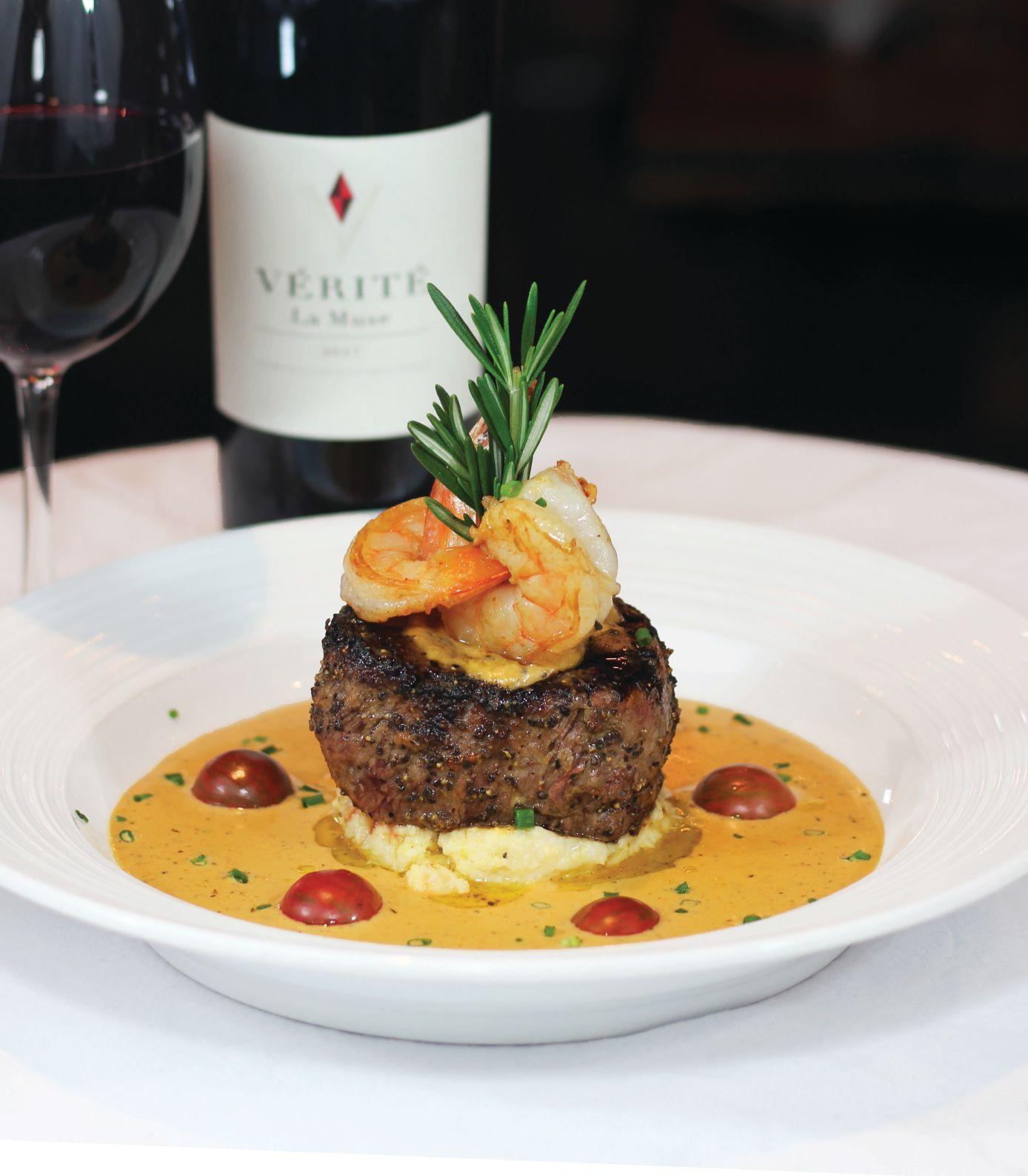

























Kirkpatrick & Co. has recently handled these sales (& many others too).

3337-3353 Rushing Wind Lane, Fayette
5876 McCracken Pike, Woodford
1589 Newtown Pike, Scott
3605 Watts Ferry Road, Woodford
656 Escondida Road, Bourbon

293 Moores Mill Road, Scott
3375-3491 Briar Hill Road, Fayette
823 McCalls Mill, Fayette
2254 Carrick Pike, Fayette

2447 Peacock Road, Bourbon
722 Brentsville Road, Bourbon
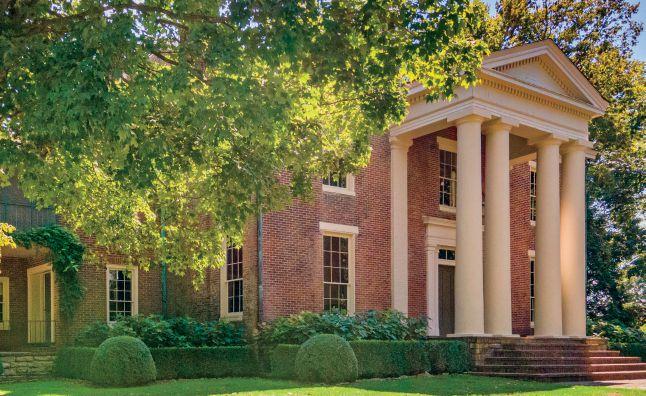
500-600 Link Avenue, Bourbon
335 Cassidy Avenue, Fayette
9086 Old Richmond Road, Fayette
3056 Muir Station, Fayette
111 Woodland Avenue No. 411, Fayette
136 Taylor Lane, Scott
3921 Kearney Road, Fayette

2981 Four Pines Drive No. 4, Fayette
3288 Delong Road, Fayette


436 Barroway Lane, Woodford
It would be our pleasure to help you, too.
Zach Davis, Principal Broker Tamara Bayer Catherine Combs Hannah Davis Emig
Robin Owens Betsy Lankford Greg Martelli, Associate Broker
5876 McCracken Pike 823 McCalls Mill The HollysWe have buyers for properties like these.
Do you know a relevant property that could be purchased?
Our client is seeking 50-100 acres in Woodford County, southern Franklin, or Scott near Midway. Lots of foliage & mature trees, as well as scenic water views and a cabin or historic home would add great appeal.
Our client would like a gracious home with ample living space on 10+ to 300 acres with a central Bluegrass location. $5-8M
Our client desires a very special farm of around 100 acres, preferably in Woodford County with some equestrian facilities & appropriate fencing. A practically-sized residence could add value.
We're searching for a thoroughbred farm of 200300 acres preferably without a large home for our client. Practical layout & facilities prioritized. Open to Bourbon, Fayette, Scott or Woodford County. $3.5-7.5M


Zach Davis, Principal Broker 859.576.8195 or zach@kirkfarms.com

Horse of the Year and undefeated phenom Flightline settles into life as a stallion at Lane’s End Farm
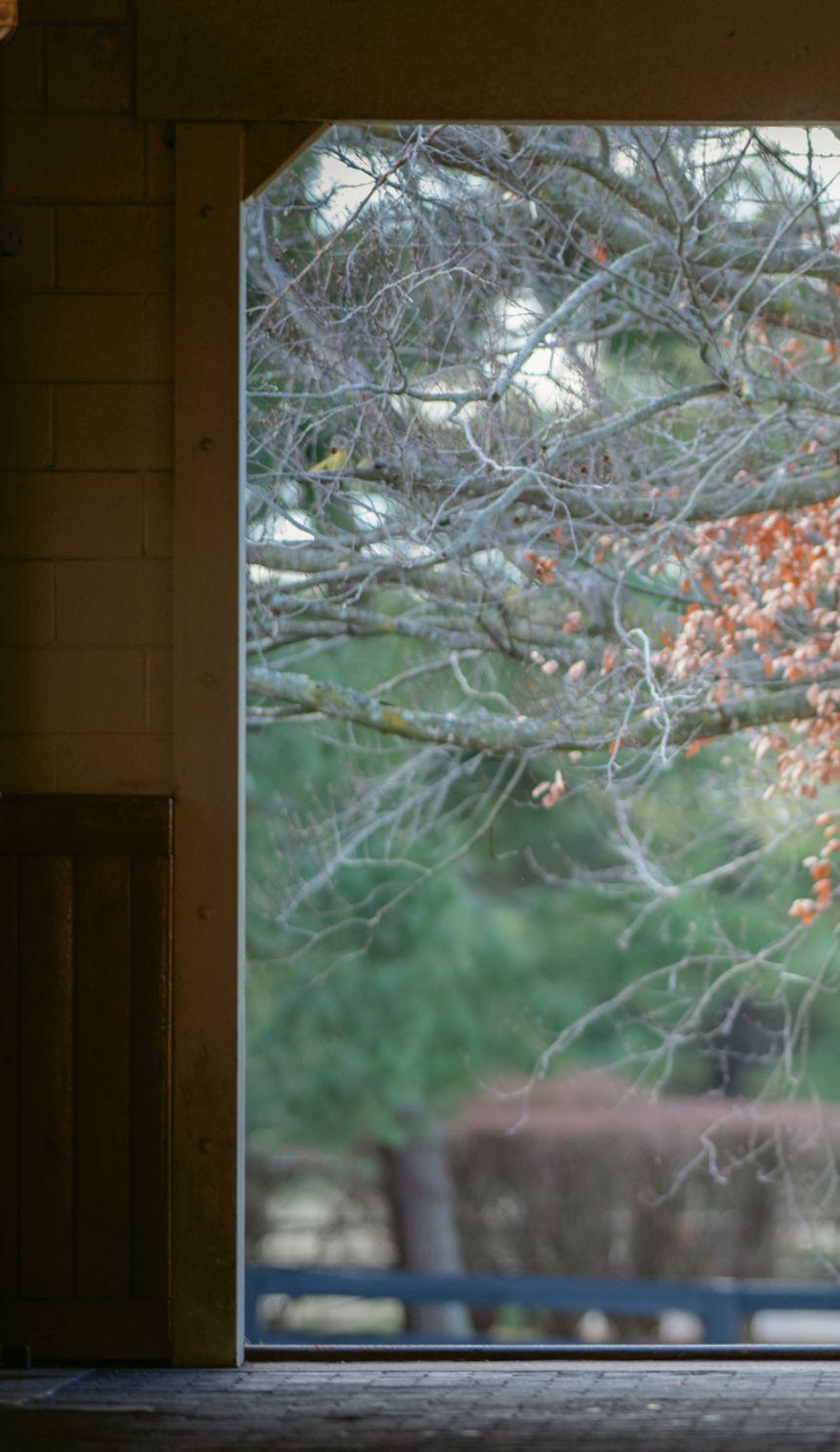 By
By
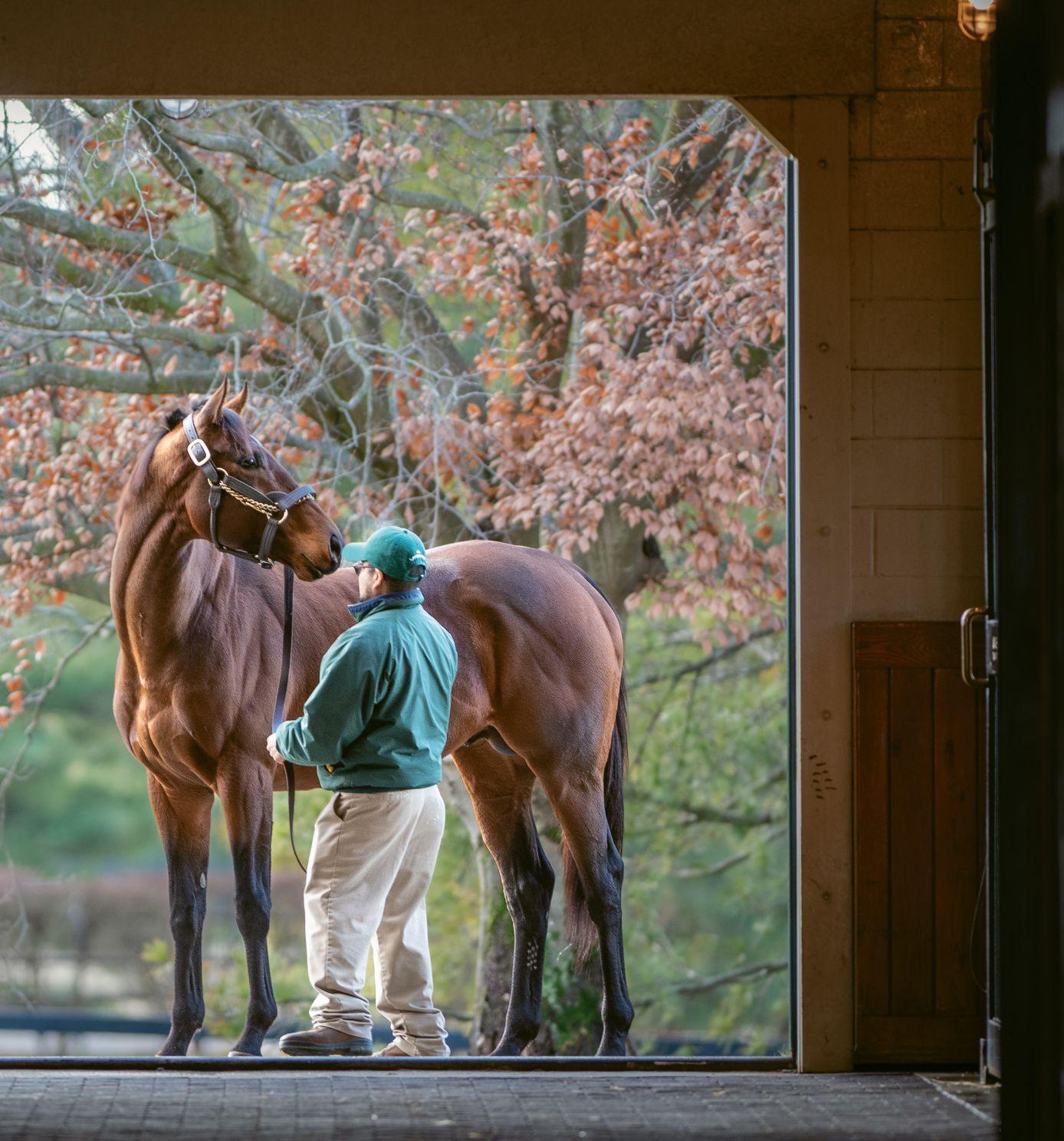
In the capable hands of veteran groom Juan Ruelas, Flightline enjoys the rhythms of his new routine.
On the afernoon of Nov. 5, 2022, Flightline, the undefeated 4-year-old son of Tapit whose reputation was on the precipice of mythical, lef his stall at Keeneland and headed to the starting gate for the $6 million Breeders’ Cup Classic. Te end-of-season championships, held for only the third time at Lexington’s boutique oval, had brought together racing’s fnest and — as fans were about to see — its truly dazzling.
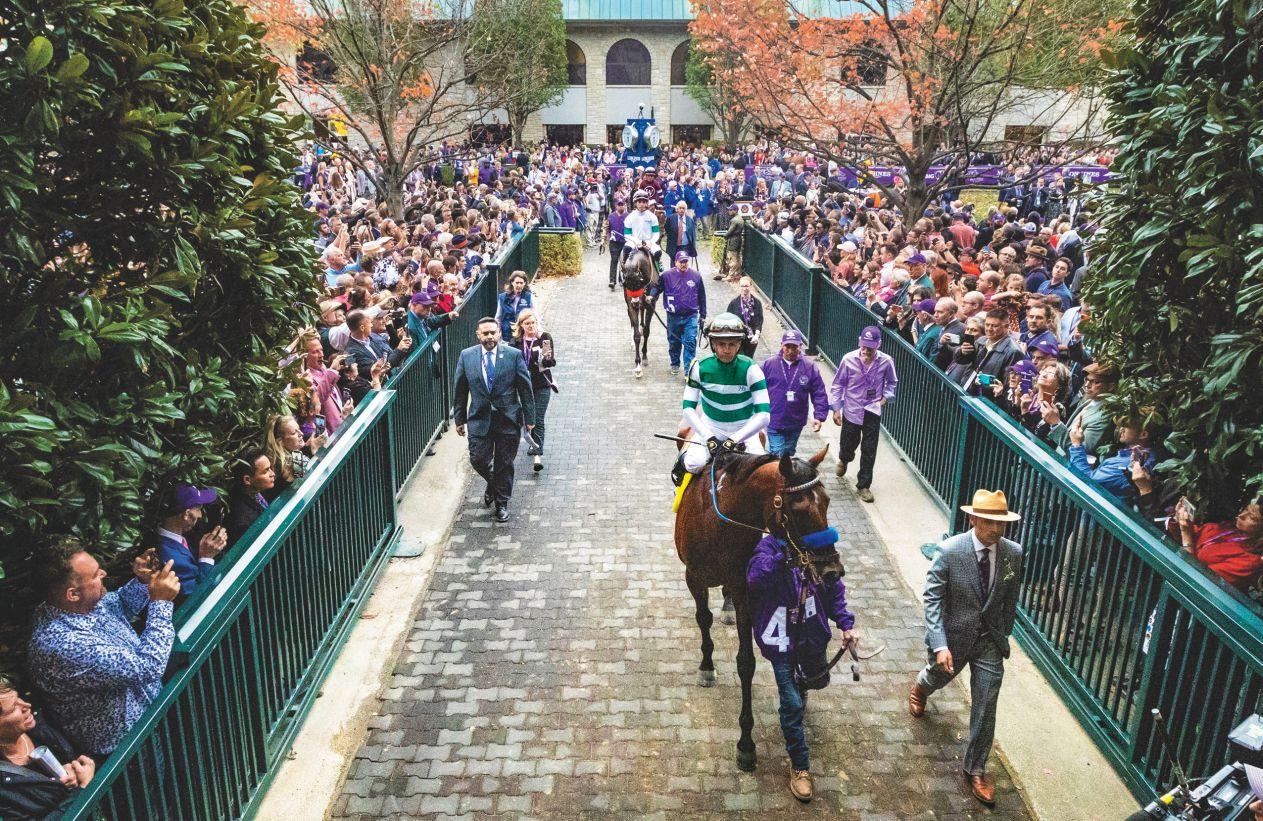
Less than an hour later, Flightline won the 1¼-mile contest with stunning ease, toying with his only challenger, four-time grade 1 winner Life Is Good, and accelerating to an 8-plus-length lead and an unprecedented speed fgure of 129.
It wasn’t ofcial at the time, but the extraordinary victory turned out to be his last, and the Keeneland winner’s circle was the site of Flightline’s fnal appearance as a racehorse. On Nov. 6 at about 1:30 pm, Flightline stepped of a van onto the hallowed

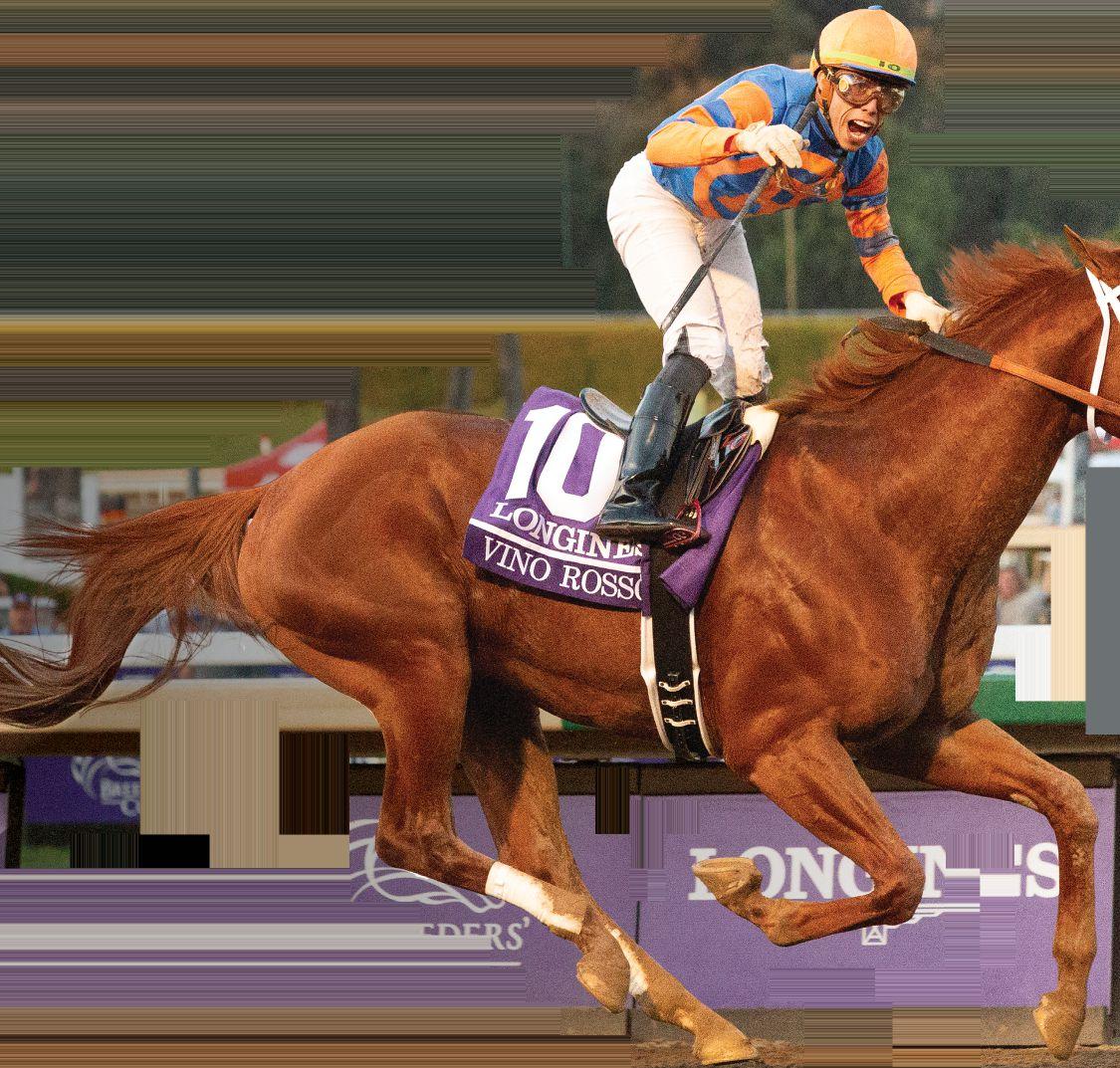
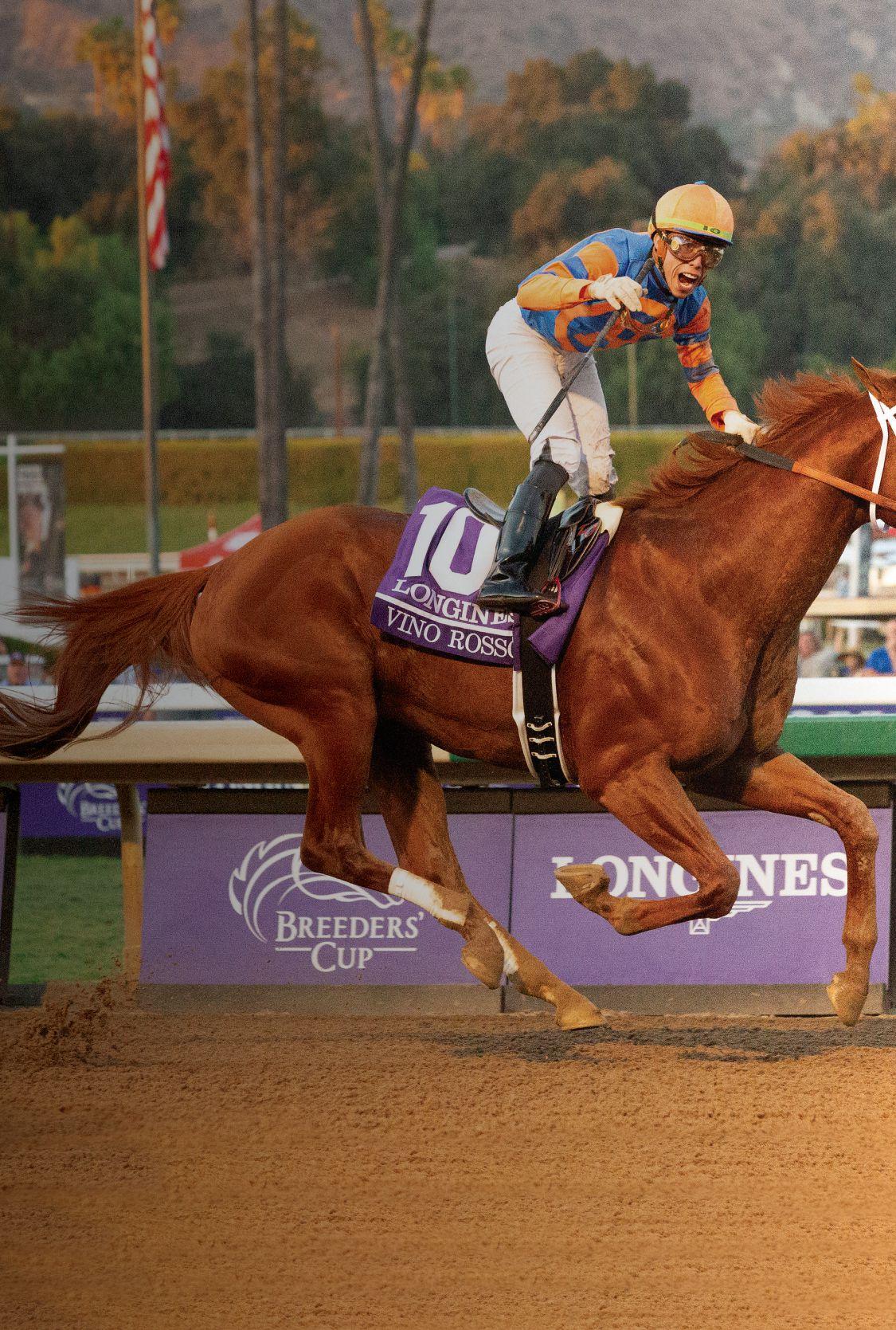
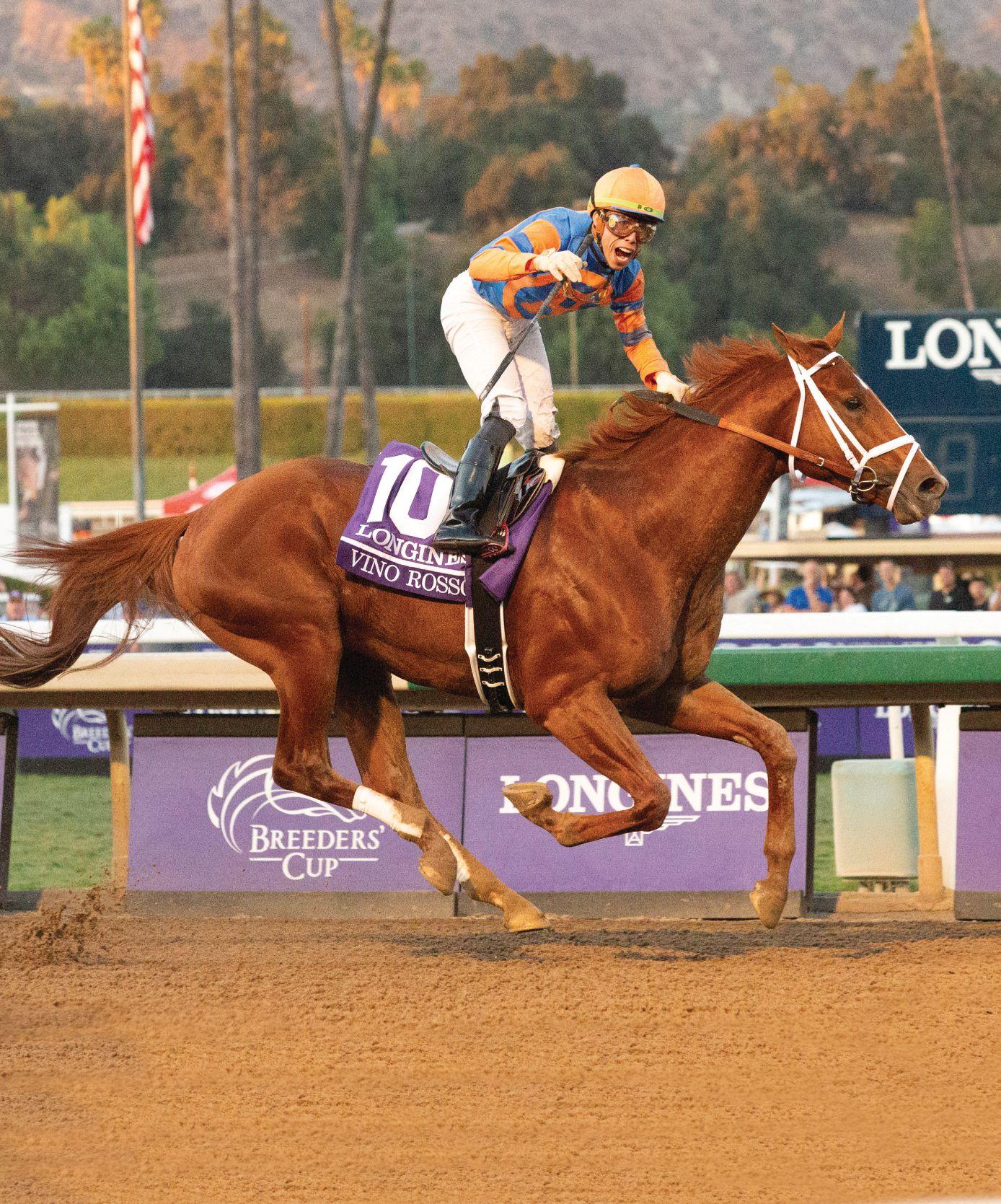
Thoro-Graph
VINO ROSSO -6 ¼
Flightline -6
Arrogate -5
Saint Liam -4 ¾
Ghostzapper -4 ½
Curlin -4

ground of William Farish’s Lane’s End Farm in Versailles, Kentucky. Stretch runs and fnish lines behind him, his life as a stallion was about to begin.
For Flightline, who, at this point, had been heralded as an “all-time great,” the “horse of a lifetime,” and yes, even “Secretariat-like,” the transformation from racehorse to stallion was handled not unlike a president-elect’s transfer of power. As soon as the decision was made to retire him, a skilled transition team of owners, trainers, handlers, and farm managers went into action to assure a smooth handof, one ft for a megastar.
Actually, Flightline’s journey to barn No. 1 at Lane’s End began weeks before, at dawn on Oct. 23, when he departed trainer John Sadler’s Santa Anita barn en route to Keeneland for the race that would cement his career. Legs securely wrapped and his signature blue shadow roll in place, Flightline hopped a KC Horse Transport van to an eastbound FedEx® fight that was, needless to say, frst class. Te plane even altered its fight plans to accommodate its special passenger. “Te fight was meant to go into Indiana,” said Sadler, “and we had it switched to Louisville because the van ride to Lexington was shorter. Obviously that was more expensive, but everybody thought it was worth it. We were fortunate to get that.”


Flightline traveled with longtime Sadler barn foreman Cesar Aguilar, but the full entourage included Sadler himself, assistant trainer-exercise rider Juan Leyva, personal farrier Wes Champagne (who counts Triple Crown winners American Pharoah and Justify among his clients), and groom Adolfo Correa. Other belongings making the cross-country journey included a pallet of his regular feed and the cautionary protective padding that hung on the walls of his California stall. (“He liked to kick the walls,” said Sadler.) Once in Louisville, another KC van met Flightline on the tarmac. Tis one, at the request of Sadler, was loaded with other horses and piloted by drivers who had accompanied Flightline on many occasions, assuring that this trip would be as run-of-the-mill as possible. “Tere wasn’t anything we didn’t do,” noted Sadler.
“Tat’s the great thing about working with Hall of Fame-level connections and a world-class stallion farm,” said Terry Finley, president and CEO of West Point Toroughbreds, one-ffh of Flightline’s racing ownership team, which included breeder Jane Lyon’s Summer Wind Equine, Hronis Racing, Siena Farm, and the racing arm of Lane’s End, Woodford Racing. “Our focus was able to be on our partners knowing Flightline would be in great hands throughout the whole process.”
To complete the passing of the 1,250-pound baton afer the Breeders’ Cup, Aguilar remained with Flightline at Lane’s End for fve days. Tough, in hindsight, he hardly seemed to need it. “It was nice to have Cesar with us for a few days,” said Lane’s End stallion manager Peter Sheehan. “He told us Flightline’s likes, dislikes, his little idiosyncrasies, but to be honest, the horse has made it easy on us. He’s just such a calm, easy horse to be around. At the track he was always expecting to train,” added Sheehan, addressing Flightline’s reputation for being high energy, “and I think he may have always been anticipating that. But since he got here he has just settled into his routine perfectly.”
Veteran groom Juan Ruelas, who lists leading sire Candy Ride among his Lane’s End charges, was chosen as Flightline’s full-time
caretaker. Te horse’s spacious stall — flched from Honor Code (not to worry, the Whitney Stakes winner got equally lush living quarters at another end of the barn) — was picked in part because of its view: a vista of the central courtyard at the end of which is a life-sized sculpture of Lane’s End foundation sire A.P. Indy. “I had heard stories that
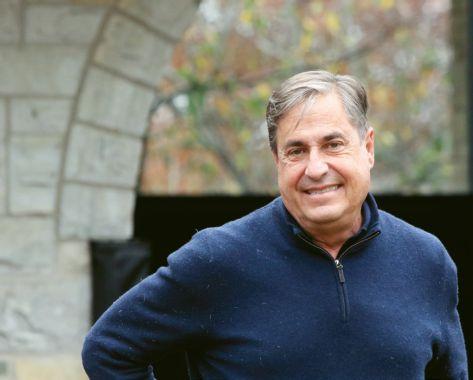
Flightline liked to look out his window and look at the stars,” said Sheehan. “Tis gives him the opportunity to just look out and take everything in.” And that protective padding he traveled with? Tat’s back, too. “His stall was padded at the track, so with an abundance of caution we went ahead [and put it up],” said Sheehan. “It’s for consistency, though he hasn’t





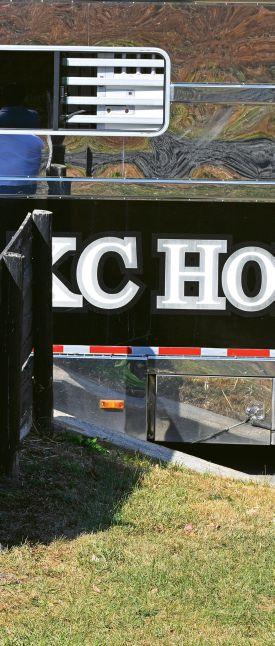
given us any indication he needs it.”
While Flightline has been given the superstar treatment, in the weeks following his arrival at Lane’s End he proved he’s no diva. Shortly afer the turn of the new year, the now 5-year-old was obligingly in step with the 20 other stallions living at Lane’s End. Turned out at night, groomed regularly, and as you might expect, paraded several times daily for potential breeders as well as giddy fans. On one breezy Tuesday afernoon, a Horse Country Farm Tour passed through and Flightline was the star attraction. Exiting his stall like a 16.2-hand supermodel on a catwalk, he cast a kind eye on the crowd and stood patiently for photos. “He doesn’t waste energy fretting about stuf,” said Sheehan. “You ask him to do something and he does it. He’s just a true professional.”
Clockwise from left, Flightline’s nameplate gleams with newness. Daily grooming is part of his routine. Lane’s End crew deliver bales of hay to the stallion barn. Flightline’s halter hangs in a quartet that includes Candy Ride.



Flightline didn’t have his frst start until well into his 3-year-old year because an unfortunate (and now famous) run-in with a door latch as a yearling had lef him with a gruesome hind-end laceration that required a three-month recovery, thus delaying his debut. But from the moment he fnally entered Sadler’s Santa Anita barn, it was clear something big was in the making. “He never hid his talent; he stood out from Day One,” said Sadler. “Tere are a lot of great horses, but when he went on the track you could see how much he wanted to do it. And he tended to do it before you even asked him.”
While Flightline’s career is one for the record books, his past
































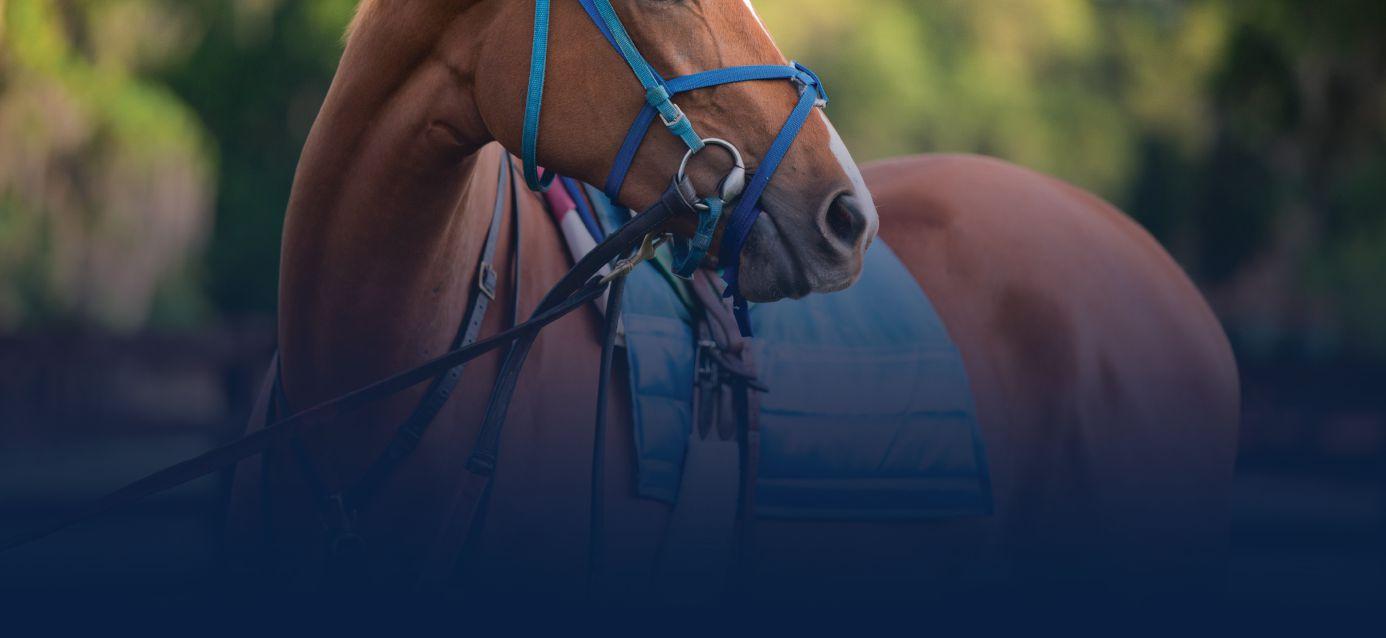
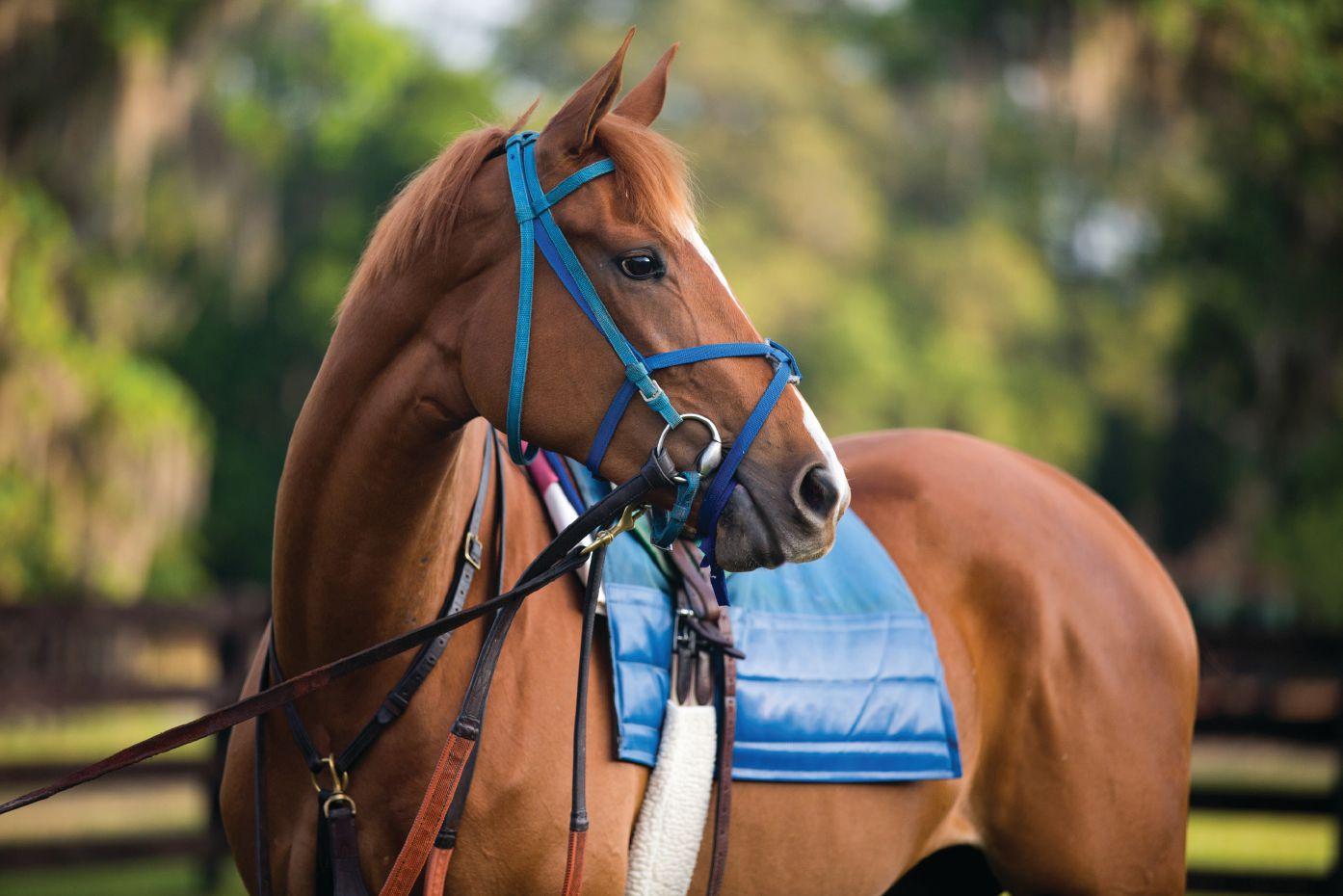
performance chart seems, well, pretty meager: only six starts including his maiden race and his victory in the Breeders’ Cup Classic 19 months later. But his was, perhaps, a classic case of less is more. Each time he broke from a gate, his execution was increasingly powerful and impressive.
Afer winning his debut in April 2021 in a maiden special weight at Santa Anita, Flightline moved to the Del Mar Toroughbred Club a few months later and smashed the allowance feld there by 12¾ lengths for a fnal time that was only .45 seconds of the track record set in 1973. His stakes bow came next, in the grade 1 Malibu Stakes at his home track. With regular jockey Flavien Prat in the irons, Flightline had what appeared to be his easiest victory yet, coasting to an 11½-length lead, blowing away all rivals, including three-time winner Baby Yoda.
Laid up again due to a strained hock, Flightline didn’t race for
six months, when he traveled to the East Coast for the frst time, for the grade 1 $1 million Metropolitan Handicap at Belmont Park. His 4-year-old debut in what is considered a stallion-making race presented a steep step-up in company but it proved no obstacle. Despite a worrisome frst half mile, Flightline again made mincemeat of his opponents, capturing the lead and jogging to the fnish by six.

In September 2022, Flightline was back at Del Mar for a start in the $1 million Pacifc Classic, a race that ofered new challenges: It would be his frst time racing at a distance of more than a mile, and the relatively inexperienced horse would now face not one or two but fve graded stakes winners, including Dubai World Cup winner Country Grammer. Looking back now, it seems frivolous to have


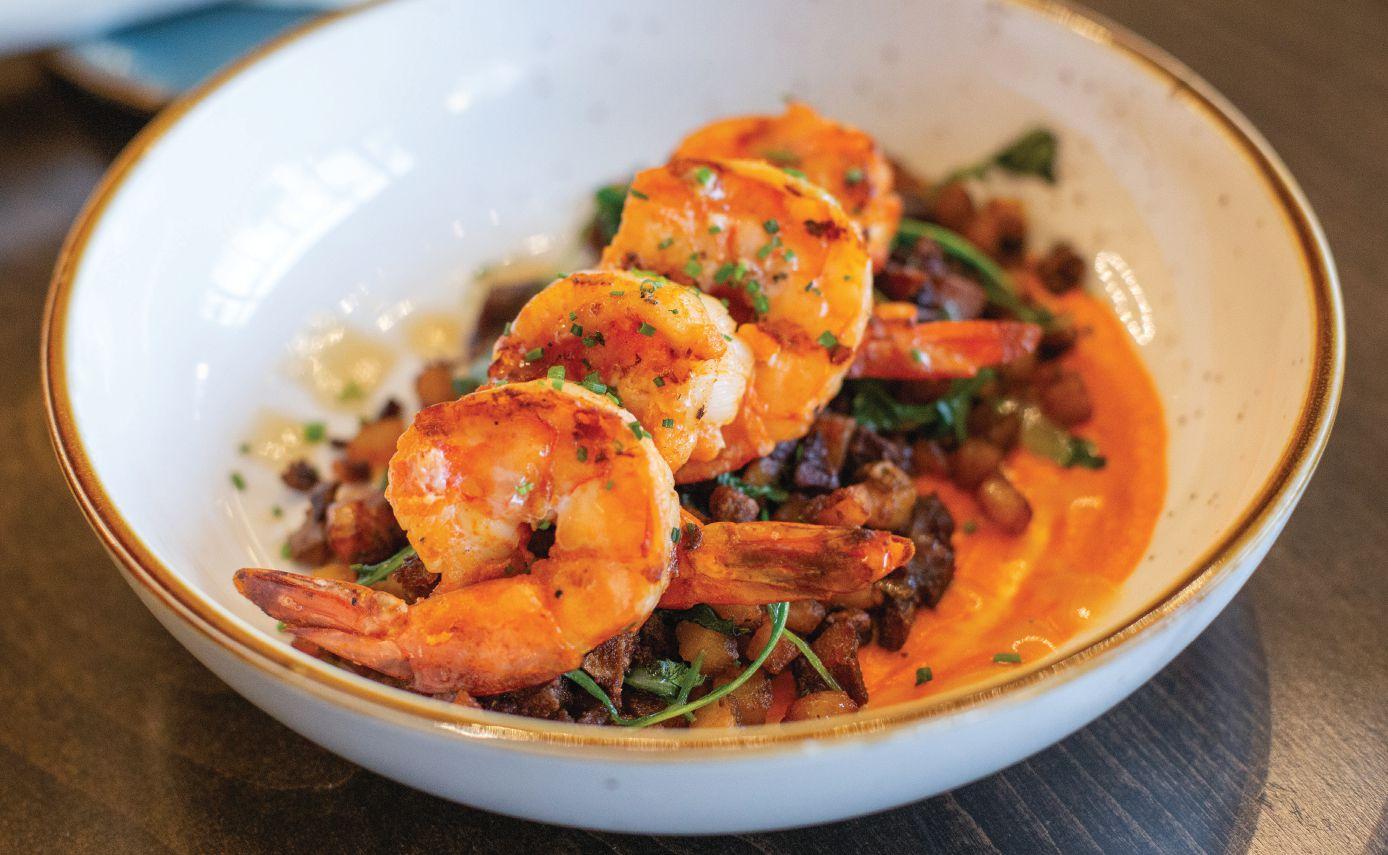


fretted about such details. From the break, Flightline took a sort of otherworldly control of the race and sprinted to what race caller Trevor Denman called an “embarrassing 20-length lead” with seemingly little efort.
“Te frst thought that came to my mind as he went around the far turn was Chic Anderson’s famous call of the 1973 Belmont, when he said, ‘Secretariat is widening. He is moving like a tremendous machine,’ ” said Jay Privman, Daily Racing Form’s recently retired national correspondent and a 2023 Special Eclipse Award for Career Excellence honoree. “It was a similar move with Flightline, certainly not with a Triple Crown at stake but as dazzling and breathtaking as you could imagine.”
In the Breeders’ Cup Classic, Flightline proved his natural brilliance once again with a convincing 8¼-length margin of victory — the largest in the history of the race. (It even outshone the 6½-length romp of Grand Slam Winner American Pharoah in 2015, also at Keeneland.) He had won all six of his starts by a combined 71 lengths or about the span of two football felds. Closing his career on Nov. 5 with a perfect record and earnings of over $4.5 million, Flightline began collecting accolades. In January, he topped the World’s Best Racehorse Rankings, and a week later he earned double Eclipse Awards: champion older male and the highly coveted Horse of the Year. He was such a shoo-in for the honor that at the Jan. 26 awards ceremony presenter Tom Rooney, president and CEO of the NTRA, quipped: “I’m not even going to open the envelope.”



Had there been any doubters lef, afer the Breeders’ Cup none remained. Flightline’s ticket into the pantheon of horse racing’s legends seemed frmly punched. Still, some questioned whether the lightly raced colt had earned the heady comparisons to Secretariat and others like him. Despite his slim resume, Privman thinks Flightline will have, and deserves, an enduring legacy. “I think we just have to appreciate him for what he was in the context of what modern-day racing has become, where horses have far fewer starts than 30-plus years ago,” Privman noted. “For me, Flightline was the best horse I’ve seen since Spectacular Bid, but Bid ran 30 times, winning 26, was a champion at 2, 3, and 4. It’s

impossible to compare a horse with that resume to a horse who ran six times. But in the context of the times, I think Flightline will hold up as a truly great horse of the 2020s, even of the frst half of this century.”


About 10 weeks into retirement, Flightline’s new life is pretty, well, humdrum, albeit sweet. Tanks to his supreme intelligence and a team full of pros, his transition has been a peaceful, easy one. “One of the things [Lane’s End general manager] Bill Farish always tries to do, and we preach it, is ‘measure twice cut once,’ ” said David Ingordo, who heads up the Lane’s End bloodstock team and spearheaded the purchase of Flightline as a yearling. “If you do something right the frst time, it should be better in the long run. We’ve done this [kind of transition] multiple times so it wasn’t atypical,” Ingordo added, “but our goal was to do this right. He’s a
horse and needs to be treated like a horse, but we do understand he’s exceptional in a lot of ways, including in his value.” Flightline’s price tag rose sizably when Keeneland kicked of its November 2022 breeding stock sale with an auction of a fractional 2.5% ownership stake in him. When the hammer fell at $4.6 million to an anonymous bidder — via agent Freddy Seitz — Flightline’s worth reportedly jumped to a staggering $184 million.
Te industry’s top breeders are now anxiously awaiting Flightline as the sire of the next generation. Standing for a stud fee of $200,000, Flightline will be bred to a full book of 150 mares.

“I’ve been very fortunate in my career to be around some very high-profle, frst-season sires,” said Ingordo, “and this one — the reception, the demand, and the anticipation — has been like nothing I’ve ever seen. He is a generational talent and one of the most brilliant horses to put on a racing bridle, and breeders are looking for that brilliance and hoping he imparts it on his ofspring.” KM

























































































Elegantly intertwining design, history and function, Poplar Hall Farm, built in 1822, ofers more than meets the eye! This one-of-a-kind home boasts 14ft ceilings throughout the frst floor, custom crown molding, original gleaming hardwood, stunning freplaces and gorgeous built-ins.The artfully designed professional kitchen has been completely renovated to please any at-home chef featuring a 6-burner gas range, Sub-Zero, double oven, large island, granite counters and scenic views of the gently rolling hills. First floor has a spacious dining room, formal living room, cozy ofce/library with built-in shelves, private bedroom, remodeled bath and so much entertaining space! Upstairs you’ll fnd astonishing space with large bedrooms, two renovated baths, a primary en-suite and a sophisticated walk-in closet room! The basement has nearly 2500 sqft of usable space with a stone foundation and a hearty stone freplace. The synergy between old and new is extraordinary.


For more than 40 years, known for Racing memorabilia, Kentucky antiques, Equine










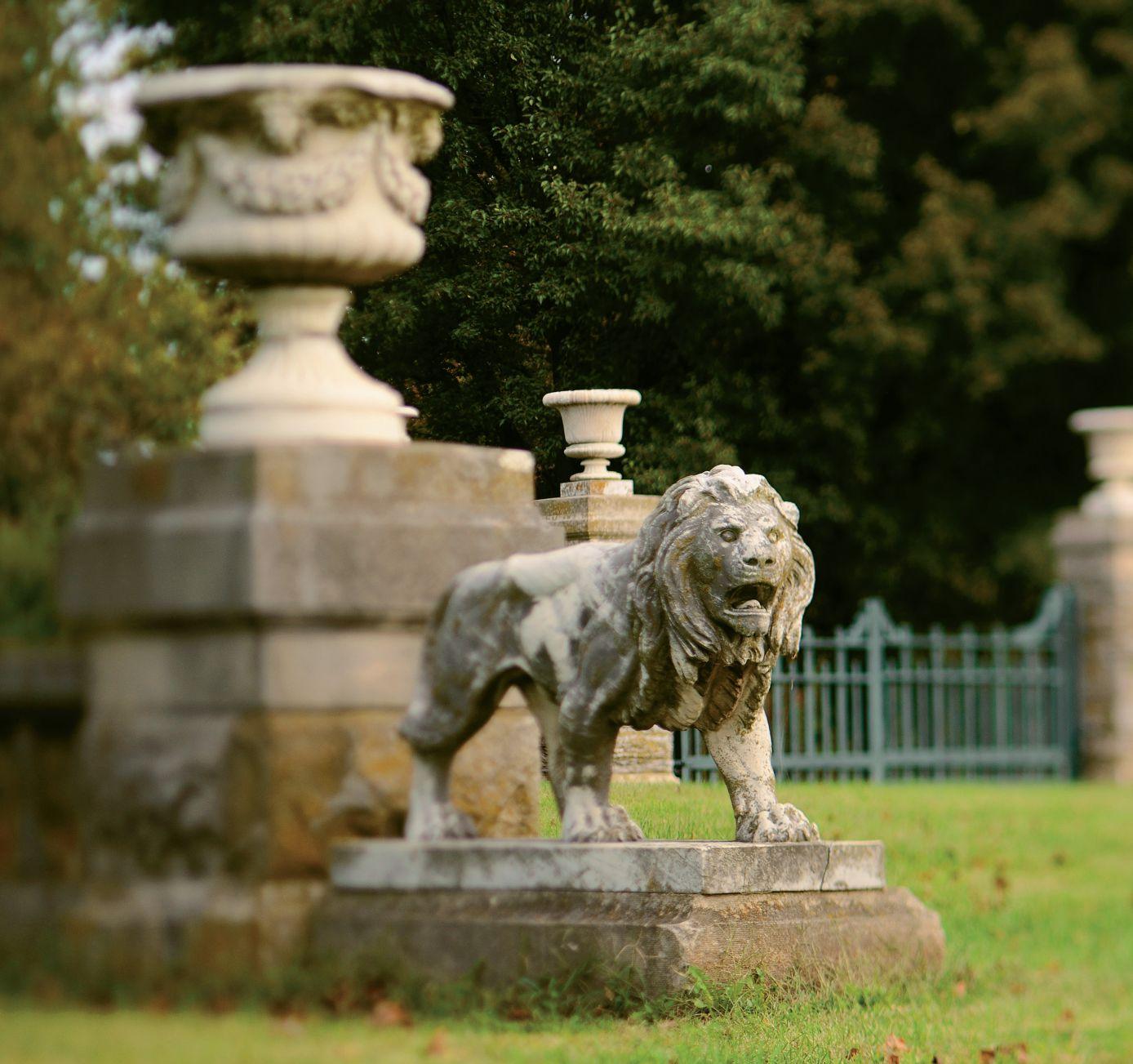
This three-part series examines how JAMES BEN ALI HAGGIN, inducted into the Hall of Fame in 2022, created a farm whose acreage produced generations of important horses through a succession of owners to this day.
 By Edward L. Bowen
By Edward L. Bowen
 L. Bowen
L. Bowen
JAMES BEN ALI HAGGIN is identifed as a “transformational breeder” of racehorses on the plaque commemorating his induction as a Pillar of the Turf in the National Museum of Racing Hall of Fame. It is hardly an overstatement, for much of Haggin’s career supported Shakespeare’s observation that “Tere is a tide in the afairs of man, which, taken at the food, leads on to fortune.”

Born of modest means in Kentucky, Haggin worked through the educational phase of being a “self-made man” before being drawn to the West and its kaleidoscope of opportunities loosely tied to the discovery of gold. Fortunes made in that milieu included vast success by some individuals providing supplies and services to the intrepid prospectors drawn by the giddy images of fabulous wealth. In Haggin’s case, the idea of providing legal services soon was merged with mining opportunities, and his individual choice of what to do with the wealth that followed soon labeled him as the largest

breeder of Toroughbreds in the world.
Tis status led him back to Kentucky, where he took the existing core of Elmendorf Farm and multiplied its acreage many fold. Te surrounding properties he purchased fourished over the years for various subsequent owners until Paris Pike near Lexington became something of a Park Avenue of the horse world. As major Eastern breeders such as the Whitneys and Wideners were seduced by the appeals of raising horses on bluegrass and limestone soil, those properties proved rich veins in their own version of mining. Today, more than


a century afer Haggin’s days, that status remains under names including Spendthrif Farm, Gainesway Farm, and Normandy Farm. Yes, indeed, “transformational” was an apt choice of wording.

In 2022, looking ahead to Haggin’s Pillars of the Turf induction, Brien Bouyea was preparing an article for the Hall of Fame commemorative publication. As the Hall of Fame’s communications director as well as a veteran author and historian, Bouyea is well aware of the tradition of Turf writers’ tendency to employ roundhouse descriptions of Haggin’s breeding operation. Te
late Kent Hollingsworth, longtime editor of Te Blood-Horse, for example, remarked in “Te Great Ones” that at one phase America’s largest Toroughbred breeder was buying and selling “carloads of yearlings” while also keeping enough homebreds to distribute 100 yearlings among several trainers.
Bouyea found a New York Times article that gave some specifcs, to wit, that in 1904 “when about 7,000 broodmares” were ofcially registered with Te Jockey Club, “1,500 of the 7,000 were owned by James B. Haggin.” Moreover, Haggin also owned some “60 stallions, 500 yearlings, and 500
other horses in training at various tracks.” Tus did that New York Times article fesh out its earlier estimate that Haggin “owned three times as many Toroughbreds as any [other] man in the world.” By that time, late in Haggin’s career, about 1,000 of his horses had been quartered at his grand and elegant Elmendorf Farm. Tat enclave covered some 8,700 acres during part of the years Haggin owned it. For real open spaces, however, the breeder also had at hand 44,000 acres at his Rancho del Paso in California.

Te name James Ben Ali Haggin suggested a rather exotic personal pedigree somewhat at odds with the fact he was born in Harrodsburg, Kentucky. Te birth year was 1822. Haggin graduated from Centre College in the nearby town of Danville and was apparently headed toward a law career. Ten the lure of gold raised a detour fag, and Haggin sought clientele in California. Soon, however, Haggin became afliated with a treasure hunter, Lloyd Tevis, and the relationship moved toward partnership rather than adviser and client. In time, they acquired Rancho del Paso near Sacramento, the property covering 44,000 acres. Also, Haggin stepped in to salvage the fnances of U.S. Sen. George Randolph Hearst, whose appreciation and loyalty added a third associate to the Haggin-Tevis combine. Te threesome developed what was apparently the largest mining partnership the era produced. Te locations of their holdings spread through California, Nevada, Montana, Utah, and South Dakota.
For all the glitter of gold, copper was the bedrock of their fortune. As reviewed in “Te Great Ones,” one of the projects was backing Marcus Daly’s idea to develop a copper mine near Butte, Montana. Tis led to the Anaconda Copper Mine and other sites. Bouyea recalled the partners were thought to have “controlled 80 per cent of the world’s copper supply at one time.”
Haggin also ventured on his own and invested in another mining operation in Peru. A story ofen repeated illustrates the sheer depth of investment required in activating a venturesome vision in that time and in that business: Haggin had to spend $2 million just to build a railroad to ship copper from his Cerro de Pasco mine in Peru!
In due time, Haggin’s success brought public understanding of an exotic ethnic heritage his name suggested. Te 1914 “Bloodstock Breeders’ Review” looked back for the purpose of compiling his obituary. As a youth, it pointed out, he had been “something of a puzzle to his contemporaries.” An Eastern strain in his pedigree was suggested by “his intensely dark hair and eyes,” and his complexion had led to all sorts of conjectures “regarding his ancestry. When he gave the name Ben Ali to his son, he was at once pronounced to be
a Turk.” Te publication provided additional ethnic details, to wit, that James Ben Ali Haggin indeed had Turkish heritage but also had “English, Irish, and Greek blood fowing in his veins.”
His father’s family had migrated from Ireland to Virginia in 1775, and the father married a daughter of Ibrahim Ben Ali. Te latter was a Turkish Army ofcer who practiced medicine afer immigrating to Baltimore, Maryland. Afer that daughter, Adeline, married into the Haggin family of Harrodsburg, Kentucky, she and her husband had James, along with seven other children.

“Te Bloodstock Breeders’ Review” (BBR) for much of the 20th century was a revered, hardbound volume. It was published by British Bloodstock Agency, which grew to be a giant in the international breeding and sales arenas. In 1914, the BBR was in its third year of existence and was a quarterly but was issued at the end of the year in one volume. By the time of Haggin’s obituary article, it was also a bit of history that he had named a racehorse Ben Ali, in honor of the son and thereby raced the 1886 Kentucky Derby winner.

Originally, Rancho del Paso was largely devoted to pasturing sheep, but afer a friend advised Tevis to raise trotting horses, the use of the property was expanded. Tis led to the acquisition of some Toroughbreds, and the Rancho del Paso team aimed high. Te BBR reported Tevis failed in his attempt to purchase the prominent stallion Norfolk from Californian Teodore Winters. Later, however, Haggin bought some mares from Winters when the latter moved from California to Nevada.
Bouyea thinks Haggin established a Toroughbred operation in 1873, and by the early 1880s “the ranch was known as the world’s






largest Toroughbred nursery.” Haggin began running horses with success at the Bay District track in San Francisco, but soon he also reached to the East for fashionable stock and racing action. In that decade of the 1880s, he purchased and raced (in the East) Salvator and Firenze, both of whom eventually were voted into the Hall of Fame. (Te National Museum of Racing’s Hall of Fame was established in the 1950s in Saratoga Springs, New York.)

Also in the 1880s, Haggin, as owner, won the 1885 Belmont Stakes with Tyrant, as well as the 1886 Kentucky Derby with Ben Ali. Te victory in that Kentucky Derby brought about a strange episode, in which one of the masters of the Turf was at odds with the managers of that growing gem of American racing. As recounted by L.K. Shropshire, managing editor of Te Blood-Horse in 1965, the betting side of Haggin got the better of whatever degree of sporting owner resided in his makeup. Te bombastic ex-Kentuckian from the West arrived at Churchill Downs with many friends and plans for heaving action with the bookmakers, who at that time provided legal and open betting opportunities at the races.


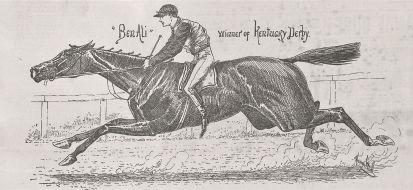
Trouble was that, at about noon of Derby Day itself, Haggin learned “that bookmakers had been barred at the track because of their refusal to pay an increased fee set by Churchill Downs management.” He openly declared that if the situation were not rectifed within 24 hours, he would ship out all the horses he had sent to Churchill Downs, where he had intended to campaign throughout the spring meeting. Shropshire recounted that one of the track ofcials responded to Haggin’s declaration with something along the lines of “who does he think he is?” Te track attitude was relayed to Haggin that if he did not like the situation, he could just go ahead and ship out … “and to hell with him, anyway.”
In the history of the Derby, one doubts other winning owners matched Haggin’s drama on the night of his triumph. He hastily called on his trainer to arrange a speedy departure, and by the next day the Haggin stable was on its way to New York. Although this was an event refecting the dudgeon of one man, the withdrawal was looked upon as a boycott of the rising Kentucky Derby by the powerful Eastern owners of which Haggin was a recognized force.
“Te Derby did not die, but it was defnitely anemic,” wrote Shropshire, who illustrated the situation via mention of frequent three- and four-horse Derby felds over nearly a quarter-century to follow. Moreover, the race almost never attracted contenders from the prestigious Eastern stables during that period.

























(Te positive upshot was that Churchill Downs ownership and management were replaced, and the master promoter Col. Matt Winn wound up in charge. By the time he was writing the book “Down the Stretch” in 1944, Winn could look back on those tumultuous years as a part of his opportunity to lead the Kentucky Derby. Indeed, by then he had been instrumental in guiding the race to a state of theretofore unimagined prestige and afection within the hearts of American Toroughbred owners of all stripes and regional identities.)
A wrinkle of the day was the owner of Elmendorf Farm in Kentucky was ofering the farm at auction, but the auction would take place in New York. Te Easton Company announced the farm owner, C.J. Enright, had decided to disperse his stock and the farm. Easton Company set the date as Oct. 23 and announced the auction would take place at the Morris Park racetrack in Westchester, New York. Tat time and place already had been designated for the auction of the renowned Brookdale Stud of New Jersey. Tat particular dispersal would be in its third day by Oct. 23.
Te Toroughbred Record of 1897 commented, “Here in Kentucky it is scarcely necessary to write in detail of Elmendorf and its phenomenal achievements as a nursery of Toroughbreds” during three distinct eras of its ownership. Further, the farm was described as involving “5441⁄2 acres of the choicest bluegrass and wooded land … equipped in every way and kept in up-to-date order. It will be absolutely sold on the day mentioned, without reserve of any kind, thus giving everyone a fair feld to purchase.”
In the chatty Record section, usually attributed to “Editor, Willis Field,” it was conjectured that “Mr. Haggin concluded that California is not the best place in the world in which to raise Toroughbreds.” Following the auction, the Record published a report that Haggin has successfully bid on the farm and all its structures and “secured a bargain as all he paid was $100 an acre.” (On a personal note, 1897 also was the year the widower Haggin, then 76, wed the 28-year-old Margaret [Pearl] Voorhies.)

Soon, however, Haggin had reduced his racing stable to concentrate on breeding to sell, and he imported a number of stallions from Australia and England. One of the Australians was Sir Modred, who became the leading sire of 1894. Bouyea quoted records from 1892 that indicated horses bred by Haggin won 500 races that year. (To place this into context, the “American Racing Manual” began listing leaders in various statistics in 1918, and it was not until 1992 that any breeder was represented by as many as 500 wins. John Franks was the leading breeder of that year with 584 and again in 1993 with 541.)


As noted in “Te Great Ones,” Haggin’s vast breeding operation had “put California-breds on the map.” A further major step in Haggin’s career, and in the history of American Toroughbred breeding and racing, lengthened his reach back to Kentucky. Tis was his purchase of Elmendorf Farm in 1897.

Elmendorf already had a distinguished history before Haggin added his own era in a sequence that was to be followed by success by various other owners through the 20th century and into the 21st. In an article in Te Blood-Horse in 1984, Keith Chamblin reviewed that the core of the property had been purchased in 1871 when “Milton H. Sanford decided to move his breeding stock from New Jersey to Lexington. Sanford purchased 544 acres from William T. Hughes at the corners of Paris and Iron Works pikes.” Sanford gave the name Preakness Stud to the property in honor of the horse that had helped launch modern Maryland racing by winning the Dinner Party Stakes in 1870. Te Dinner Party was a subscription race run on the day Pimlico opened, and Preakness was later honored by the naming of a race that eventually became an American Triple Crown event.
In 1881, Chamblin continued, “the 544 acres as well as 50 horses were bought for $150,000 by Dan Swigert.” Swigert changed the name of Preakness Stud to Elmendorf, the maiden name of his wife’s grandmother. Swigert had been the manager of R.A. Alexander’s Woodburn Stud, Kentucky’s prototype great commercial breeding operation. Afer Alexander’s death, Swigert initially stayed to manage Woodburn for Alexander’s brother but lef afer a couple of years to establish his


own Stockwood Farm on adjacent acreage.



Te distinctions of Dan Swigert included breeding 10 prominent horses, “fve of them of the highest class” as hailed in “Te Great Ones.” Te fve included the great horse Hindoo as well as the aforementioned Ben Ali and Firenze, both raced by James Ben Ali Haggin. In 1891, Swigert sold Elmendorf to Enright, the owner from whom Haggin bought the farm at auction. Enright bred the champion and major sire Hamburg on the property.
Te Elmendorf chapter in the hands of Haggin included the building of a grand home plus acquisition of many quality mares from which he bred a tide of major winners. Haggin also greatly expanded Elmendorf through the addition of some 8,000 more acres, properties that later bore other names for other owners.




Te home Haggin built on the farm was named Green Hills. Te elegant structure was described as costing $300,000 in various publications of Haggin’s era. A later owner of the farm, Joseph E. Widener, who lived primarily in the East, had the home razed in 1929 to save himself the detail of paying taxes on the unoccupied mansion. Widener did leave standing the handsome marble pillars of the home’s entrance. Tose pillars survive also as a symbol and landmark in the Bluegrass country.
As extolled in the Hall of Fame publication of 2022, “Haggin’s breeding exploits impacted the sport at the highest levels. He bred six horses that won races in what later would become known as the Triple Crown series” — Preakness winners Old England, Cairngorm, and Rhine Maiden; Belmont Stakes winners Comanche and (champion) Africander; and Kentucky Derby winner Stone Street. (Stone Street, ironically, won late in that era in which Haggin’s own haughtiness had damaged the Derby.) Other major victors included Suburban Handicap winner Montana, Travers Stakes winner Sir John, Jerome Handicap winner Tournament, Alabama Stakes winner Tradition, and also Sir Walter (earner of more than $120,000 and winner of 36 races).
Although breeding to sell had come to take pride of place, Haggin also had some key scores with horses in his own colors. Tese included the champion Waterboy and the historic Travers Stakes winner Ada Nay. Tat last-named winner, in 1903, was a flly who had been bred in the name of Rancho del Paso.
Te breeder renowned as having had the largest Toroughbred operation and being one of the richest Americans eventually bumped up against a stunning development in the sport of racing. Tat sport itself had bumped up against a wave of moral indignation over the fact that gambling was part of the appeal of horse racing. “At the height of puritan reaction,” wrote Hollingsworth in “Te Great Ones,” “racing went dark in New York.” And New York was the center of the best racing. Without it, the circuits that remained were collectively and individually unable to maintain the value of


Toroughbreds at anything close to the levels breeders, owners, buyers, and sellers had been operating upon.
Haggin had begun cutting back as this scenario began to develop. Bouyea wrote that in 1905, “he sold 20 stallions and more than 500 mares, yearlings, and 2-year-old fllies at Rancho del Paso.” Tis was in contrast to his practice of sending large consignments to sell in the East. Bouyea continued that “in the next few years, he sold 33 more stallions and 483 mares from Elmendorf to interests throughout the world.” He had reached out to other countries in gathering his vast holdings in bloodstock, and now he sent horses to be sold in England, Argentina, and Germany, as well as in America.
As set out in “Te Jockey Club’s Illustrated History of Toroughbred Racing in America” (Little, Brown & Co., 2004) by 1908, “only 25 tracks in the United States and six in Canada were recognized … Chicago racing was curtailed afer 1904. Te most telling blow came in 1908, when New York Governor Charles Evans Hughes pushed through the Hart-Agnew Bill, making gambling illegal. Court action forestalled the shutdown for several years, but fnally, in 1911 and 1912, there was no racing on the nation’s primary circuit.” Some owners of top stables, unwilling to move to lesser circuits, sent horses to campaign in England, but the underpinning of American racing and breeding was shattered.
When amended New York laws allowed racing’s return in 1913, Haggin had been dispersing stock at a loss, and as it turned out, had only a year to live. During his later years he also had developed a strong dairy herd and fulflled the desire to produce milk of the highest quality and high volume. Tat operation, too, had to be dispersed.
Elmendorf was far from the only casualty among the top Kentucky farms. In “Te Kentucky Toroughbred” (University Press of Kentucky, 2009), author Hollingsworth lamented that “Kentucky’s most prominent commercial breeders also dispersed their studs,” and he identifed them as Col. Milton Young’s McGrathiana Stud and Col. E.F. Clay’s and Col. Catesby Woodford’s Runnymede Stud. “Mares worth $20,000 before racing was outlawed in New York brought $300,” he lamented.
Afer Haggin’s death at 91 in Newport, Rhode Island, another prominent Kentucky breeder, John E. Madden — encouraged then by the return of New York racing — purchased 2,500 acres of Elmendorf from the Haggin estate. Tis included the original 544 acres purchased by Haggin. Various publications estimated Haggin’s estate at fgures ranging from $50 million to $100 million, according to the BBR. Te actual value when the estate was fled for probate, that publication reported, however, was $15 million.

Almost exactly a century afer Haggin’s death, the old sportsman’s career was the subject of a thesis at the University of Kentucky. Te 2012 scholarly dissertation was compiled by Amber Fogle Sergent and accepted by her adviser, Ronald D. Eller, Ph.D., and by the director of graduate studies, David Hamilton, Ph.D. Te title is “Te Pastime of Millions—James B. Haggin’s Elmendorf Farm and the Commercialization of Pedigree Animal Breeding, 1897-1920.”
Sergent took the tack that “Haggin changed the style and substance of modern pedigree breeding in America, and these changes signifcantly afected dramatic costs and consequences for Kentucky and beyond.” (Te “beyond” presumably accounts for the title reaching out over several years beyond Haggin’s death.) Further, she described the marble columns standing alone “in a lush Bluegrass feld” as representing “one of the most spectacular failures in modern agricultural history.”
In 2022, Haggin’s career was viewed through the context of the Pillars of the Turf selection committee of the National Museum of Racing. Notwithstanding the dragging down of Haggin’s enterprise by the interruption of New York racing, the committee found a career worthy of high acclaim. Te Pillars of the Turf category was added to the Hall of Fame in 2013. Haggin is among 41 individuals who have been so honored in an exercise involving both the distant past and contemporary leadership.

In using the phrase “transformational breeder,” the Hall of Fame plaque, of course, emphasized the positive connotation of that phrase, inasmuch as he produced a litany of important successes over many years. KM








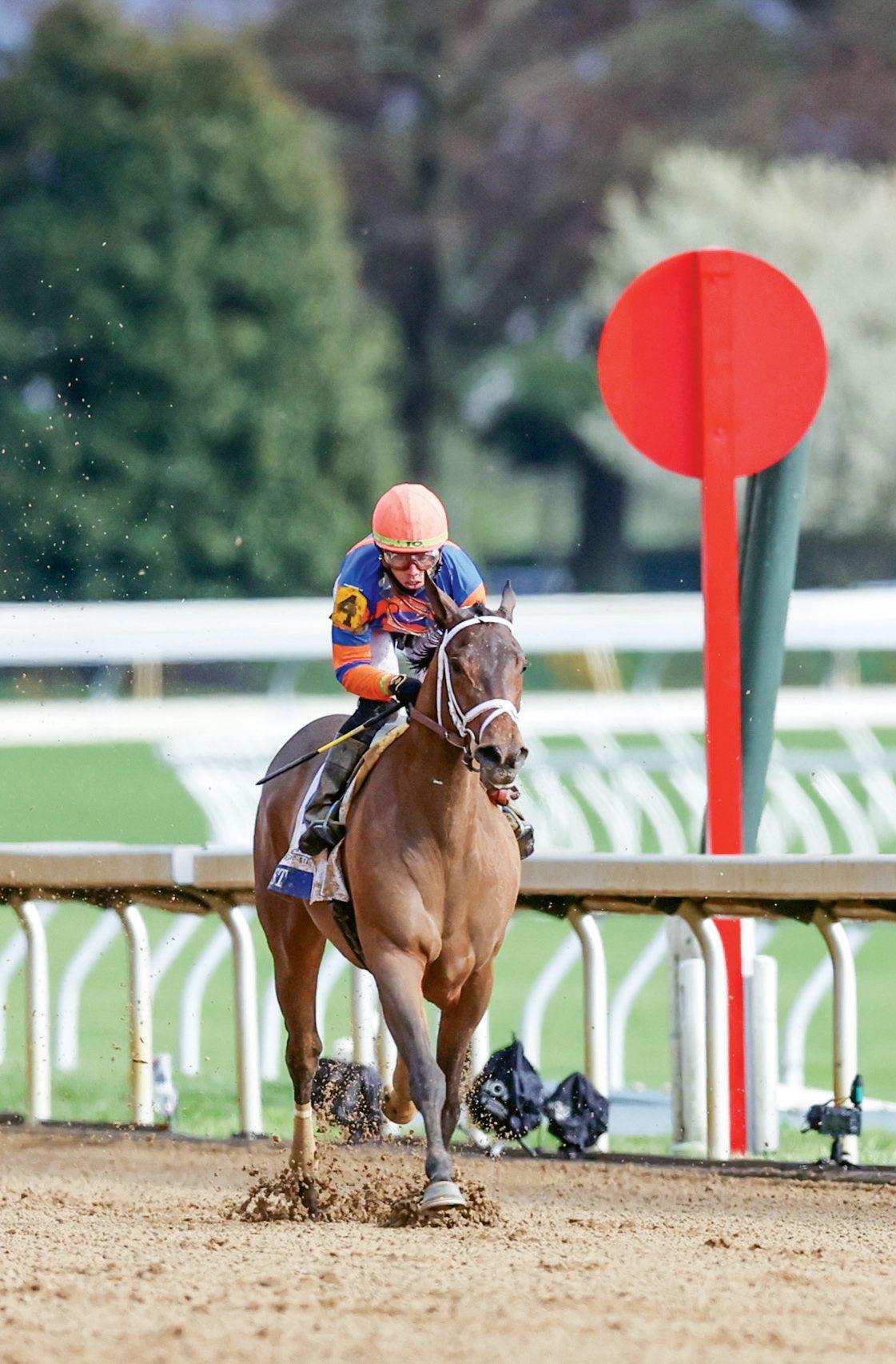 By Liane Crossley
Liane
By Liane Crossley
Liane
When Nest was crowned champion 3-year-old flly of 2022, she became the second consecutive Ashland Stakes winner to earn the Eclipse Award in the category. Malathaat held the distinction the previous season and added champion older dirt female to her credentials for 2022.

WTe recognitions further enhanced the reputation of the Ashland as a spotlight for champion-caliber fllies. Te race had almost instantly established its lasting prestige at Keeneland’s inaugural meet in October 1936. Te allure is heightened by a multitude of winners that have evolved into breed-shaping broodmares, whose names appear in the lineages of modern generations of racing’s best-known names.
Sponsored by Central Bank since 2010, the Ashland is named for the home and breeding farm of statesman Henry Clay, located on the fringe of downtown Lexington and open year-round to visitors. Te initial two runnings — at the fall meets of 1936 and 1937 — were for fllies and mares, 3 years old and older. Not held in 1938 and 1939, the race returned in 1940 as an event limited to 3-year-old fllies. Te Ashland was hosted by Churchill Downs from 1943-45 when wartime restrictions halted racing at Keene-
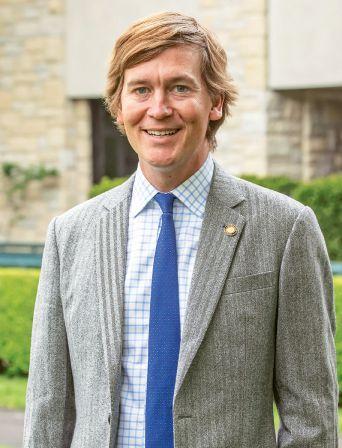









 BLOODHORSE LIBRARY
Myrtlewood won the inaugural runnin of the Ashland in 1936 by 12 lengths.
Trainer Todd Pletcher counts Malathaat and Nest, below, as his Ashland Stakes winners. Malathaat went on to win the Kentucky Oaks in 2021 and Nest fnished second last year
CHAD B.
HARMON
MATHEA KELLEY
BLOODHORSE LIBRARY
Myrtlewood won the inaugural runnin of the Ashland in 1936 by 12 lengths.
Trainer Todd Pletcher counts Malathaat and Nest, below, as his Ashland Stakes winners. Malathaat went on to win the Kentucky Oaks in 2021 and Nest fnished second last year
CHAD B.
HARMON
MATHEA KELLEY
In the decades that followed, the Ashland continued to showcase remarkable fllies, the latest being newly minted champions Nest and Malathaat from Hall of Famer Todd Pletcher’s barn.
“Te Ashland has been a great race for us the last few years with Malathaat and Nest going on to have very successful campaigns,” he said. “It’s a super prep race for the Oaks since it is in Kentucky, rade 1 status and points for the Oaks. It is a logical place to run at the highest level. Hopefully, we will be back every year.”

Trainer Kenny McPeek is another regular at the Ashland entry box. He won with Take Charge Lady (2002) and Rosalind (2014 dead heat), and he has saddled the runners-up in four of the past six renewals.
“If a flly can compete in the Ashland, you have a pretty good idea they can compete in the Oaks,” he said. “Te timing of the Ashland is ideal as an Oaks prep. Te Ashland is always on our radar.”
Monomoy Girl, trained by Brad Cox, parher Ashland tally into the 2018 Eclipse Award. As if to punctuate the point, she added the champion older dirt female award in 2020. While recent winners are too young to yet




1941 ....................................................Valdina Myth
1945 ...................................................Come and Go
1952 ..................................................Real Delight *
1959 ...................................................HiddenTalent

1963 .........................................................Sally Ship
1964 ....................................................Blue Norther
1975 ..................................................Sun and Snow
1976 .................................................Optimistic Gal
1982 .............................................BlushWith Pride
1983 ...........................................Princess Rooney *
1999 ..............................................Silverbulletday *
2015 .....................................................Lovely Maria
2018 ..................................................Monomoy Girl
2021 .........................................................Malathaat *Hall of Fame
make their marks as producers, history shows they are likely destined to emulate Myrtlewood and other Ashland winners by leaving lasting impressions as broodmares and also gaining their own plaques in the Hall of Fame. In addition to churning out champions and Hall of Famers, the Ashland is well established
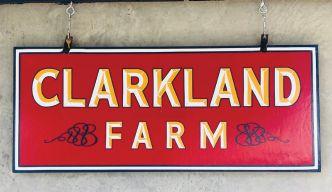 Champion Monomoy Girl completed the Ashland-Kentucky Oaks double in 2018. MARK MAHAN
Champion Monomoy Girl completed the Ashland-Kentucky Oaks double in 2018. MARK MAHAN
as a proving ground for the Kentucky Oaks.

Malathaat and Monomoy Girl are the most recent winners of the Ashland/Kentucky Oaks double with Nest coming close as the runner-up last year. Te trend began long ago with the original distinction going to Valdina Myth in 1941. Four years later Come and Go secured the double, and then Real Delight won both races in 1952 en route to becoming the frst of seven Ashland winners inducted into the Hall of Fame. Princess Rooney (1983) and Silverbulletday (1999) also hit the Ashland-Oaks-Hall of Fame triple.
Others who used their Ashland triumphs as a prelude to winning the Kentucky Oaks were Hidden Talent (1959), Sally Ship (1963), Blue Norther (1964), Sun and Snow (1975), Optimistic Gal (1976), Blush With Pride (1982), and Lovely Maria (2015).
lighted in this century by Hall of Famer Ashado (second in the 2004 Ashland), champion Proud Spell (third in 2008), and Cathryn Sophia (third in 2016).

A good showing in the Ashland ensures fllies increased value in the commercial market and extra broodmare potential since they will be bred to top-shelf stallions.


Myrtlewood (1936)
Bewitch (1948)
Real Delight (1952)
Princess Rooney (1983)
Go forWand (1990)
Inside Information (1994)
Silverbulletday (1999)
An ample number of fllies that lost the Ashland rebounded to capture the Kentucky Oaks. Te roster of 35 is high-

“Breeders gravitate toward that small sorority of fllies who earn black type at Keeneland, which is recognized throughout the world as the pinnacle of

 Take Charge Lady won the 2002 Ashland Stakes for trainer Kenny McPeek, right, then later proved her worth as a broodmare, producing champions and grade 1 winners.
ANNE M. EBERHARDT
KEENELAND PHOTO/PHOTOS BY Z
Take Charge Lady won the 2002 Ashland Stakes for trainer Kenny McPeek, right, then later proved her worth as a broodmare, producing champions and grade 1 winners.
ANNE M. EBERHARDT
KEENELAND PHOTO/PHOTOS BY Z




on track in 2022 through her grade 1-winning daughter, As Time Goes By. Others who trace to Take Charge Lady on their female lines are champions Will Take Charge and Take Charge Brandi. Her heirs are guaranteed to remain prominent thanks to the stallion careers of Will Take Charge and additional grade 1-winning descendants Take Charge Indy and Omaha Beach.
Other Ashland winners became purveyors of their own prominent lines.






Real Delight received lasting fame as a foundation broodmare. She is the third dam of 1978 Blue Grass winner and Hall of Famer Alydar and two distinguished half sisters: champion Our Mims and 1980 Ashland winner Sugar and Spice. She is the ffh dam of 2007 Ashland heroine Christmas Kid.
Blush With Pride won the 1982 Ashland prior to evolving into a prolifc producer of exceptional performers. Her daughter Better Tan Honour was named 2007 Broodmare of the Year for producing Belmont Stakes winners in Rags to Riches and Jazil. Te female lineage continues to churn out such quality performers as Cezanne, a grade 2 winner in 2022.
Prospectors Delite, victorious in 1992, had only fve foals, but all were stakes winners that earned her the 2003 Broodmare of the Year title. Te best of the bunch was 2003 Horse of the Year Mineshaf, who continues his long and successful stallion career.
My Flag took the Ashland in 1992 and carried high hopes for her breeding career as a daughter of the renowned Personal Ensign. She did not disappoint. She has generated a new line of top-tier runners



highlighted by her champion daughter, Storm Flag Flying.
Te descendants of 1987 Ashland winner Chic Shirine have done their part to populate the winner’s circle. A recent example is Olympiad, an Eclipse Award fnalist in 2022.
“Winning or placing in the Ashland makes a big diference to a flly’s value as a broodmare,” McPeek said. “It is something that adds to her pedigree page that can never be taken away.” KM























Kentucky native GARRETT A. MORGAN made lasting contributions as an inventor and entrepreneur

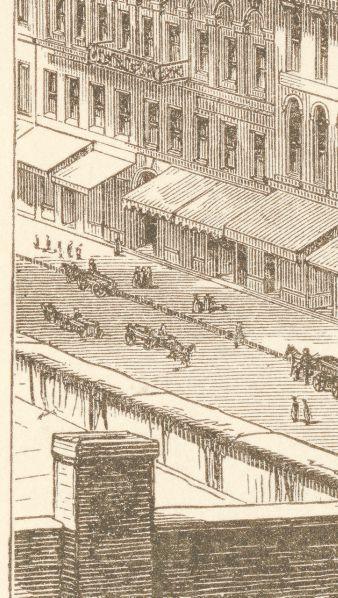
 By Maryjean Wall
By Maryjean Wall
 Wall
Wall


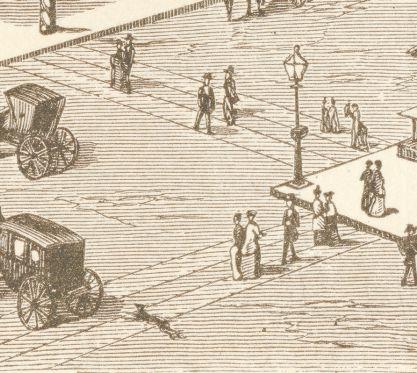











Garrett Augustus Morgan Sr. did not fy from the land that bore him, in Claysville, adjacent to Paris in Bourbon County. He took the slow route north, walking 70 miles to Cincinnati in 1891. Two years later, he hopped a train to Cleveland, where he settled. He was not the frst African American to leave Kentucky on foot and certainly not the last. But even as he said goodbye to his friends and family, he knew his only chance in life lay in one of the great Northern cities.
If you’ve been paying attention during Black History Month, you probably have heard of Morgan. He invented a smoke hood that evolved into the gas mask ubiquitous throughout Europe during World
War I. And this year marks the centennial of his receiving a U.S. patent for the trafc signal he devised, for which Paris has a celebration planned.











Many African Americans also knew Morgan through the natural hair care products he developed and marketed, most notably a popular hair straightener derived from plant-based ingredients. One success led to another afer his hair care business took of. He bought a house and an automobile, became a civic leader, and helped found a newspaper, the Cleveland Call. Memorials were installed in his honor in Cleveland and Washington, D. C. Paris put up historical markers attesting to his birthplace.
He was among numerous success stories to emerge from the Great Migration, a decades-long epoch that saw 6 million
Black persons leave the South for the North and for California. Tis phenomenon unfolded largely between 1910 and 1945, although the actual beginning and end were not so easily defned. As with any great movement of people, a few always went ahead of the crowd, and this was Morgan, leaving Paris with ambition writ large all over his youthful determination. He was 14 years old. He could have gone to Chicago, Bufalo, Detroit, Pittsburgh, or any of the major Northern industrial cities. During World War I, 1914-18, factories in the North began sending recruiters south to fnd labor to replace white workers who went into the armed forces. No one recruited Morgan, as he was an early traveler and on his own. He simply followed his dream. His grand-
“Tey fy from the land that bore them.”
—W. H. Stillwell, “Te Warmth of Other Suns: the Epic Story of America’s Great Migration”ANNE M. EBERHARDT
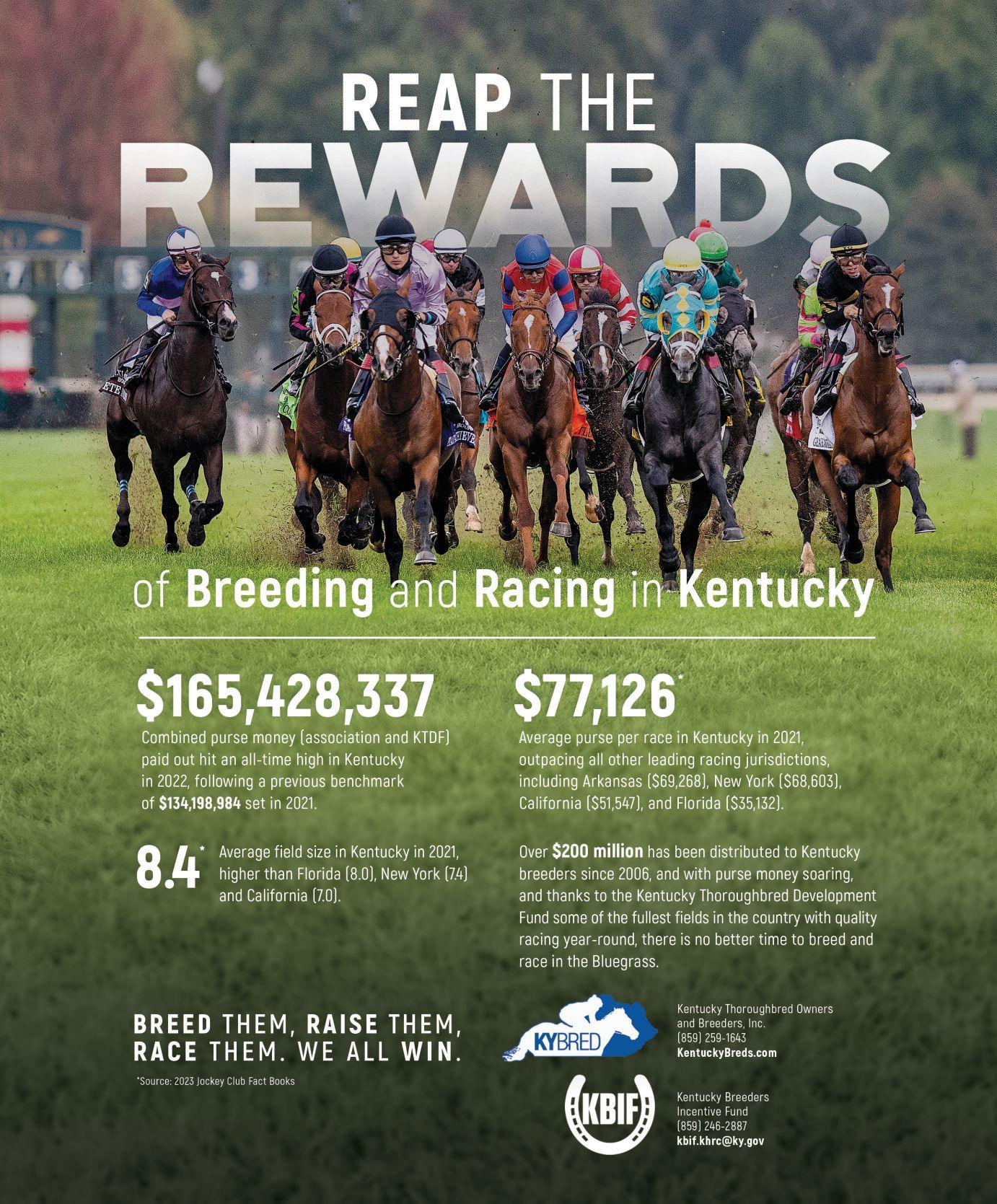
daughter, Sandra Morgan, says he went in search of opportunity and partly to escape the Jim Crow laws that separated whites from Blacks in the South.
Just as with Morgan, every Black Southerner who abandoned home to go north took a story with them. Some stories became legendary. Many Delta blues musicians like Muddy Waters saw their best opportunity for fame in the North. Waters, whose real name was McKinley Morganfeld, traveled to Chicago from Mississippi in 1943 and developed an electric blues sound that was a major infuence on rock ’n’ roll. Waters, in particular, infuenced the Rolling Stones, Eric Clapton, and others in England when he toured Great Britain in the latter 1950s.
Garrett Morgan was pursuing something diferent than fame. He wanted to fnd his place in the business world, and even when he lef home as an adolescent he had in mind setting up his own business. Tis seemed a tall order for a youth from Claysville, where the segregated school ofered an education only through sixth grade. Morgan had relatives in southern Ohio who might have helped him, but following his two years in Cincinnati, he realized southern Ohio was not for him. Perhaps he’d heard more favorable stories about Cleveland.
Cleveland was earning its reputation as a major industrial city, with smokestacks belching the gray clouds of progress along the Lake

Erie shore. Morgan arrived with his hopes stoked — and no more than a dime in his pocket. He spent his frst three nights sleeping in the railroad car he had arrived in. Ten he found a place to stay and a job in Cleveland’s booming textile works.






Morgan was hired to sweep the foors of Root & McBride, a textile factory where fabric “piece goods” were assembled and fnished by a largely female workforce that used the sewing machines. Tis wasn’t the business opportunity Morgan had wished for, but it gave him a foothold while making acquaintances, earning a wage, and keeping his eyes open for the opportunity to rise. His father, Sydney Morgan, had worked all his life for the railroad but advised his sons to learn to work with their minds not their hands. Morgan kept his father’s advice close.



His job was important. One spark from a machine could have led to a fre if the spark caught on the loose threads, fragments of fabric, and cotton dust that rolled about the factory foor. Everyone would hear about the tragic fre in 1911 at the Triangle Shirtwaist factory in Greenwich Village in New York City. Te fre killed 146 garment workers, 123 of them women, because the workers could not escape the building. Teir employer had locked the doors to prevent them from taking unauthorized breaks.
As Morgan chased the dust across the foor, he noticed the sewing machines were constantly breaking down. Teir leather drive belts broke apart at their joining seams and the belts few of the machines. Morgan began thinking through this problem. Ten he came up with a solution, his frst in a long line of many.
His idea was to cut belts from rubber instead of leather. He also wanted each
belt cut as one continuous piece to eliminate the need for seams. Further, he advised the cutting of these belts in a fgure-eight pattern, which he believed would keep the belts more reliably on the sewing machines. Root & McBride rewarded Morgan with $150 and a promotion. His new job was as caretaker of the machines. He abandoned his broom and began to learn the mechanics of the sewing machines in his care.
Ten a critical intersection in his work life appeared. He had met Mary Hacek, a seamstress from Eastern Europe, and they married in 1908. Sandra Morgan said this mixed-race marriage resulted in an ultimatum delivered by the factory to her grandfather: He was ordered to abandon Hacek or quit his job. He quit the job. He had saved the money he needed to open his own sewing machine repair shop.
In two more years, he opened a tailor’s shop, employing 32 people. He was on his way to realizing his dream of becoming a businessman. But one thing hadn’t changed: Te sewing machines continued to cause problems. Te needles on the machines moved at such high speed that the resulting friction scorched certain fabrics. Once more, Morgan set about fnding a solution.
He searched for something to apply to the needles, a coating capable of reducing the friction. He worked on formulas at home in the evenings, and one night in 1911, called by his wife to dinner, he stopped work and wiped his hands on a fuzzy cloth. Te experiments could wait until afer their meal.
When Morgan returned to his work following dinner, he noticed the fuzz on the cloth, formerly curly, had turned straight.
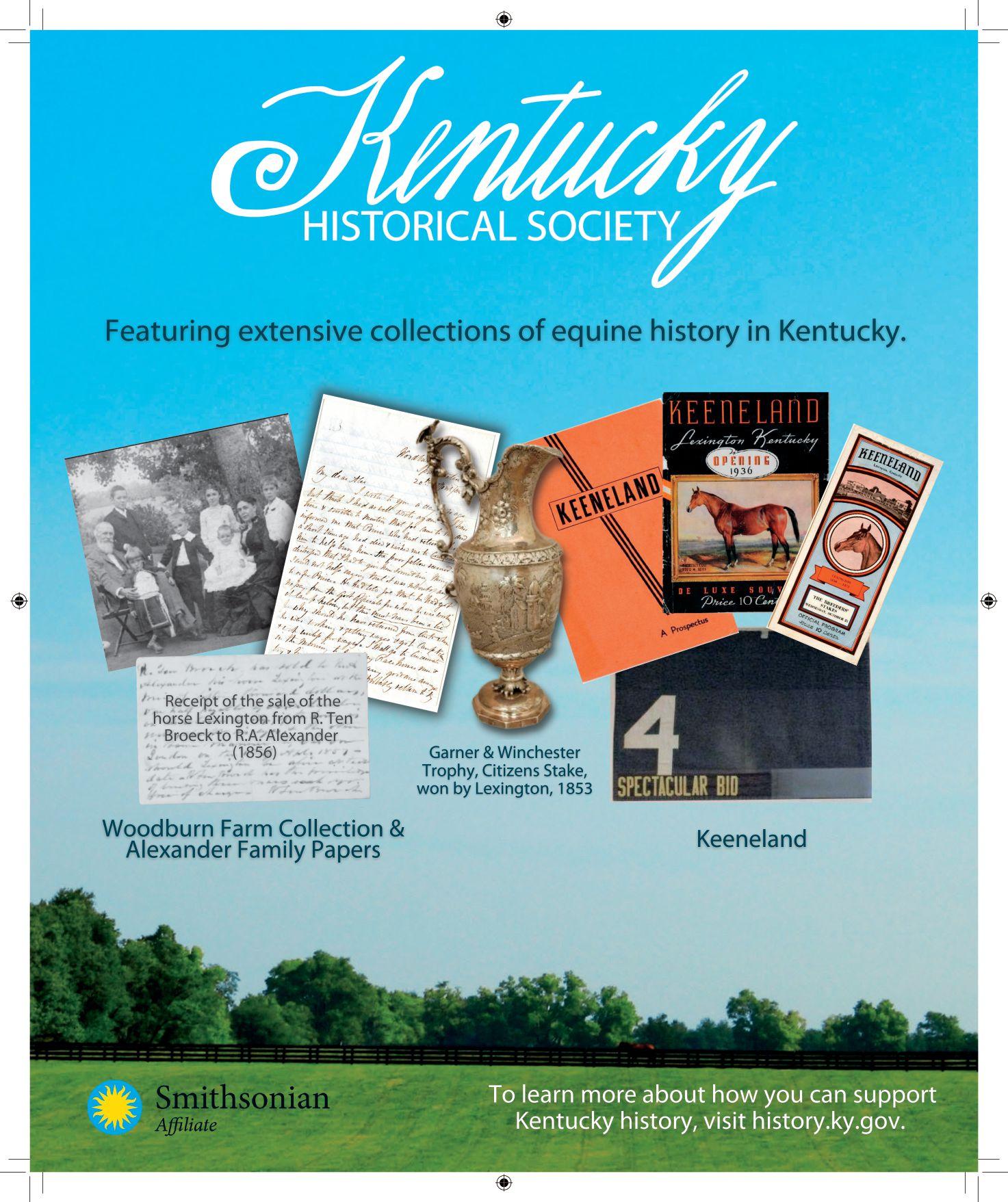
Tis was an unintended outcome, but one Morgan was to turn into the basis of his family’s eventual wealth. His next step was to ask his neighbor if he could apply some of his mixture to his Airedale dog. Te result was the dog’s curly hair turned straight.
Morgan then rubbed the mixture into his own hair. His hair turned straight. He had mixed nothing but plant-based ingredients into his formula, but the results were exciting. Tus, was born the G. A. Morgan Hair Refning Company, which eventually manufactured and marketed everything from pomades to a special hair-straightening comb.
He also successfully developed a formula for decreasing the friction on the sewing needles.
Morgan sold his hair products to Black beauty salons directly and to other consumers by mail order. Morgan’s way of marketing his hair products was the method popular back in the day: live demonstrations. He fnished each demonstration by taking a swallow of his hair straightener, to prove it was organic. He traveled to these demonstrations in a little truck that immediately drew attention: Morgan had attached signs to the sides, and in the rear he installed a calliope.
Sandra Morgan recalls her late uncle (John P. Morgan) accompanying Garrett Morgan on a few of those road trips when her uncle was a teenager. She said the road trips brought her uncle great angst.
“My uncle used to tell stories that he
absolutely hated that truck with a burning passion,” Sandra said. “My uncle was a gifed musician and played classical piano and the organ beautifully. My grandfather would make my uncle play the calliope as they came into town. My uncle was 14 or 15 and trying to look suave and good for
to purchase a home and an automobile. His hair-refning company was becoming known to African Americans across the United States. In fact, the G. A. Morgan Hair Refning Company lasted until well into the 1970s. Te hair products aided one portion of society, but Morgan’s later inventions benefted a much wider swath across the United States and beyond.
The frst of these was the safety hood he invented in 1912. His desire was to sell his hoods to fre departments everywhere, as they were designed to allow the wearer to breathe while walking through heavy smoke. Prior to Morgan’s safety hood, fremen were unable to enter smoke-flled buildings due to the breathing hazard.

Morgan’s hood was primitive but genius for the time. William McHugh described the apparatus in an article for Kentucky Explorer: Te canvas hood had two breathing tubes that merged in the back to join at a sponge soaked in water. Te water in the sponge fltered out the smoke.
the girls, and here he is playing the calliope, feeling foolish.”
Uncle John might have worried about looking foolish, but Garrett, his father, was just doing what his personal creed had always dictated: Do whatever you must to get ahead. If this meant driving a truck into town with his son playing the calliope in the back, well, that was doing whatever you had to. Te orders for hair products began rolling in.
Morgan’s rising success enabled him
Morgan patented his device in 1914. Almost as soon as he readied the device for sale, Morgan came face to face with the reality that all African American inventors faced. He had envisioned fre departments eagerly purchasing his smoke hood. Tis did not happen on the scale he had anticipated.
Te reason was his race. Black inventors of Morgan’s time were uniformly running up against a wall of consumer resistance, as Lisa D. Cook has written from her post at Michigan State College. Her “Overcoming Discrimination by Consumers during the Age of Segregation: the Example of Garrett Morgan” appeared in the summer


2012 issue of Business History Review 86.

Cook used Morgan’s experience to illustrate this historic phenomenon of consumer pushback based on race. But she also found that Morgan devised a clever way around this obstacle in his path. Morgan hired a white actor to serve as front man for live demonstrations. Morgan held back, identifed on-site as the actual inventor but identifed as a Native American. He claimed to be Big Chief Mason from a Canadian tribe. Tis subterfuge removed any association of Blackness from Morgan’s smoke hood, transferring its origin to the Canadian Indigenous population. Te white actor did the talking for Morgan and sales orders began coming in.
Te orders kept on coming until Morgan was revealed for who he really was — an African American — in widespread newspaper coverage following a major disaster beneath Lake Erie at Cleveland. Workmen digging a water intake tunnel hit a pocket of natural gas and the explosion trapped them beneath the Great Lake. City authorities contacted Morgan. Tey asked him to come quickly with his smoke hood, perhaps not realizing he was African American, as he had been passing himself of as Big Chief Mason. Morgan and his brother, Frank, showed up at the scene and their race became evident to all through photos published in the newspapers. Morgan saved some of the trapped men and retrieved the bodies of others. But no longer could he hide behind his indigenous Canadian persona.
Garrett Morgan received two civic medals for his role in the disaster. Much to the Morgan family’s disappointment, the Carnegie Hero Fund Commission awarded its prestigious Hero Award to a man, white, whose role in the disaster had been minor. Morgan attributed this oversight to racism and urged the committee to overturn its decision, but this did not happen. Morgan also made the argument that the mayor of Cleveland only belatedly acknowledged the role of the Morgan brothers “and reluctantly because of their race.” Morgan wrote this in a letter to the mayor in 1917 that is included in the Garrett Morgan Papers held at Western Reserve Historical Society.
Even more startling was the negative efect this revelation of Morgan’s race had on sales of the safety hood. A number of Southern fre departments canceled orders for the breathing device afer becoming aware that a Black man had invented the respirator.


Morgan received validation of his work, however, when two business giants of the day, John D. Rockefeller and J. P. Morgan, publicly praised his scientific achievements. Additional recognition awaited Morgan upon his unveiling of his trafc signal in 1923. Te world had been waiting for this invention, as there was little to no safety for man, horse, or automobile at road intersections.
Automobiles were becoming ubiquitous on American roads throughout the 1920s, although in some places they still competed for road space with horsedrawn buggies. Road intersections were a jumble of vehicles all trying to go forward at the same time. Trafc signals in use had only two positions: stop and go. It was impossible to stop an automobile or even a fast-moving horse on a dime.
Morgan began thinking about a way to bring order to intersections afer he witnessed a collision between an automobile and a horse-drawn carriage. Te threeposition signal he devised was unique for the time because it allowed for a pause between stop and go, much like the yellow phase of trafc signals do today.

Morgan’s device lessened the danger of collision between automobiles or horse-drawn vehicles. It also gave pedestrians time to cross at the intersection. Morgan received a patent in 1923, and his invention was a signifcant milestone on the path of progress toward increased public safety on roadways.

Morgan never forgot his Bourbon County origins. In 1959 he welcomed a fellow Bourbon County native to Cleveland by the name of Lytle Davis, an educator who settled in Cleveland following military service. Te two had not known each other in Paris, but they made their acquaintance afer Davis attended his initial service at Antioch Baptist Church in Cleveland. Morgan was a longtime member of that church.
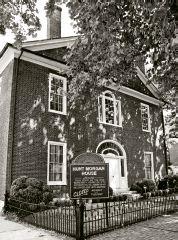
“Tey asked us [visitors] to stand and say where we were from,” said Davis, now 87 and chairman of that church’s social justice committee. “I got up and said, ‘I’m Lytle Davis from Paris, Kentucky.’ ” Te following day, Davis received a telephone call from Morgan. “He told me he was from Paris and had very fond memories of Kentucky.” Davis quite possibly told Morgan about delivering newspapers in his youth in Paris and how he played basketball for Paris Western High School the year his school won the National Negro High School Basketball Championship.

By the time Morgan died in 1963, he had been awarded four patents: two for his safety hood, and one each for the trafc signal and his hair “decurling” comb. Additional inventions were not patented: improvements to the sewing machine, various hair care and skin care products, an automatic cooker, hat and belt fasteners, a friction drive clutch, and a self-extinguishing cigarette flter. His entrepreneurial activities numbered at least fve businesses: the G.A. Morgan Hair Refning Co. (founded 1905), Morgan’s Cut-Rate Ladies Clothing Store (1909), National Safety Device Company (1912), the Cleveland Call newspaper (1920), and real estate

development in the Wakeman Country Club (1923).


General Electric Co. purchased the rights to Morgan’s trafc signal for $40,000 in 1923, which in today’s dollars would have been about $697,099. Tat sum secured his family’s future. Granddaughter Sandra Morgan told how he arranged for any one of his ofspring who desired to work toward an advanced education to have the money available to pay for that education.


Toward the end of his life, Morgan lost most of his sight due to glaucoma. Still, he tinkered with inventions, coming up with his self-extinguishing cigarette. He was widely recognized in Cleveland, where the Garrett A. Morgan Water Treatment Plant and the Garrett A. Morgan Cleveland School of Science would be named for him. In Chicago and Lexington, elementary schools would be named for him. Prince George’s County in Maryland named a street for him, and a Washington Metro stop in Prince George’s County also is named in his memory.
Morgan’s granddaughter also said it is important to recognize the man beyond the parameters of Black History Month: “I don’t think Americans in general always appreciate the signifcant contributions that African Americans have made to this country, not only in their hard labor but also in their intellectual contributions made to the arts, to literature, to science, business, and to invention, which is signifcant.”
Garrett Morgan — inventor, entrepreneur, civic leader, and newspaper publisher — was simply doing whatever it took to get ahead. But, throughout that process he, too, contributed to history and a muchimproved American experience. KM




In Lexington a portrait of Garrett Morgan hangs on an interior wall at the historic John Hunt Morgan house (renamed Hopemont). This raises the question whether there is truth to persistent stories that the famous inventor descended from Confederate Gen. John Hunt Morgan, a white Kentuckian who held Black persons in slavery.
Sandra Morgan, Garrett Morgan’s granddaughter, told Linda Blackford of the Lexington Herald-Leader in 2021 that her family has long heard rumors about white ancestry leading directly to the general. But the family cannot prove any of this, she told Blackford.
Sandra Morgan was invited by the Blue GrassTrust for Historic Preservation to give a talk in 2021 about her grandfather. She opened her talk with an acknowledgment of the stories about her family’s relationship to John Hunt Morgan, saying her grandfather’s father, Sidney Morgan, was a son of the Confederate general and an enslaved woman in his household.
“This shouldn’t be news to anyone,” Sandra Morgan said. “Complex relationships between owners and the enslaved were common knowledge.”
Blue GrassTrust owns Hopemont, where the general never lived although the house was the residence of his mother. Hopemont was the original name of the house before it popularly became known as the John Hunt Morgan house.When a citywide controversy arose in recent years over a larger-than-life bronze installed on the lawn of the old courthouse, memorializing General Morgan riding a horse, the name of his mother’s house reverted to Hopemont.The general’s mount had been incorrectly cast in bronze as a stallion. Morgan rode a mare named Black Bess.
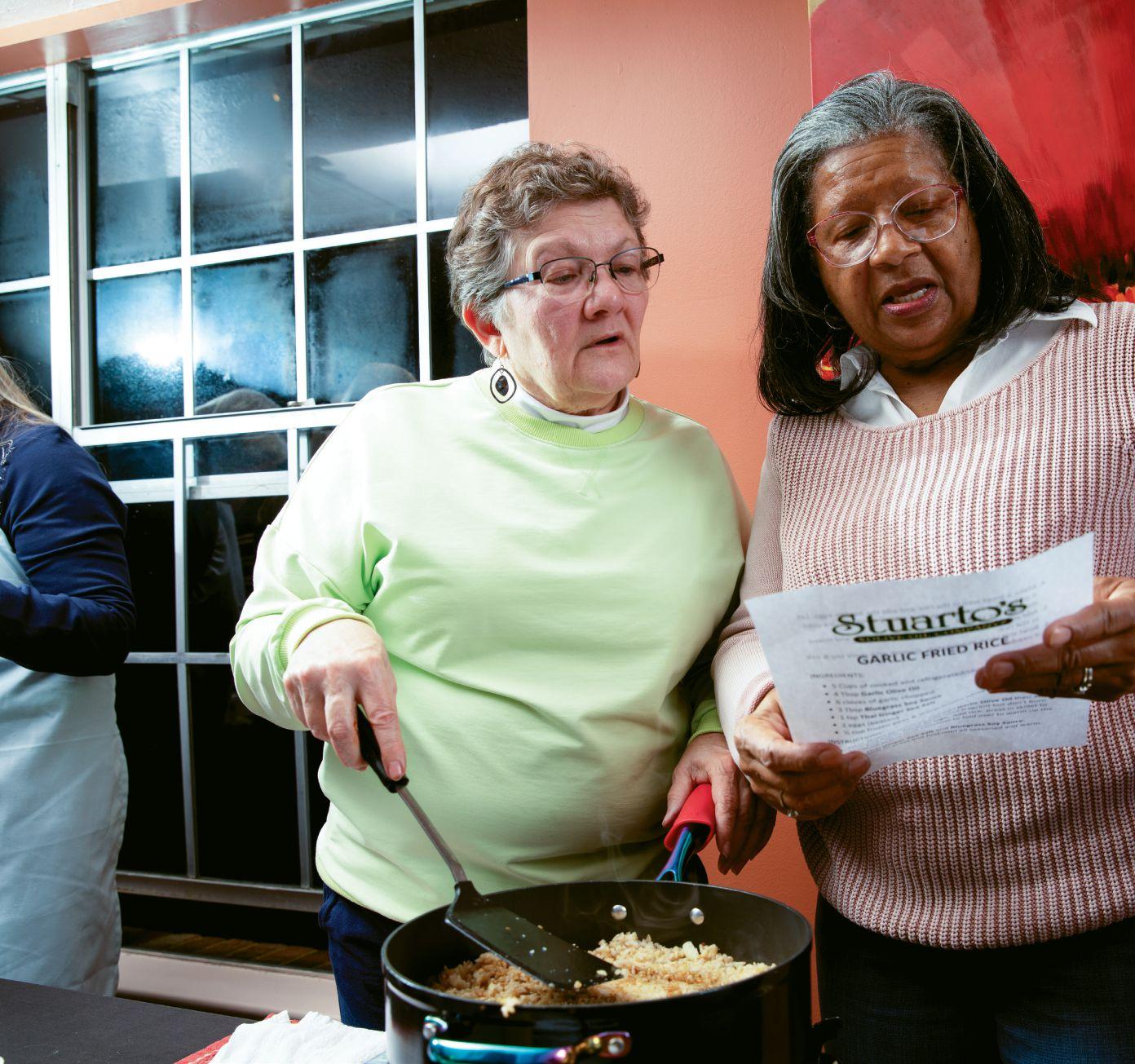
The boutique Stuarto’s Olive Oil Company enhances its brand with popular cooking class series



 By Vickie Mitchell
By Vickie Mitchell
Photos by Britney Howard / Mahan Multimedia
Photos Howard / Mahan Multimedia Photos
a Monday night in early January, the back room of Stuarto’s Olive Oil Company in Chevy Chase bustles as 22 students troop in for the store’s frst cooking class of 2023.
Wine and water glasses are flled as couples and groups sit at tables set for four and six. It’s a homey hubbub, as regulars reunite and newcomers get acquainted, sort of a cross between a dinner party and a class reunion.
Chef Richard Lawrence leads these popular $56 per-person classes, which sell out each month and are designed to send students straight into Stuarto’s adjacent retail store, where extra virgin olive oils, balsamic vinegars, salts, sugars, spice mixes, and other ingredients used in the night’s recipes are sold.

Te cooking classes aren’t new to Stuarto’s, but they became larger and more popular afer owner Stuart Utgaard in 2021 moved his Chevy Chase store to new quarters, around the corner from its spot on Euclid Avenue to the old Fred Moore Music building on South Ashland. Te move ultimately allowed Stuarto’s to have a dedicated space for classes of up to 24 students.
Adding Lawrence as chef completed the picture; he comes to Lexington one week of each month, teaching classes Monday through Tursday nights, staying with Utgaard and his wife, Kellie, who manages the Chevy Chase store.
Lawrence, a caterer from the Bowling Green area, is a customer and daily user


of Stuarto’s products. He shops at Stuarto’s Bowling Green store, the only location beyond the two stores in Lexington.
Before class, he does all the prep work. During class, students work in small teams, following fve or six simple steps in the recipes Lawrence has written.
Lawrence is easygoing and funny, nothing like those scary high-strung chefs who rage on TV. At the start of class, he tells students, “Now, you are not going to be up here slicing and dicing because we do not have the space, and if you had knives, you would not be drinking wine,” eliciting appreciative laughs.
Instead, students season, sauté, stir, sear, and sauce, and each team prepares one of the four dishes — two entrees, a side, and a dessert — each cooked in deep skillets over portable butane gas burners. About a dozen stations are set up along long tables.


When their work is done, students dine together, enjoying the dishes they created during a four-course meal served bufet-style.
Te classes have two goals: to inspire home cooks and to encourage them to experiment with the many favors of oils and vinegars and other seasonings that Stuarto’s sells.


Te recipes Lawrence writes for the class always incorporate Stuarto’s products. Lemon butter chicken piccata meatballs, for example, include four: Tuscan herb blend, jalapeno sea salt, bourbon barrel-smoked paprika, and lemon olive oil. His recipe for apricot

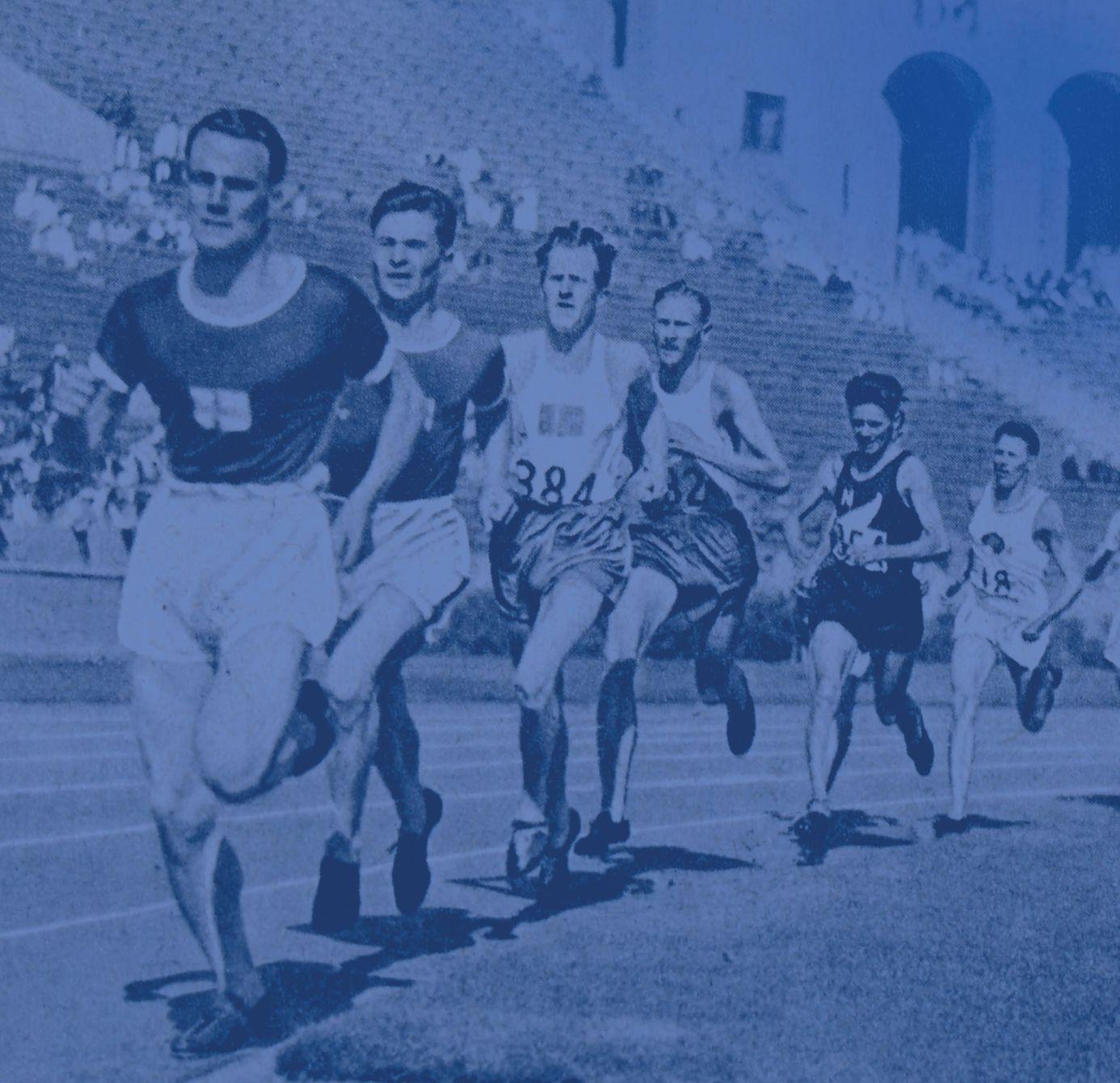



glazed salmon uses Stuarto’s pink Himalayan sea salt, hickory-smoked black pepper, wild dill, and lemon olive oil. And while Lawrence doesn’t go overboard with product promotion during class, he does explain what makes Stuarto’s products worth having in the cupboard. To avoid “crying over your onions,” try leek olive oil, he advises. In his catering business, Lawrence uses gallons of butter olive oil because its proprietary mix of herbs perfectly mimics the taste of butter, with “absolutely no dairy.” It tastes like “chewing on a stick of butter,” he says.
Cooking classes are just one of the building blocks Utgaard has used as he has introduced Lexingtonians to extra virgin olive oil and balsamic vinegar. He’s no novice when it comes to growing a business.


When he came to Lexington and opened the frst Stuarto’s in 2010, it was his fourth major venture, the ffh if you count a local garbage collection business he launched in his Wisconsin town in his youth. He’s probably best known as founder of Sportsman’s Warehouse, a company he grew to 73 stores and $10 million in daily sales before the 2008
fnancial crisis forced him to sell the business to a shareholder. Tat loss, coupled with a fnancially devastating divorce, lef Utgaard to start over, this time selling oils and vinegars instead of fshing rods and rifes.
At the time, owners of another Lexington olive oil business disparaged him, saying Utgaard didn’t know anything about olive oil. Tey were not wrong, he admits. “I didn’t know much, but I knew I could learn.”

And he did. A hale, hearty Midwesterner, he’s always been a hands-on owner. In the early days of Sportsman’s Warehouse, he drove a forklif. Today, managing a company on a much smaller scale, minus the Learjet and Ferrari he once owned, he waits on customers, packs shipments, gives advice on oil and vinegar pairings, and studies the olive oil market to make purchases, seeking oils from the most recent harvests with the best quality ratings. He’s compiled a mailing list of 15,000, used to market the business. He’s expanded the stores’ inventory, doubling the number of oils and vinegars from about 15 each to 30 and adding many other products — from spice mixes, salts, and sugars to jars of olives and sweet peeled garlic cloves. In addition, Stuarto’s carries Kentucky Proud products like Elmwood Inn teas, Midway’s Hosey Honey, and Kentucky

THERE ARE ALL KINDS OF HEALTH BENEFITS ASSOCIATED WITH USING OLIVE OIL.”
—Stuart UtgaardLeft, Allison Hughes prepares to taste her handiwork. Loralee Trim and Gloria Dawson enjoy conversation before dinner.



Bad Dog Jelly from Georgetown.
His timing has been favorable in terms of the nation’s growing interest in olive oil, the Mediterranean diet, and the health benefts of both. Since 2000, olive oil sales have more doubled in the U.S.





“I liked it because it is healthy for people,” Utgaard says. “Tere are all kinds of health benefts associated with using olive oil. You can look these up online of course, but the most important one is generally, you get a longer life.”
Tinking like the business strategist that he is, Utgaard also liked the upsides of a consumable product. “It had a reasonably decent margin. Tere was a lot of physical work, but I’m very strong still. And it’s a consumable, disposable product so people buy it, and if they like it, they come back and buy it again.”
Tat’s what he’s fnding these days, more than a decade afer opening the frst store in Hamburg. In those days, he would take his Yorkshire terrier out in front of the store, hoping to lure people over to pet the cute little dog while he talked to them about the store with the hope they would






sample extra virgin olive oils and balsamic vinegars.



“I called my Yorkie my ‘VP of sales’; he drew them in, and I sold them.”
Te selling part is a lot easier these days, thanks, in part, to the cooking classes, which have gained a loyal following. Te majority of those at January’s class had been there before; one couple were attending their 13th straight month of classes.
Before and afer class, many spend time in the retail shop.
“A lot of them want to buy something that was used in the class and then when they are in here, they’ll say, ‘Oh, you’ve got chocolate-covered pecans. Let’s get some of those too,’ ” says Utgaard.
Tere’s no doubt in his mind that the move to South Ashland was a good one. “Our business has grown a lot just by moving in to the Ashland Avenue building and having the cooking classes on-site.” KM



Stoll
skofrm.com
 By Rena Baer
By Rena Baer
Photos by Rick Samuels
Photos
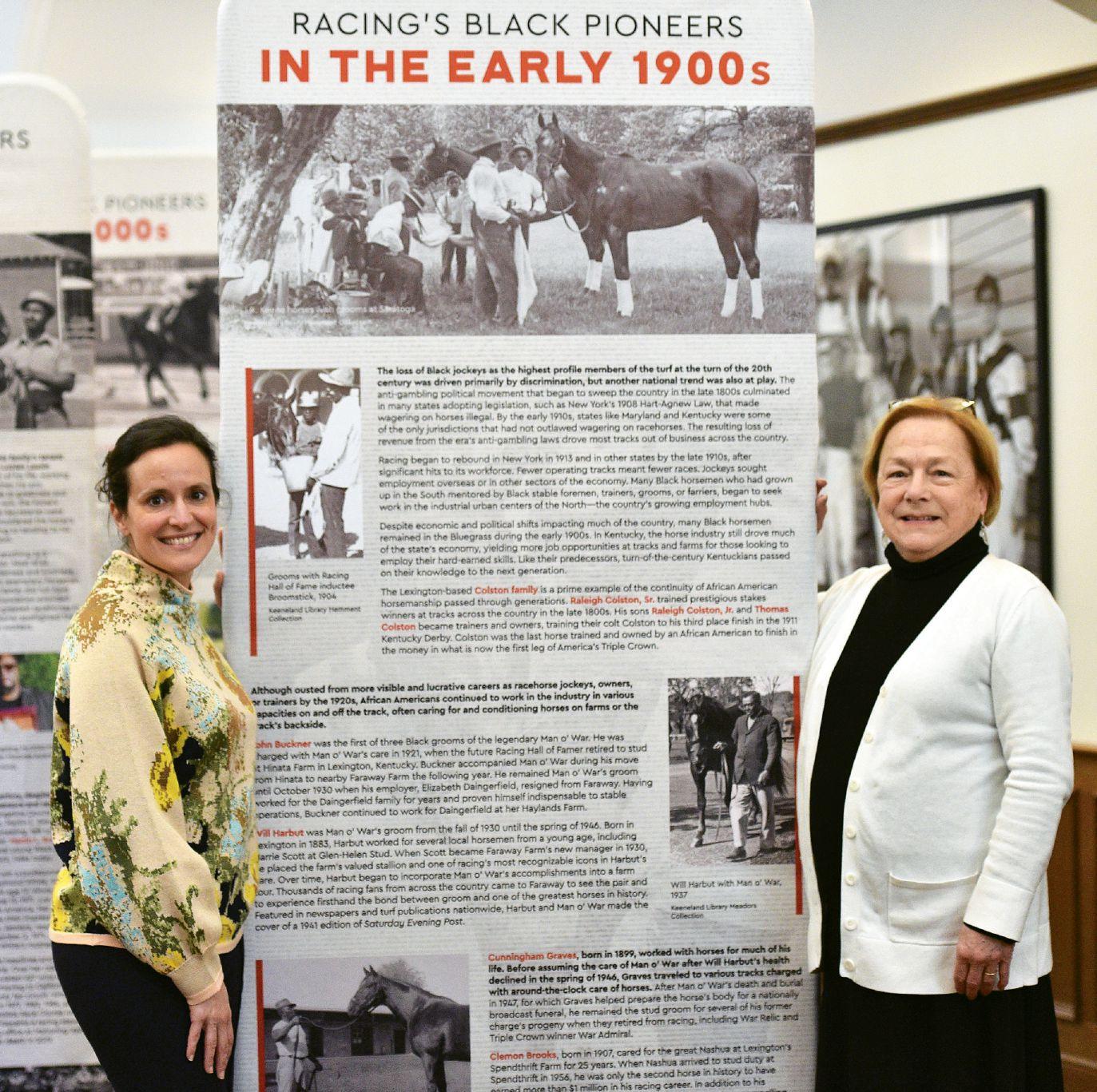
WWhile Isaac Murphy and Jimmy Winkfeld are familiar names in the annals of horse racing history, many other African American contributors to the sport have gone unrecognized and their stories untold.
A new exhibit at Keeneland Library, “The Heart of the Turf: Racing’s Black Pioneers,” seeks to change that and start conversations by highlighting 80 African American horsemen and women from the mid-1800s to thepresent,capturingmoments in their careers through stories, artwork, videos, and photos.
Keeneland Library has one of the largest-known photograph collections of early African American horsemen, including photos of one of the very frst photographers who took his camera to the racetrack. “And they’re not just star-studded photographs. Tere are photos of the backside; photos of horses being washed or shod; photos of Byron McClelland, a white horse trainer and owner, with a primarily Black staf in the 1890s,” said exhibit curator Roda Ferraro. “Te library has information and image resources that other researchers have used for decades, and we are pleased
to have this opportunity to bring them all together and share them with the public.”
Ferraro and library director Becky Ryder compiled more than 100 historical photographs of Black horsemen and women for the exhibit. Together with the exhibit’s historical consultant, Yvonne Giles, they uncovered stories of some African Americans who had been captured by the camera but overlooked by history. Tese stories and photos are shared on interpretive panels throughout the library, along with period artwork on loan from the Kentucky Derby Museum, the International Museum of the Horse, and private collections.
“We could have told 10 stories in a very diferent way — and there are absolute advantages to doing that — but we chose to share life and career highlights of as many people as possible to shed light on the varied roles and contributions [of

African Americans] over time,” said Ferraro. “What is so powerful is how those 80 stories run the gamut of roles that are essential to this industry.”
Te exhibit documents the unparalleled success of Black jockeys until segregation forced them out of the picture or into less visible roles. In addition to the plethora of stories about people, the exhibit contains several references to Lexington’s East End community, where many African Americans lived and worked nearby at the Kentucky Association racetrack. Te track, one of the frst and foremost of its time, was built in 1828 and successfully ran for over a century until the height of the Depression and deterioration closed its gates in 1933.
“Te whole East End community thrived, particularly post-slavery, because all of these horsemen had these skills as enslaved individuals when released from







their farms,” said Ryder. “Tey moved from farms to the community where the racetrack was and had opportunity.
“Te megastar athletes [of the time] were the Black jockeys,” she continued. “Tere were no baseball teams; there were no football teams; there were no basketball teams. Racing was popular. And the Isaac Murphys and Jimmy Winkfelds and ‘Soup’ Perkinses — these were the go-to guys for riding the best horses in the world. And they were right here in Lexington, living within a few blocks of each other.”
In more recent years, and through the eforts of several local
grassroots organizations such as Phoenix Rising Lexington, African Cemetery No. 2, and the Ed Brown Society, people have become more aware of this particular history. “We have the Isaac Murphy Memorial Art Garden that is right there on Tird Street, right next to where the old track used to be. It’s there where Isaac Murphy’s home actually was,” said Ryder. “We are in the midst of signifcant history here in Lexington, and we thought that history needed to be told. Not just the fabulous jockeys everybody knows about, but the grooms, the farriers, the trainers and other attendant industries that supported racing and breeding.”
Te exhibit also drives home the untenable circumstances African Americans faced, frst as enslaved horsemen and later under Jim Crow laws, but how their love of horses and racing continued to be passed down in families through generations.
In the years leading to the Civil War and until the abolition of slavery in 1865, horse racing was the country’s sport of choice, and many of the sport’s best horsemen were enslaved. Te exhibit points out that living with the atrocities of slavery, Black grooms, farriers, stable managers, trainers, and jockeys tasked with the training, exercising, and the 24/7 care of racehorses passed down their hardearned knowledge to the successive generation, cultivating a continuum of outstanding horsemanship.
“Afer heightening segregation laws and systemic discrimination pushed the most visible members of this sport out of the limelight and out of lucrative positions, many African Americans continued to work in the industry, particularly in the Bluegrass,” said Ferraro. “Tey were increasingly restricted to jobs that were less visible to the public such as grooms or exercise riders, and if they conditioned horses, they ofen weren’t trainers of record.”
Te exhibit addresses some of the social, political, and economic forces at play over time.
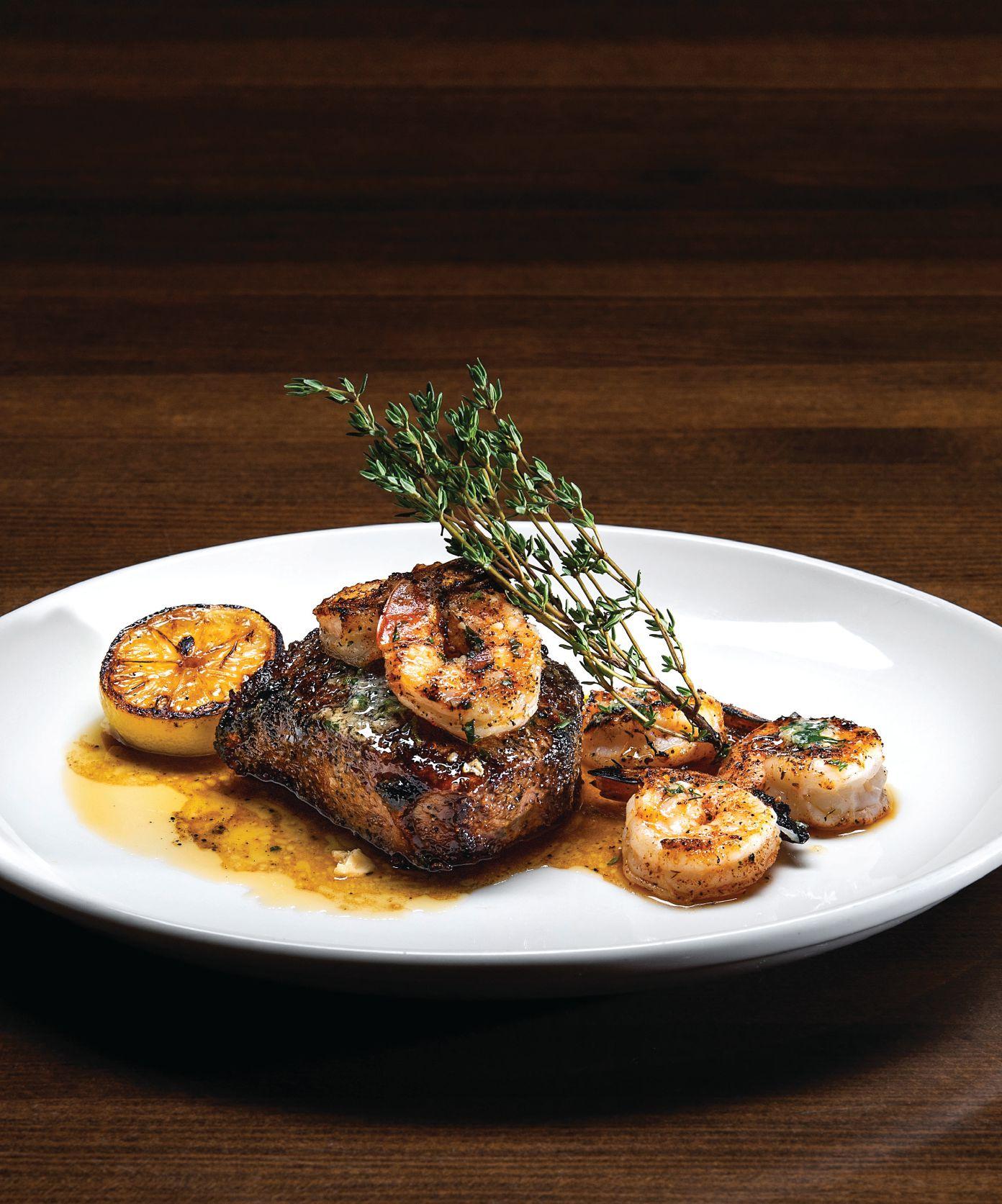
“Intensifed segregation coupled with other political and economic shifs in the U.S. at the turn of the 20th century forced many Black horsemen to seek work outside the industry in growing urban industrial hubs of the North or in racing overseas,” she continued.
Several of these horsemen met success overseas, but others were unable to pursue the work they had grown accustomed to.
“It doesn’t mean the knowledge that had
been instilled in them from their prior generation wasn’t passed on to the next generation,” said Ferraro. “But it ofen manifested in diferent ways and tended to be more behind-the-scenes in the limited industry roles still available to Black horsemen and women through much of the 20th century.”
The exhibit is free and open to the public from Feb. 23 to Aug. 31 during the library’s hours: Monday through Friday 8:30 a.m. to 4:30 p.m. For exhibit guided tours or group educational programming, email Roda Ferraro at rferraro@keeneland.com.
Hank and Mary Brockman
Coleman D. Callaway III
Kirk Hoefing
Catherine Clay Neal
Cross Gate Gallery
International Museum of the Horse
Kentucky Derby Museum
Phoenix Rising Lex
Historical Consultant:
Yvonne Giles
Exhibit Curator: Roda Ferraro


Installation Consultant:
Kirk Hoefing
Library Director: Becky Ryder
Two installments of the Library Lecture Series will feature authors who have written books related to “The Heart of theTurf: Racing’s Black Pioneers” and conducted their research at Keeneland Library.

On May 11, Katherine Mooney will discuss “Isaac Murphy:The Rise and Fall of a Black Jockey.”
On June 22, Mark Shrager will talk about “The First Kentucky Derby:Thirteen Black Jockeys, One Shady Owner, andThe Little Red HorseThatWasn’t Supposed toWin.”
Both programs will be held at the library from 6:30-8:30 p.m., and admission is $10.The authors’ presentations will be followed by receptions and book signings. A limited number of copies of featured books will be available for purchase.
Tickets are available at tickets. Keeneland.com. Both Library Lecture Series events will be livestreamed on Keeneland’sYouTube channel.
Ashley and John Backer partner with the Community Foundation to support their family giving, and Pin Oak Stud turns to BGCF to organize its corporate philanthropy.
We’re here to help with your equine, corporate or family giving. Join Ashley and John, and establish your charitable fund at the Community Foundation today.

Te exhibit stretches from the 1850s until current times, including telling the more recent story of Kendrick Carmouche, a son and grandson of jockeys. Carmouche remembers being on a horse as early as the age of 7. He had his frst win on a horse conditioned by an African American trainer, and later he was part of a noteworthy 2017 Toboggan Stakes win at Aqueduct on Martin Luther King Jr. Day in which the Jamaican-born owners, Anthony and Gaston Grant, trainer Gaston Grant, and rider Carmouche were all Black. Presenting the trophy was Sentell Taylor Jr., an African American placing judge for more than 50 years.
“It was just a really special moment and one of those kismet things where it all came together to tell a story,” said Ryder.
Ryder and Ferraro said they hope that the
process of recording and sharing the many roles African Americans played historically and currently play in the horse racing industry provides an opportunity to consider the past with an eye to the future.


“Not just the contributions they made then and make now, but the lasting ripple efects of those contributions,” said Ferraro. “Our hope is that these stories motivate further conversations with community and industry stakeholders about ways to create opportunities for everyone who wants to be a part of this industry, whether on the backside or in the saddle or in farm or track management. Fortunately, this is one of several eforts underway to chronicle and share the stories of racing’s Black pioneers, and the heightened awareness in recent years is promising.”
Te exhibit will extend far beyond the
library’s walls with a virtual component that is accessible to anyone with internet. In addition, when “Te Heart of the Turf: Racing’s Black Pioneers” closes at the end of August, many of its elements will continue to be available to schools, libraries, museums, and community groups, with specifc programming geared toward the intended audiences.
“Once the physical exhibit closes, we will have taken these months to develop educational materials for upper elementary, middle, and high school audiences. Planning for university students and adult exhibit programming is also in the works,” said Ferraro. “Te long-term education and outreach goals are exciting, and we look forward to next steps and future collaborations with community and industry partners.” KM
‘‘ OUR HOPE IS THAT THESE STORIES MOTIVATE FURTHER CONVERSATIONS WITH COMMUNITY AND INDUSTRY STAKEHOLDERS…”
—Curator Roda Ferraro
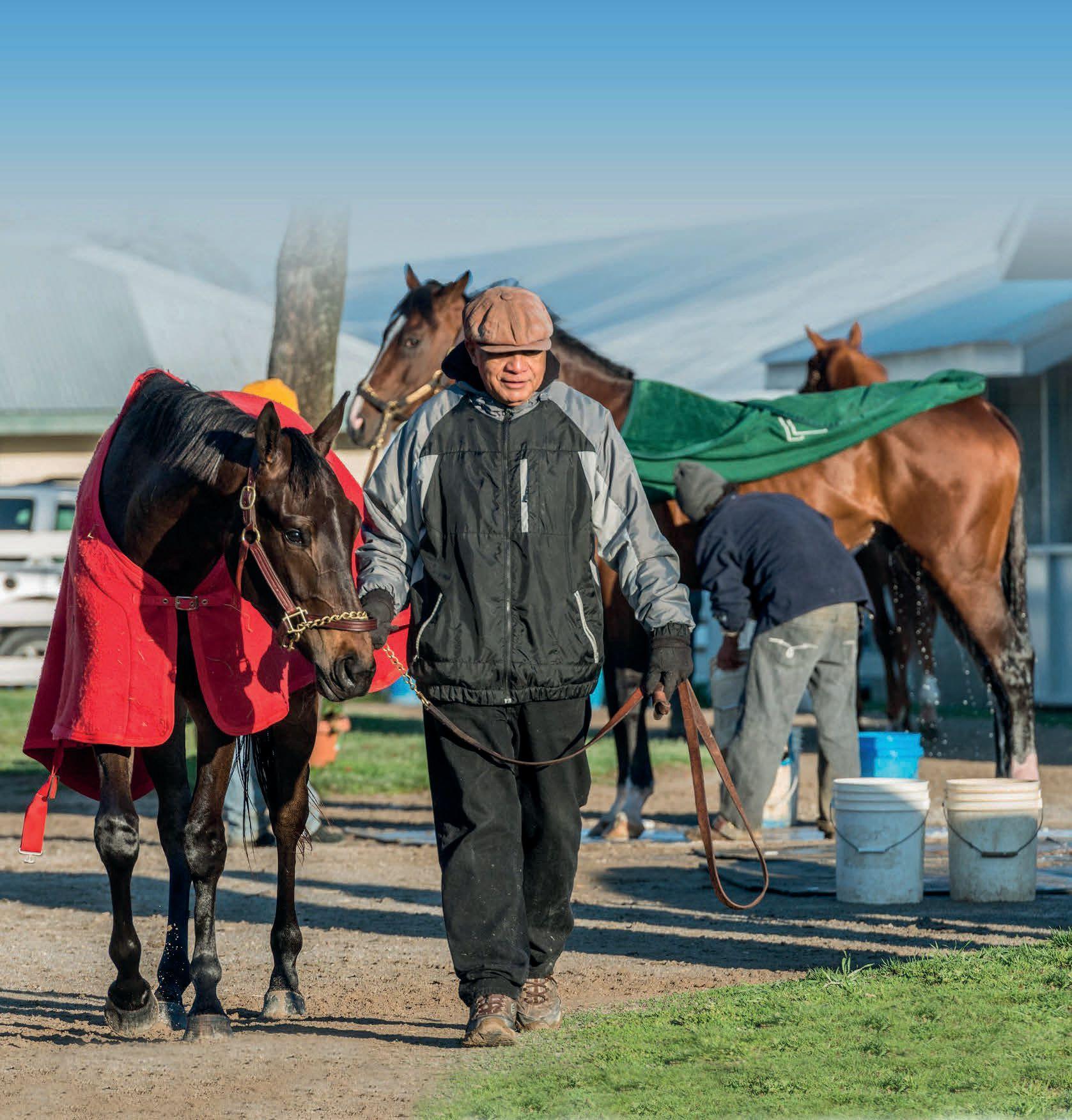



www.lexingtoncancerfoundation.org



































